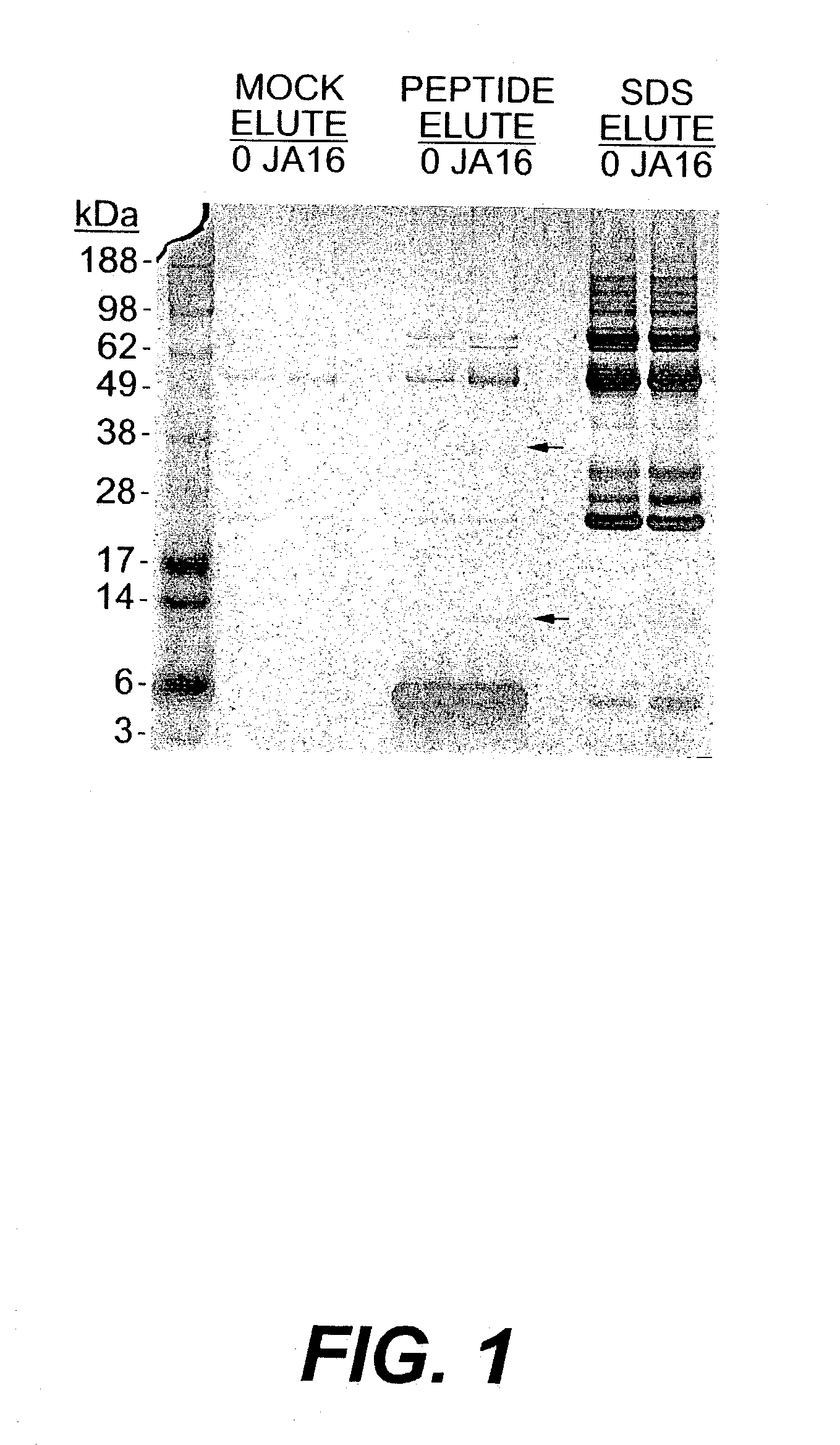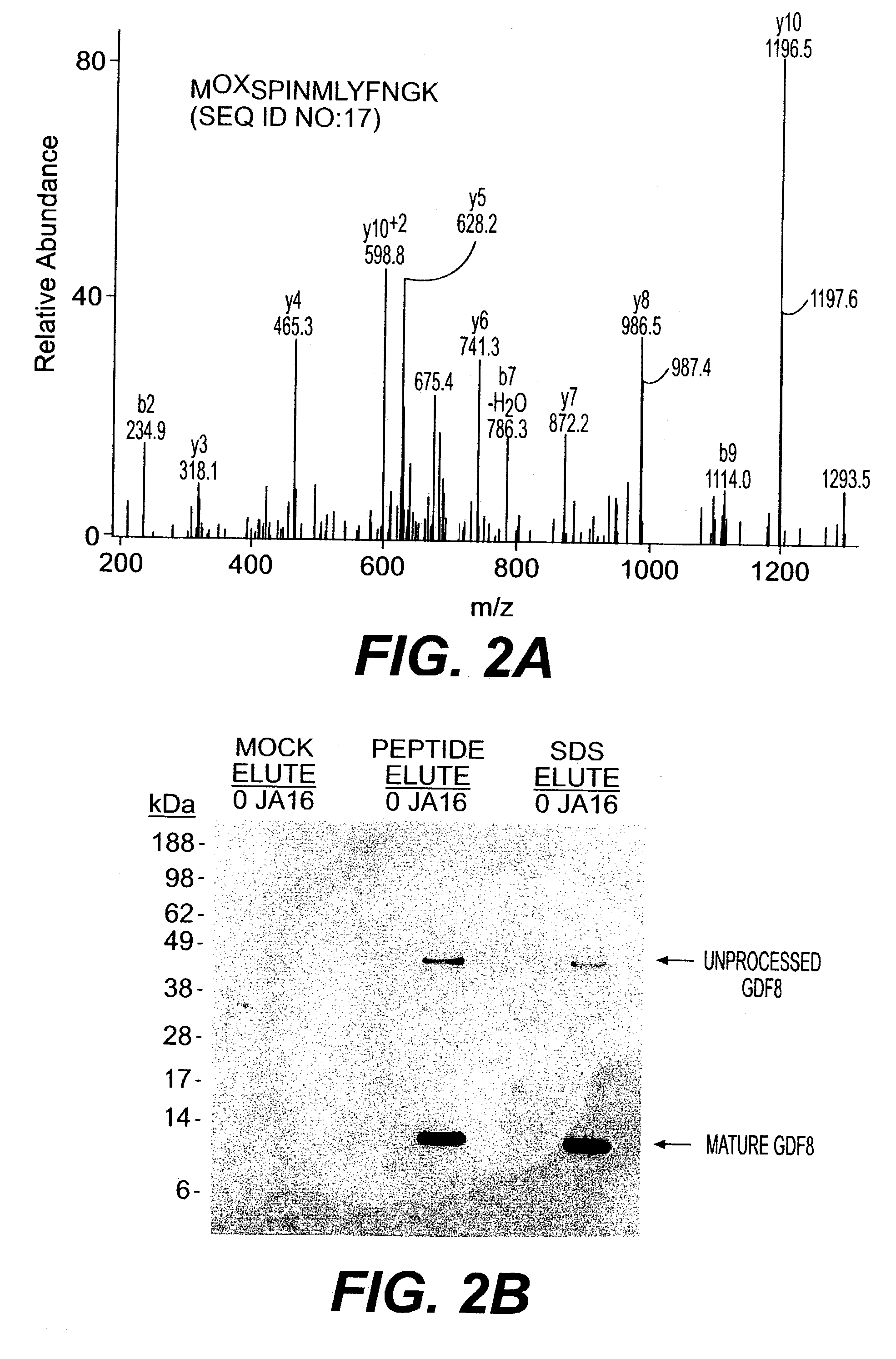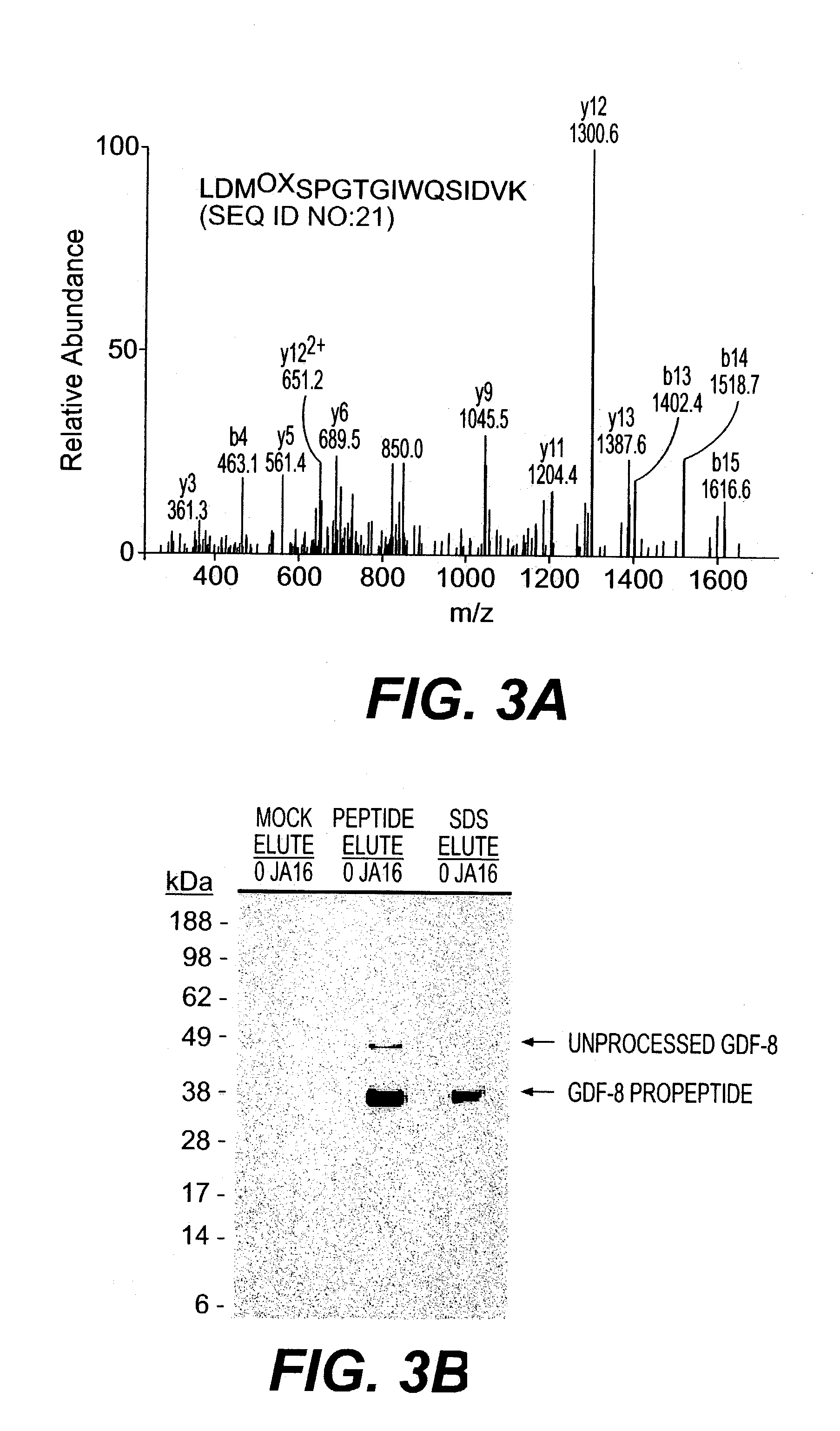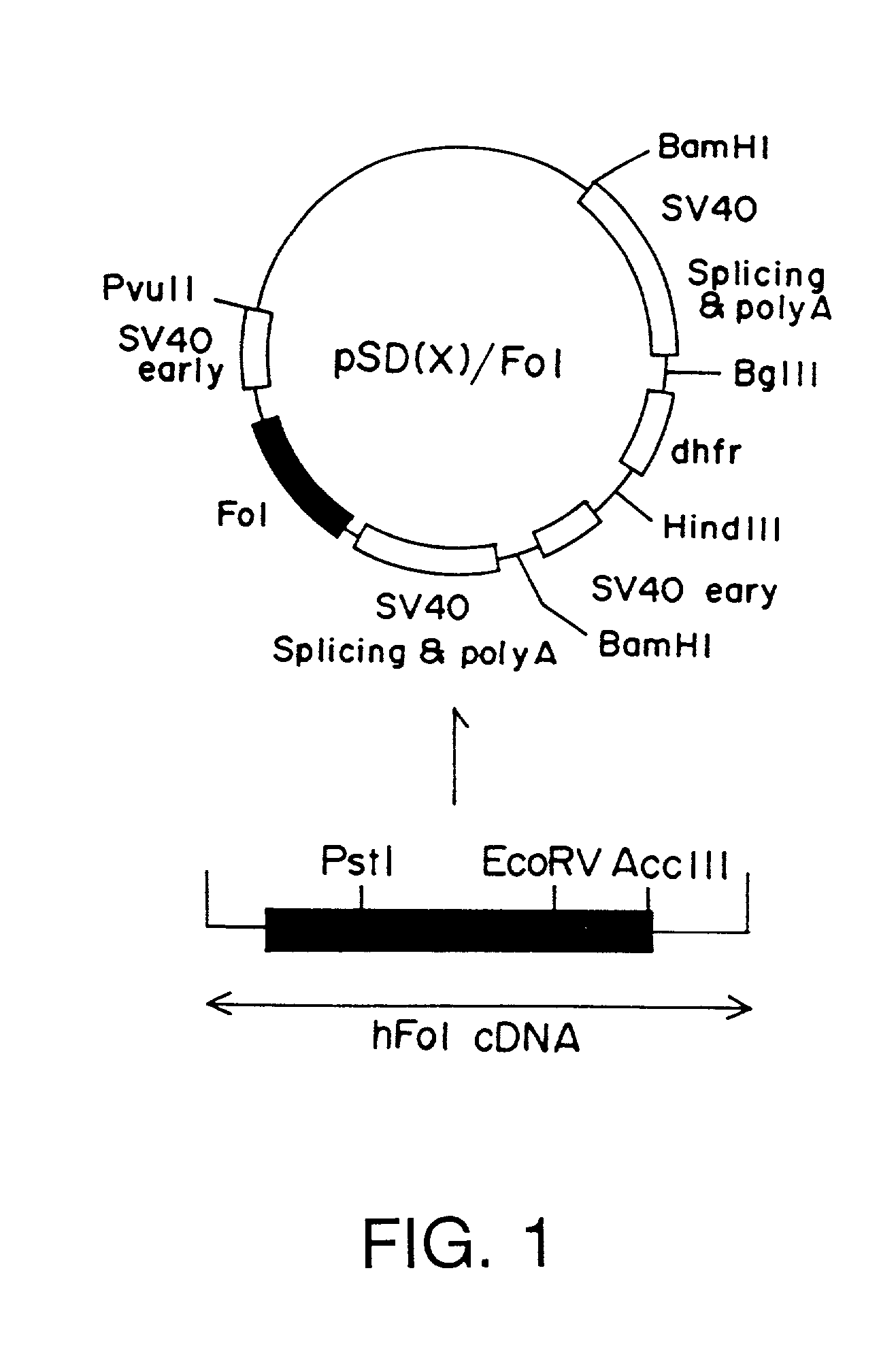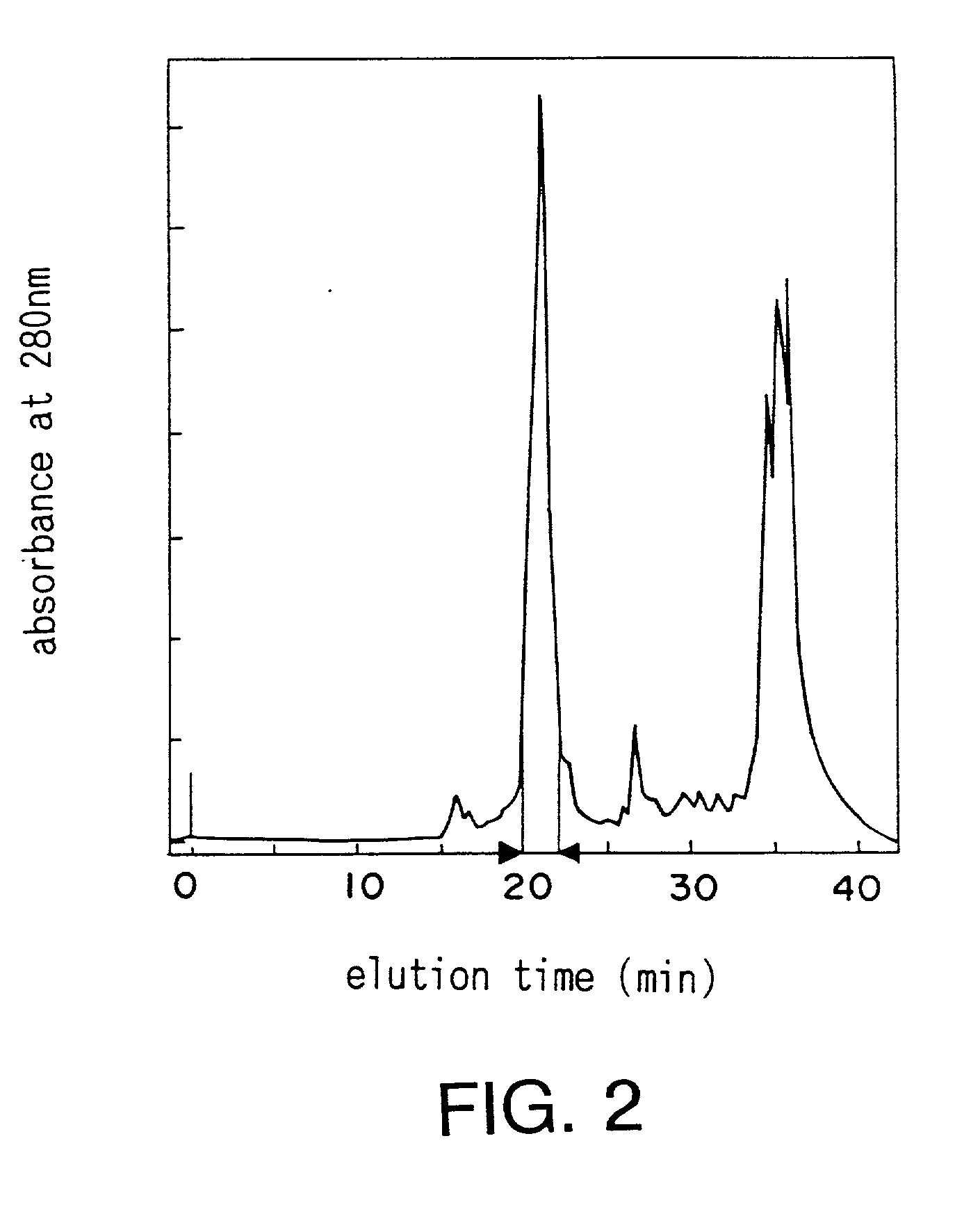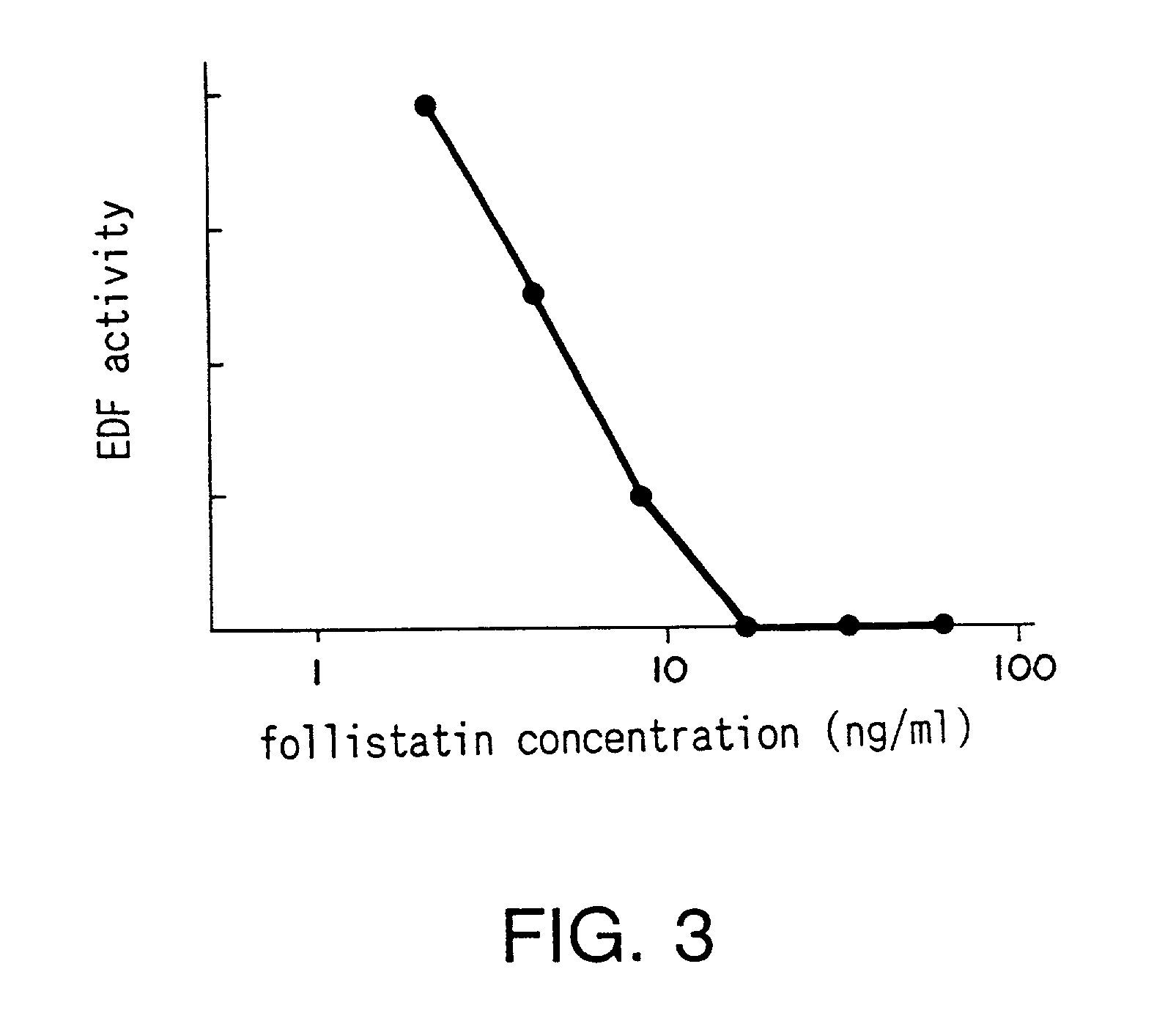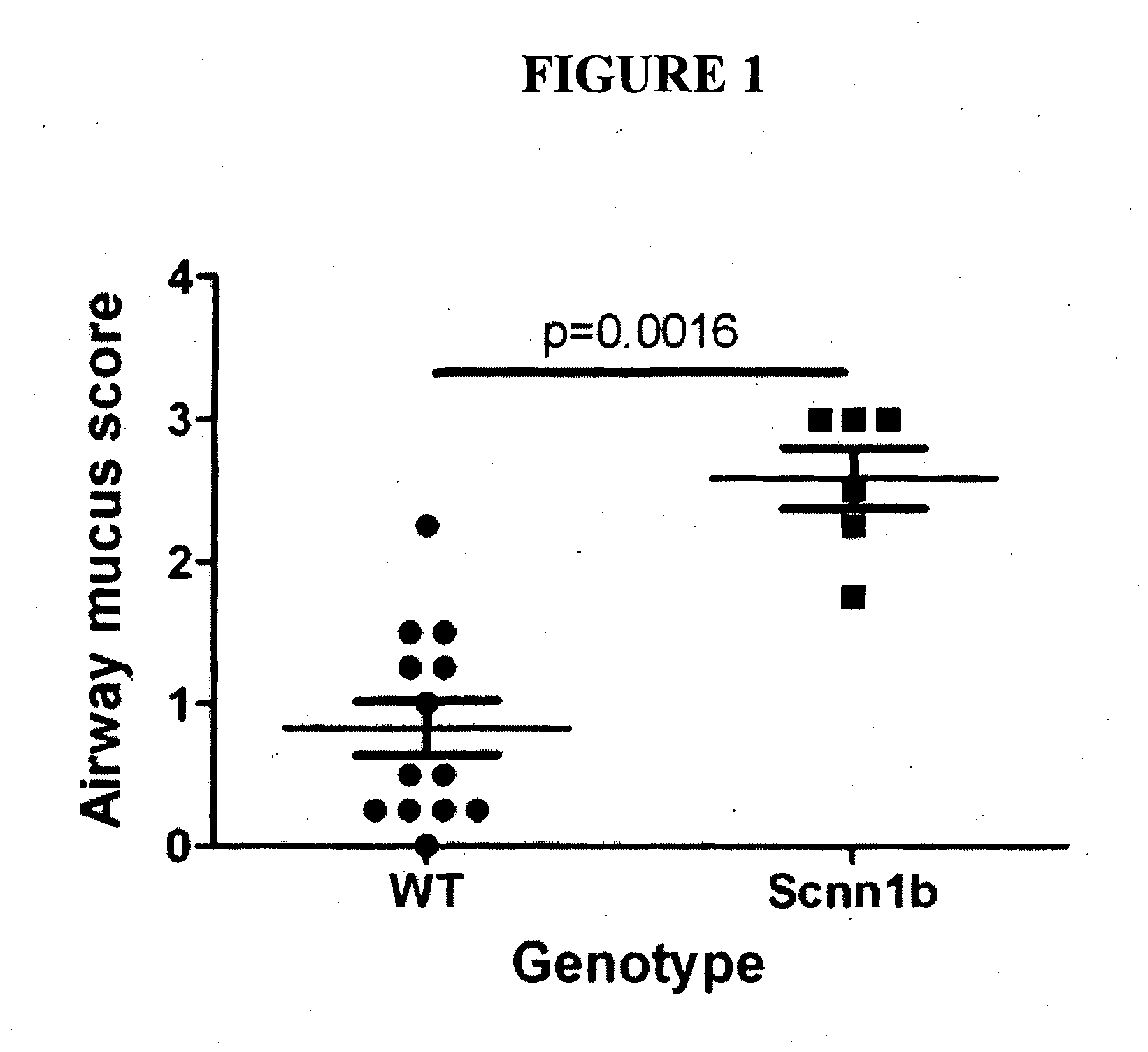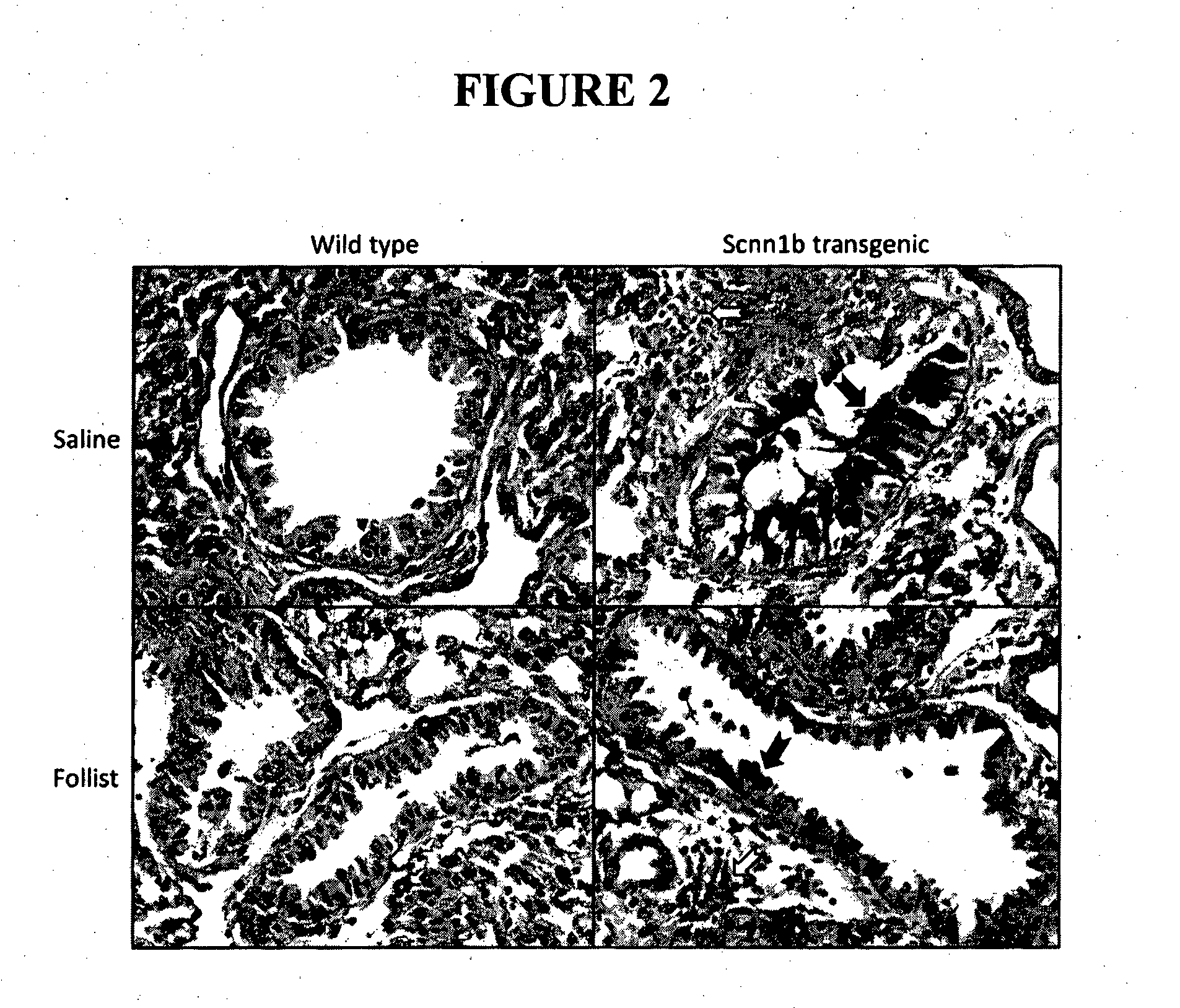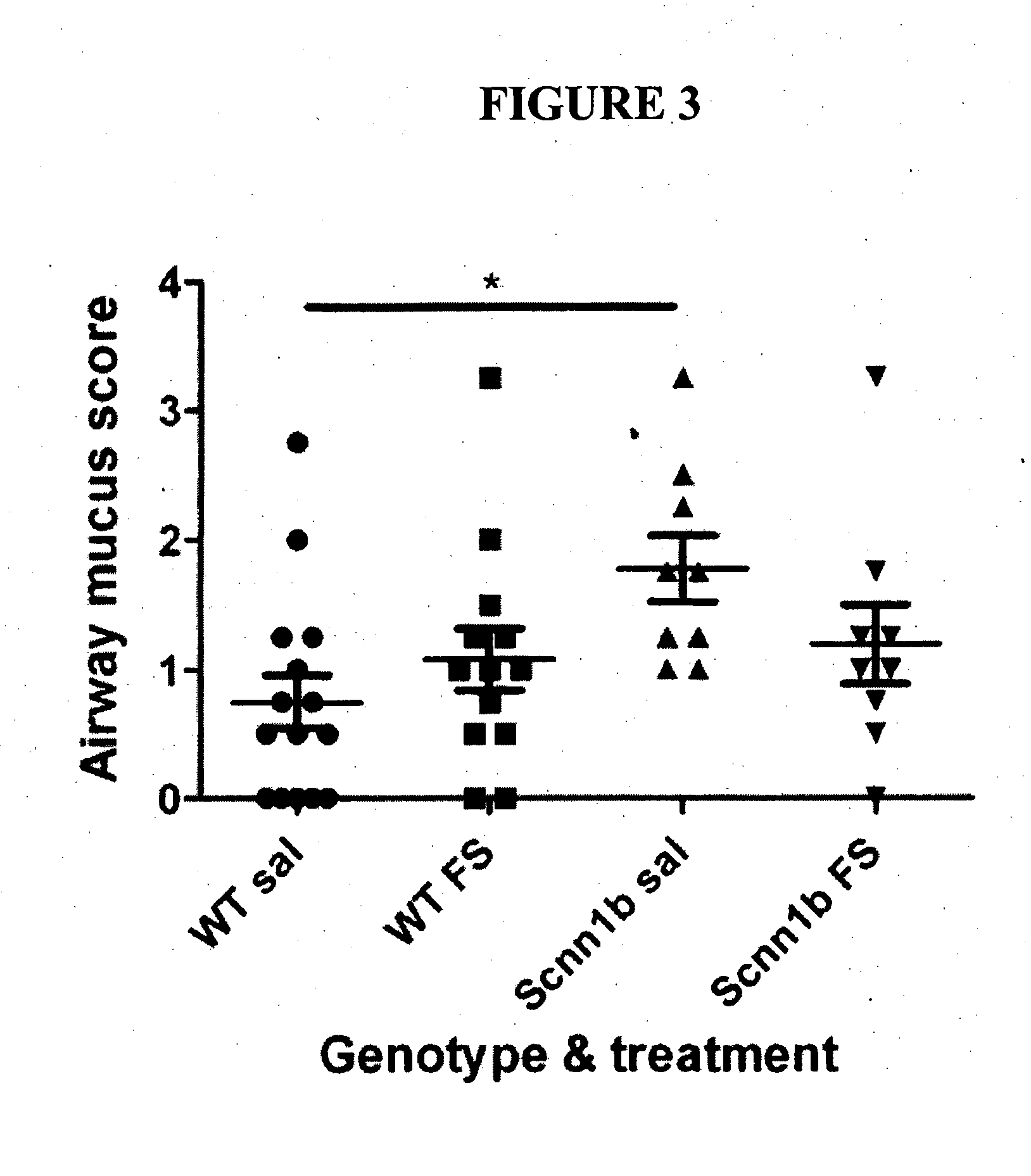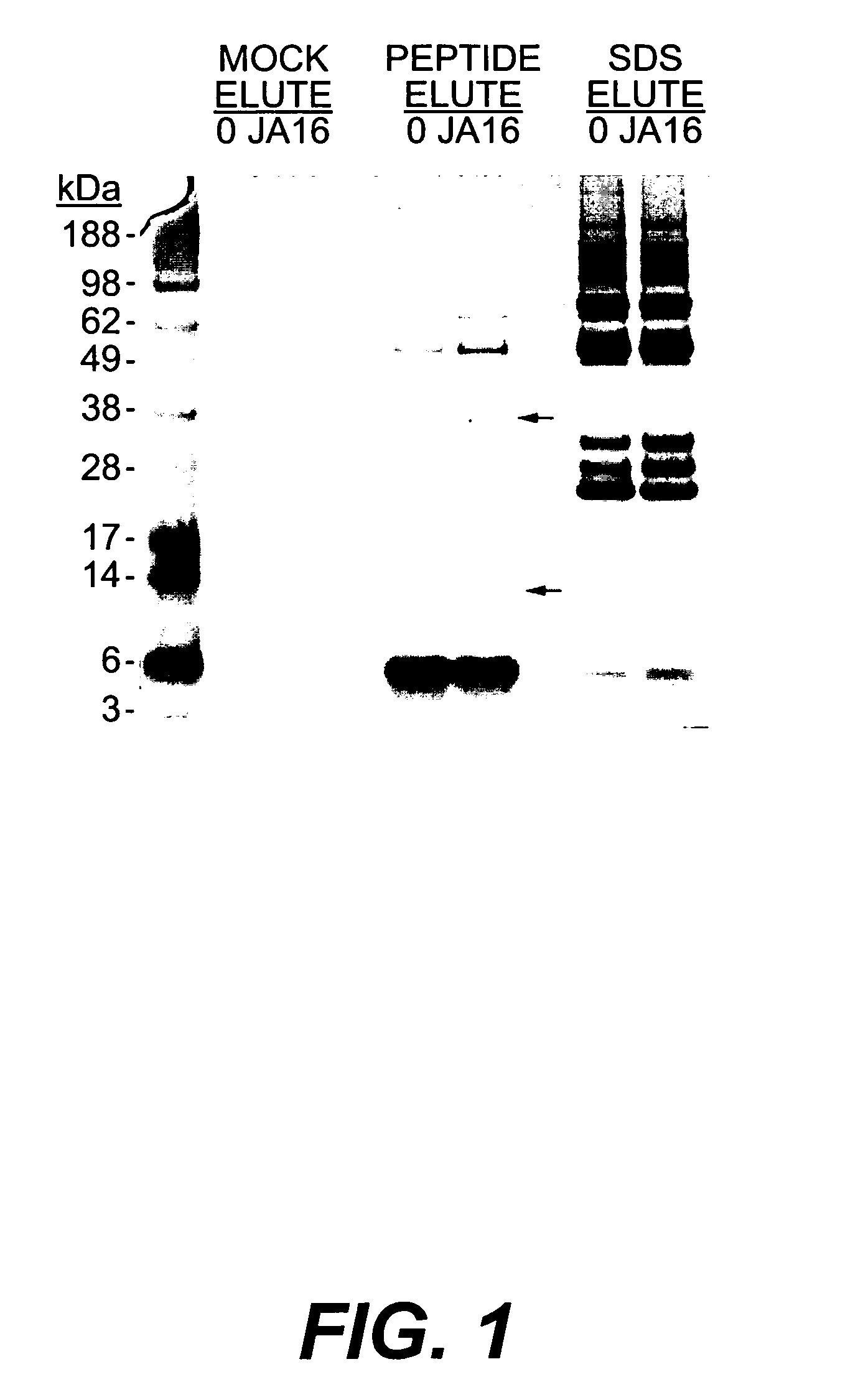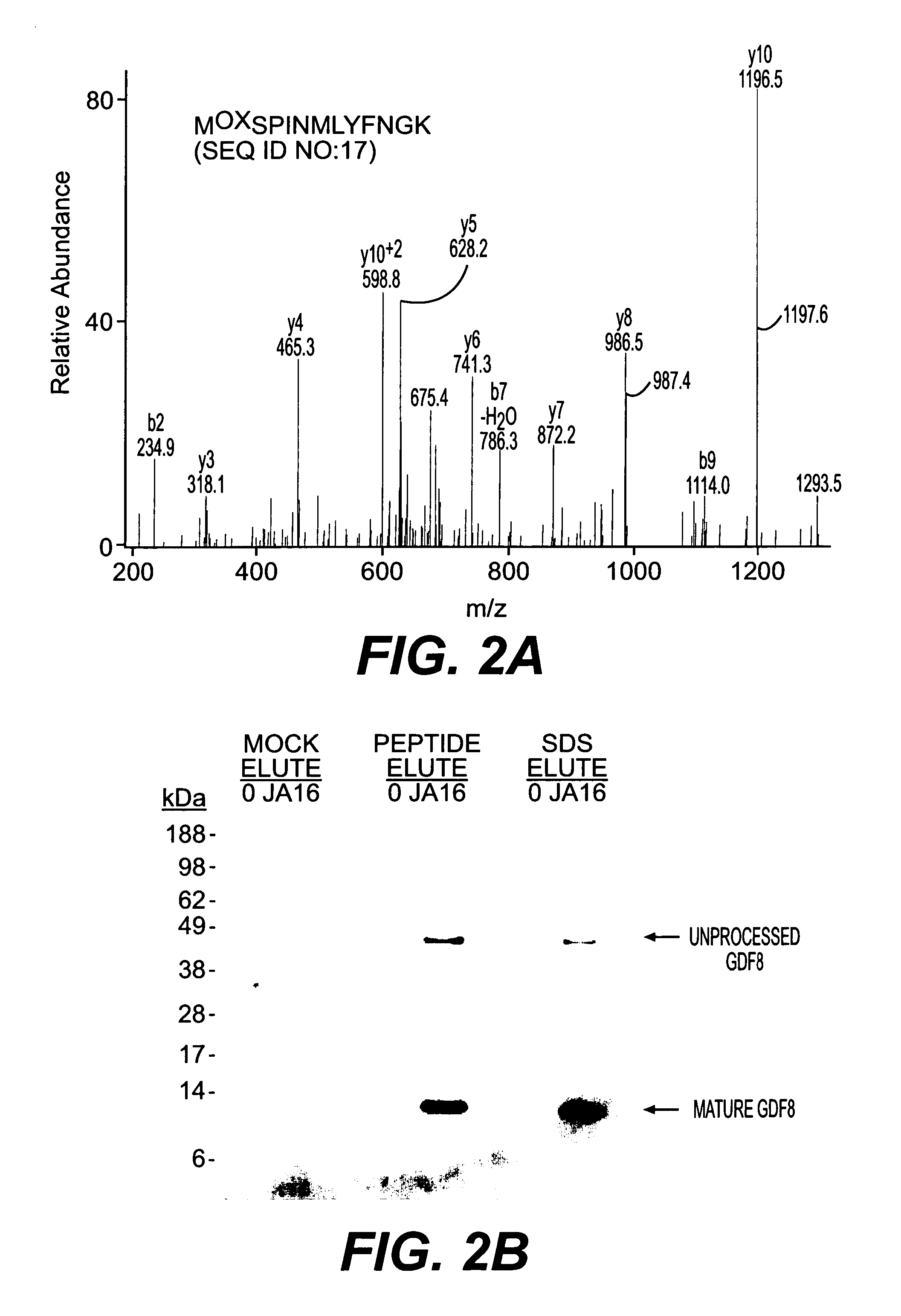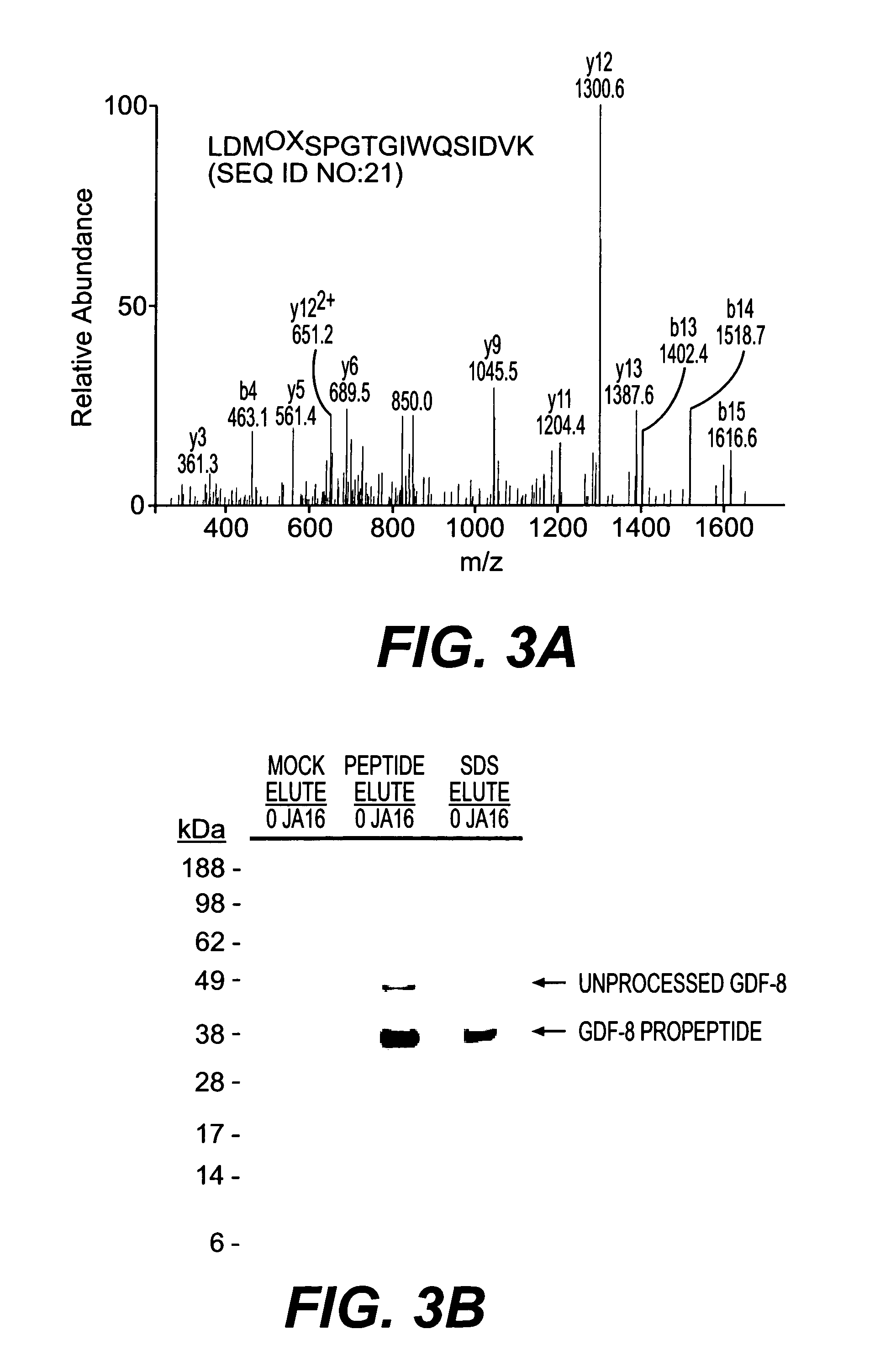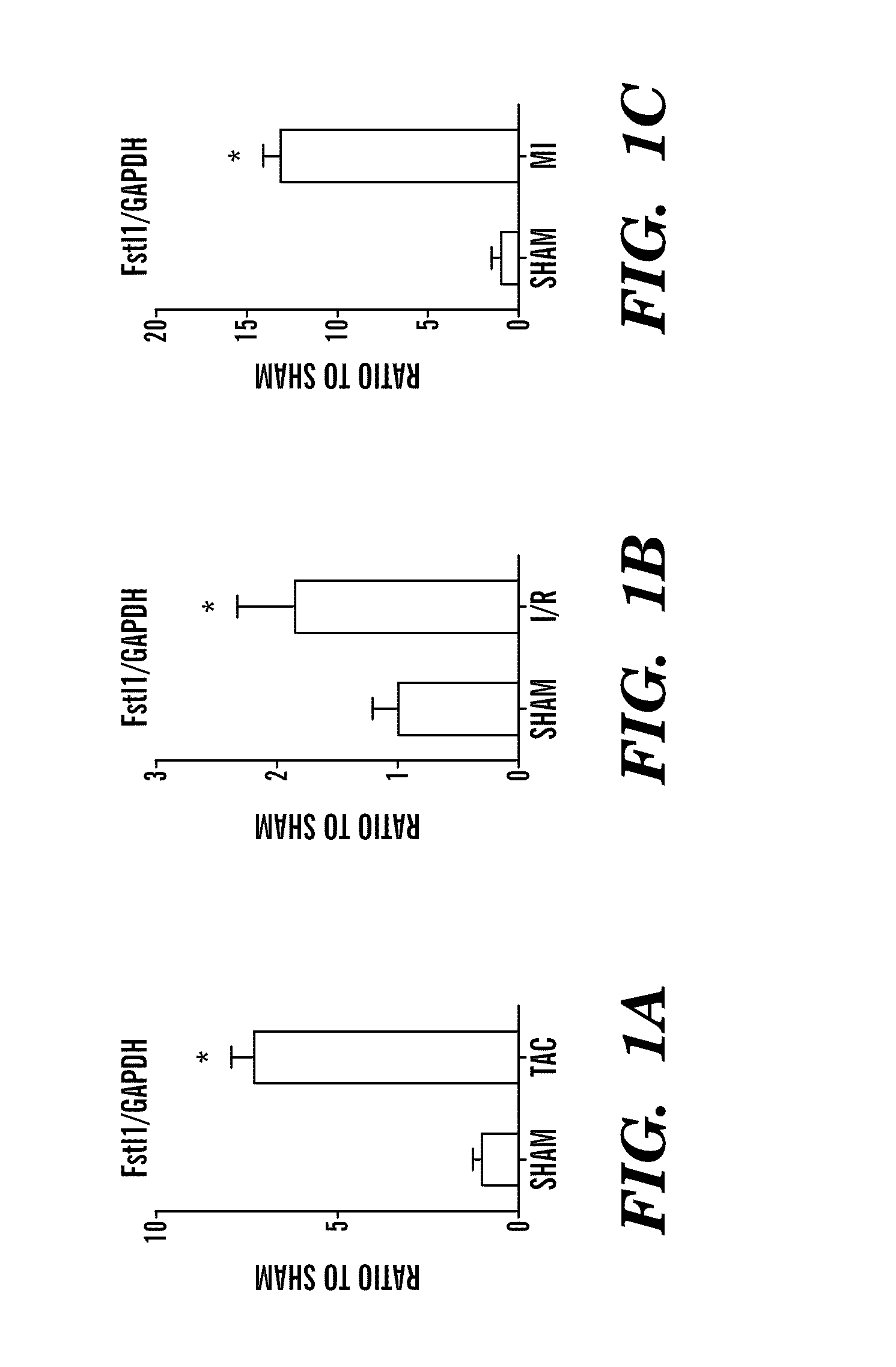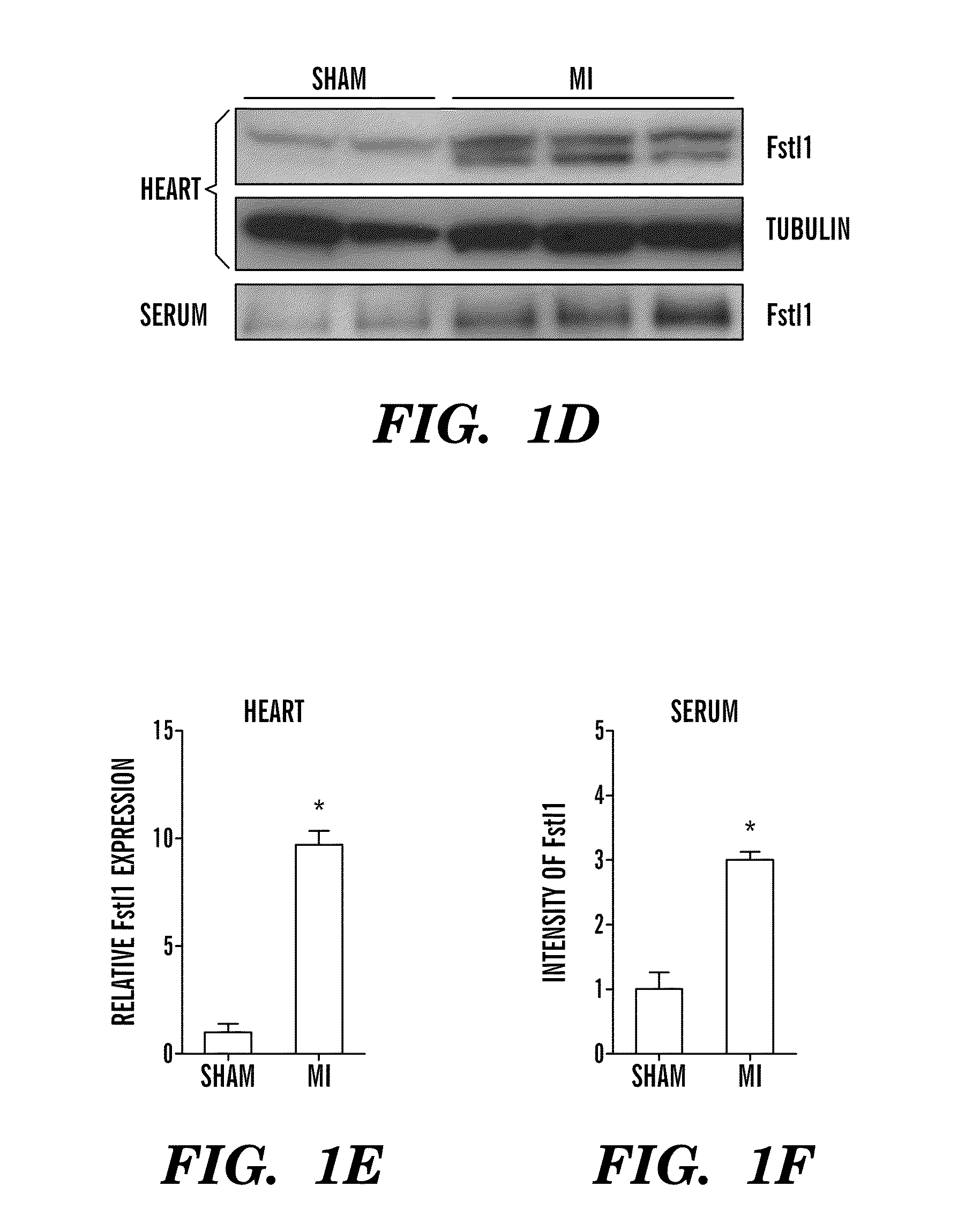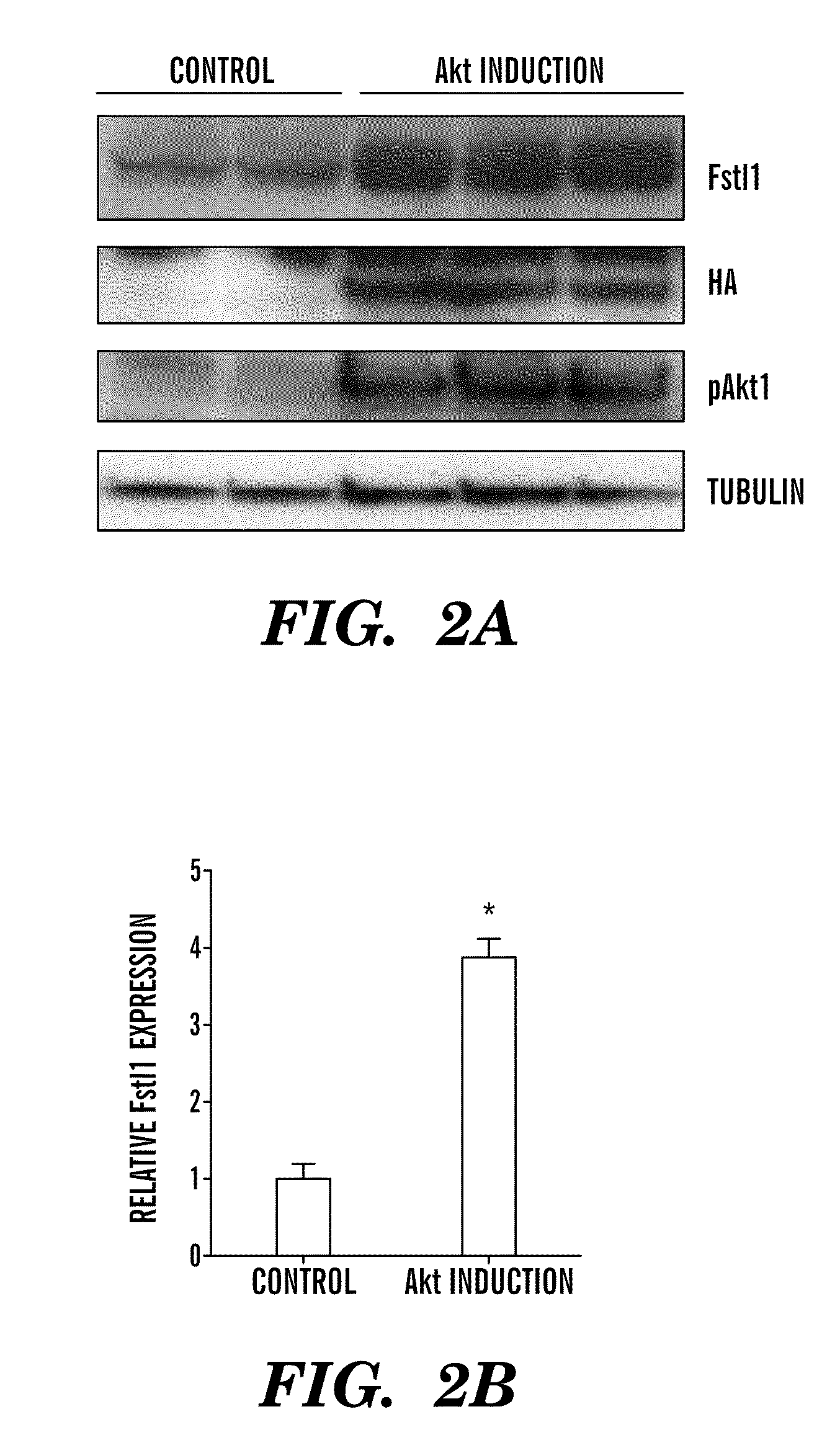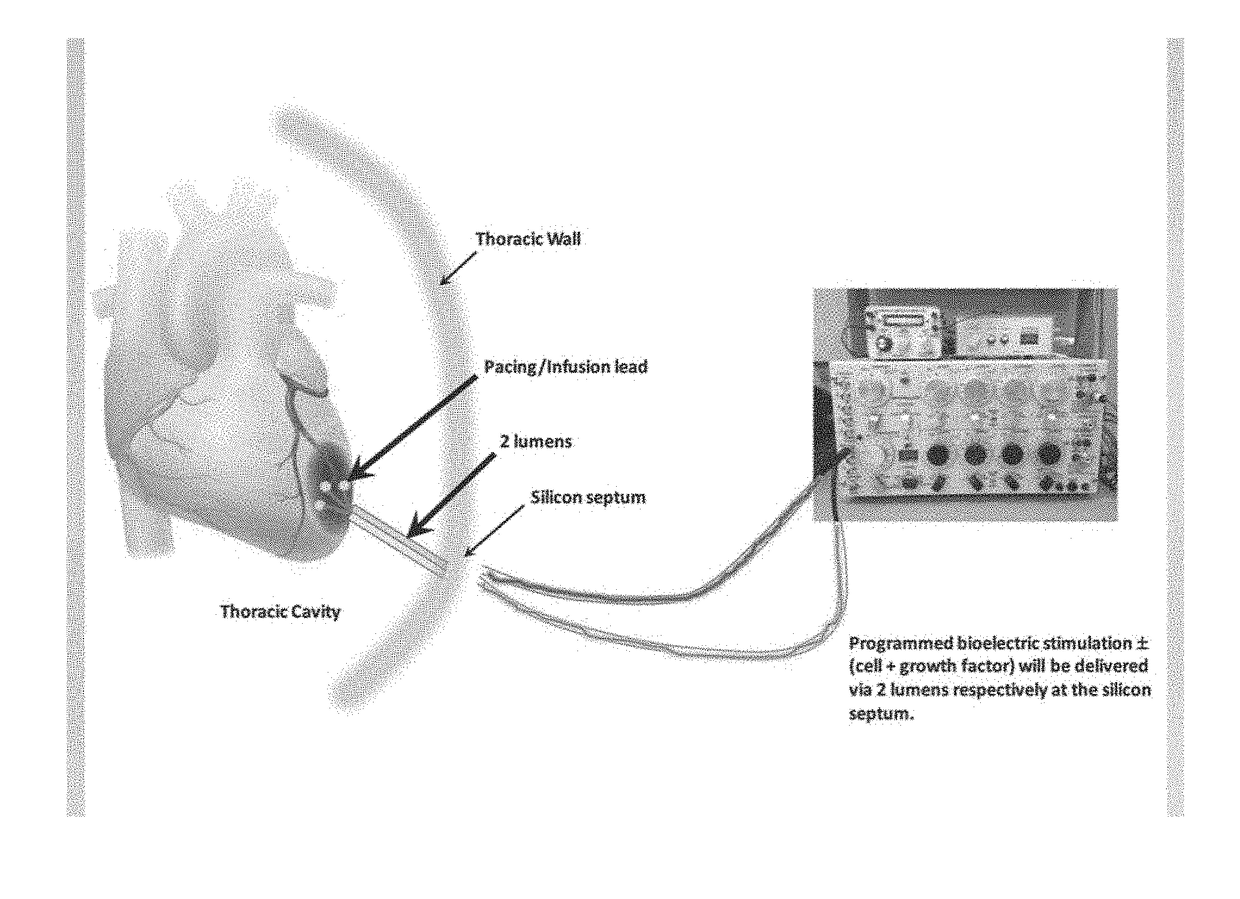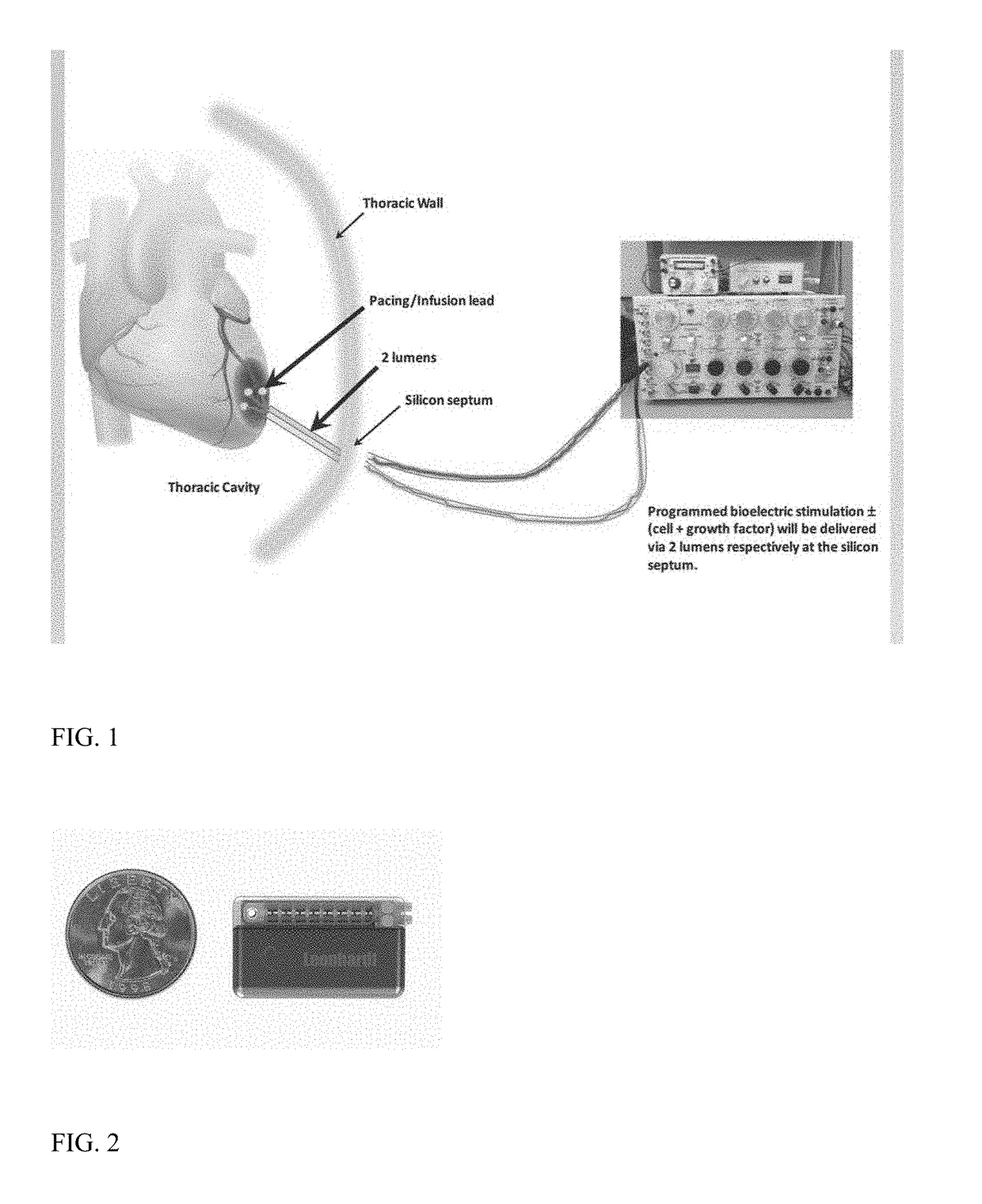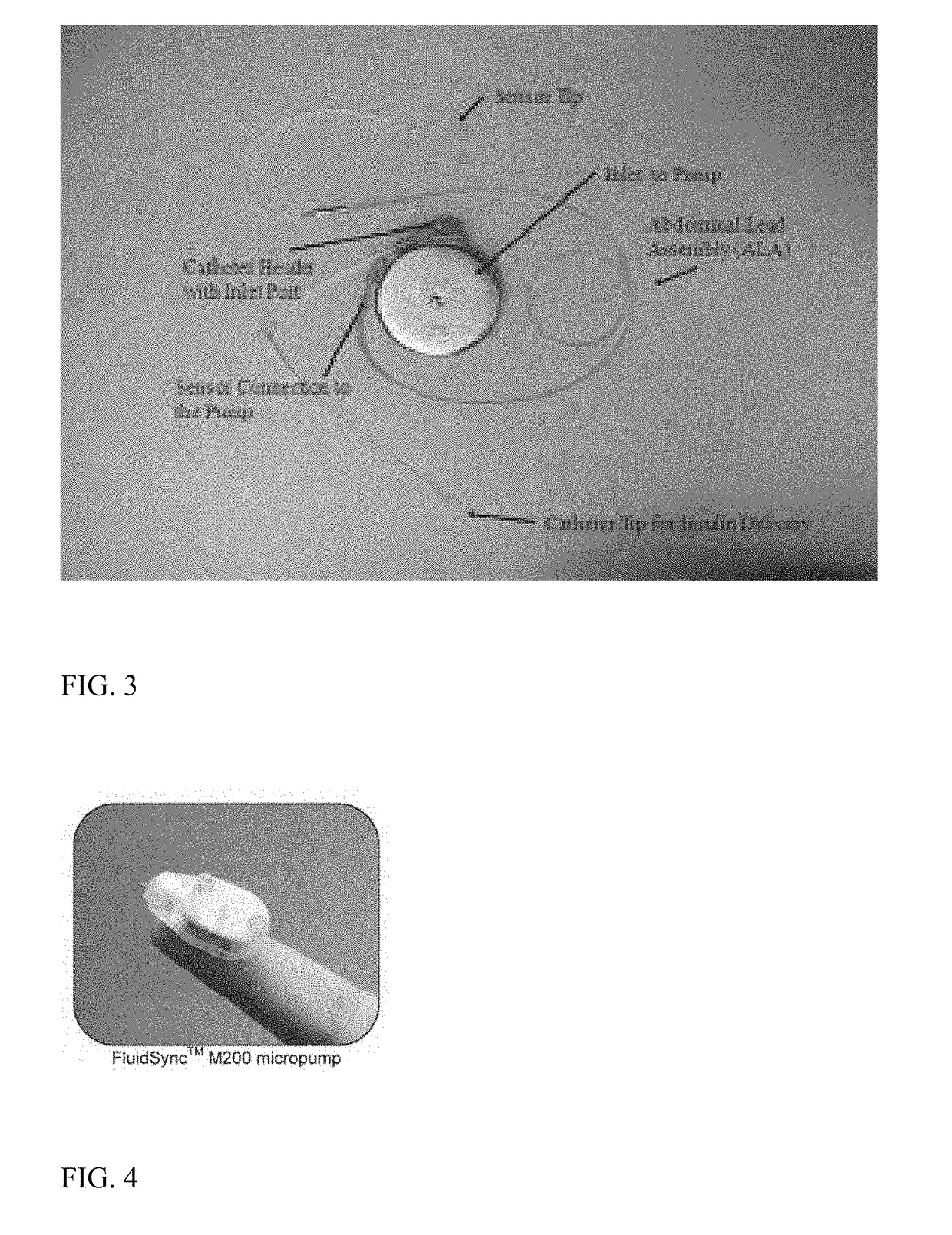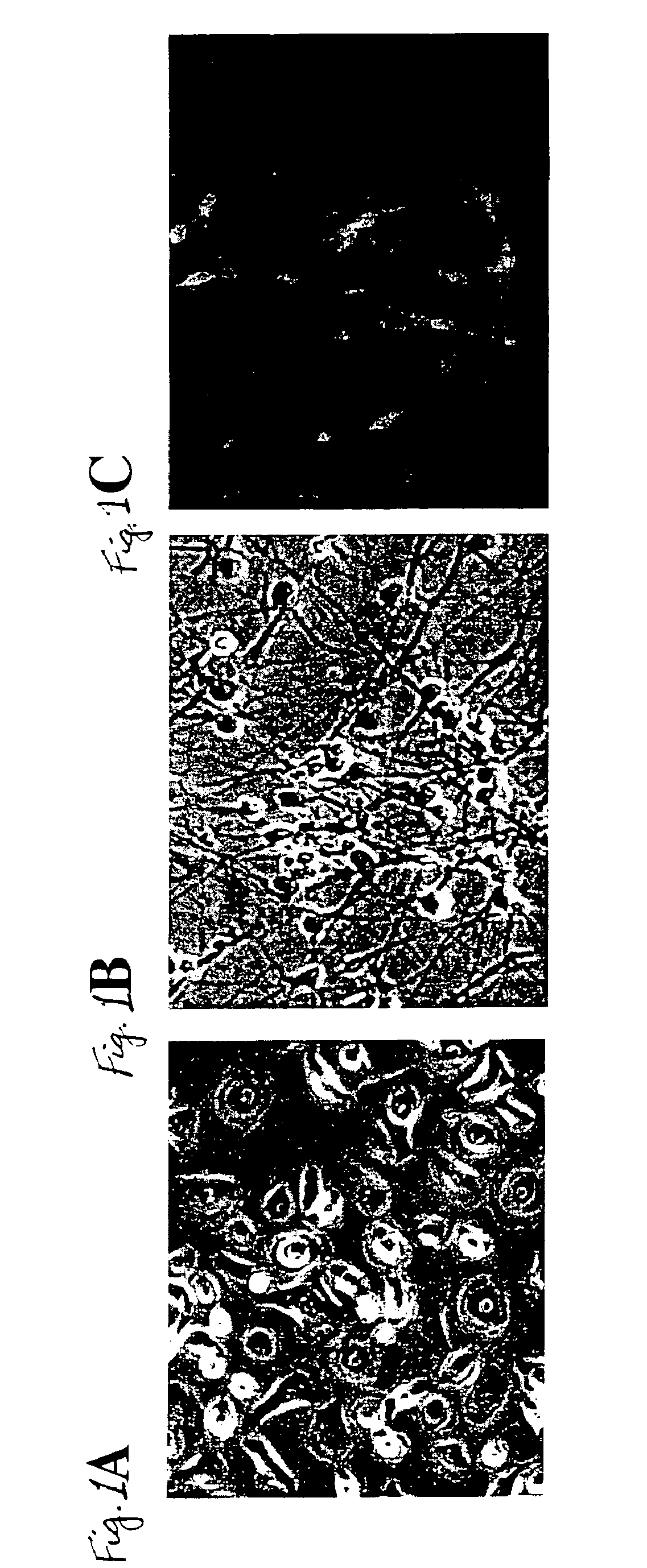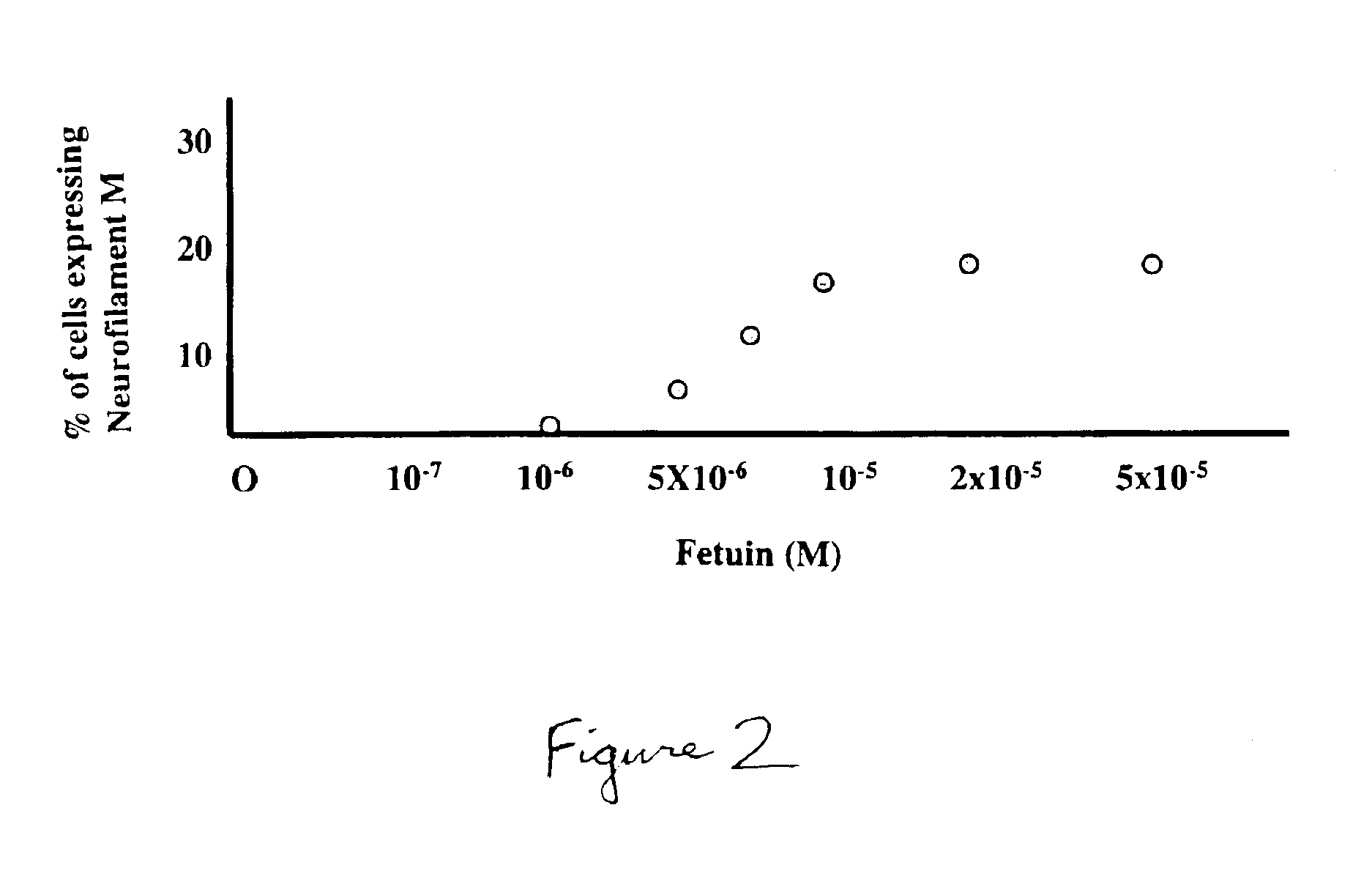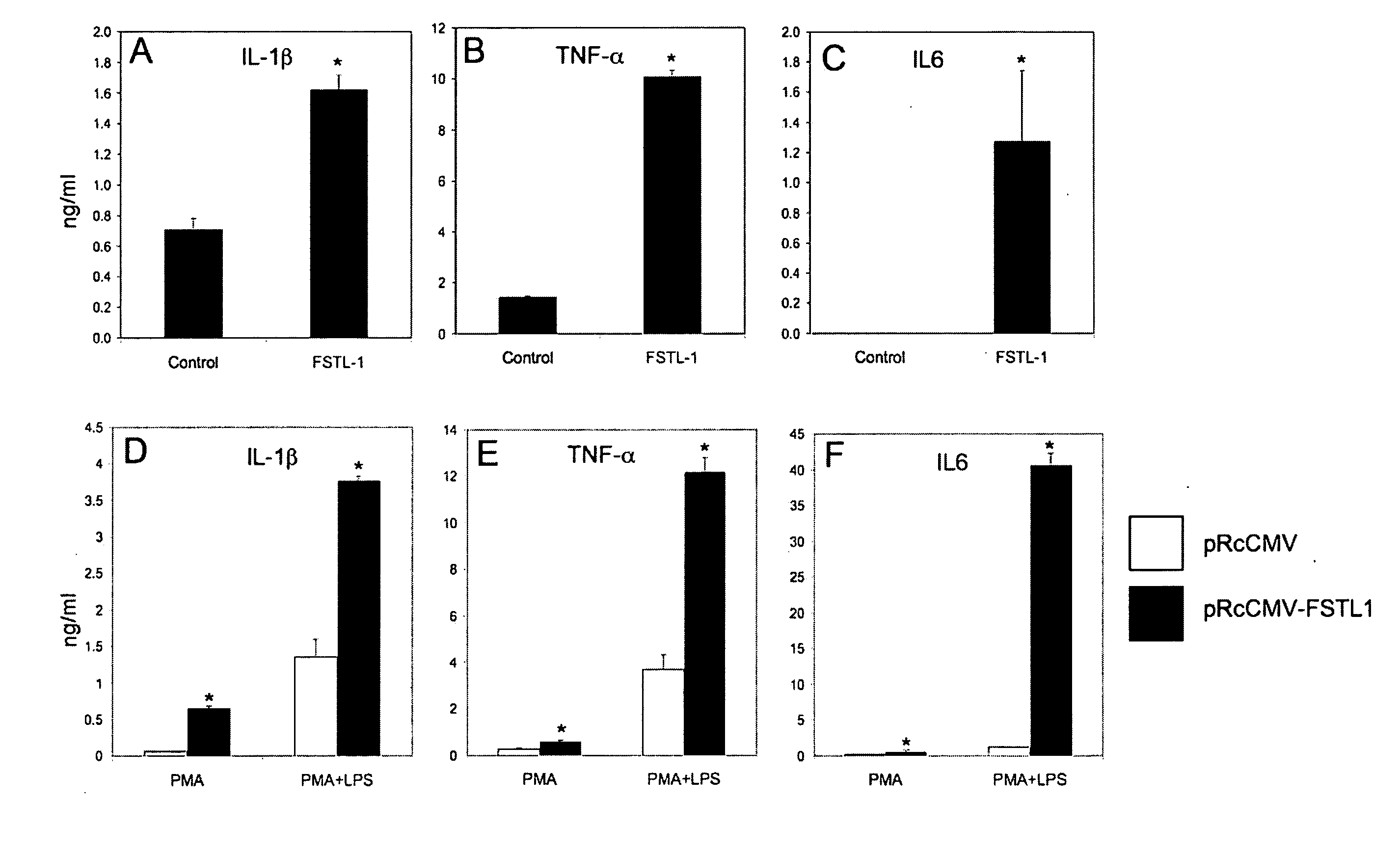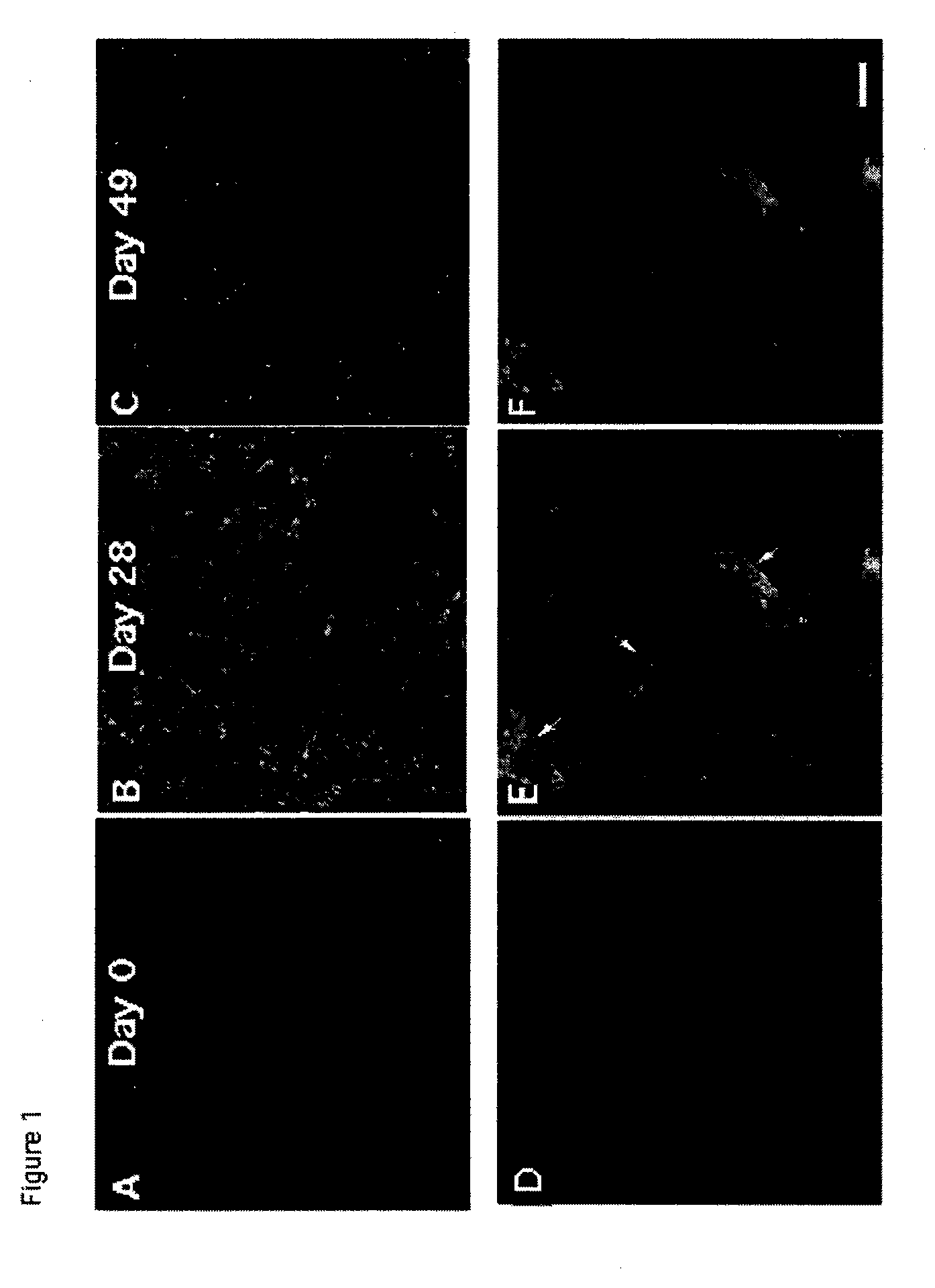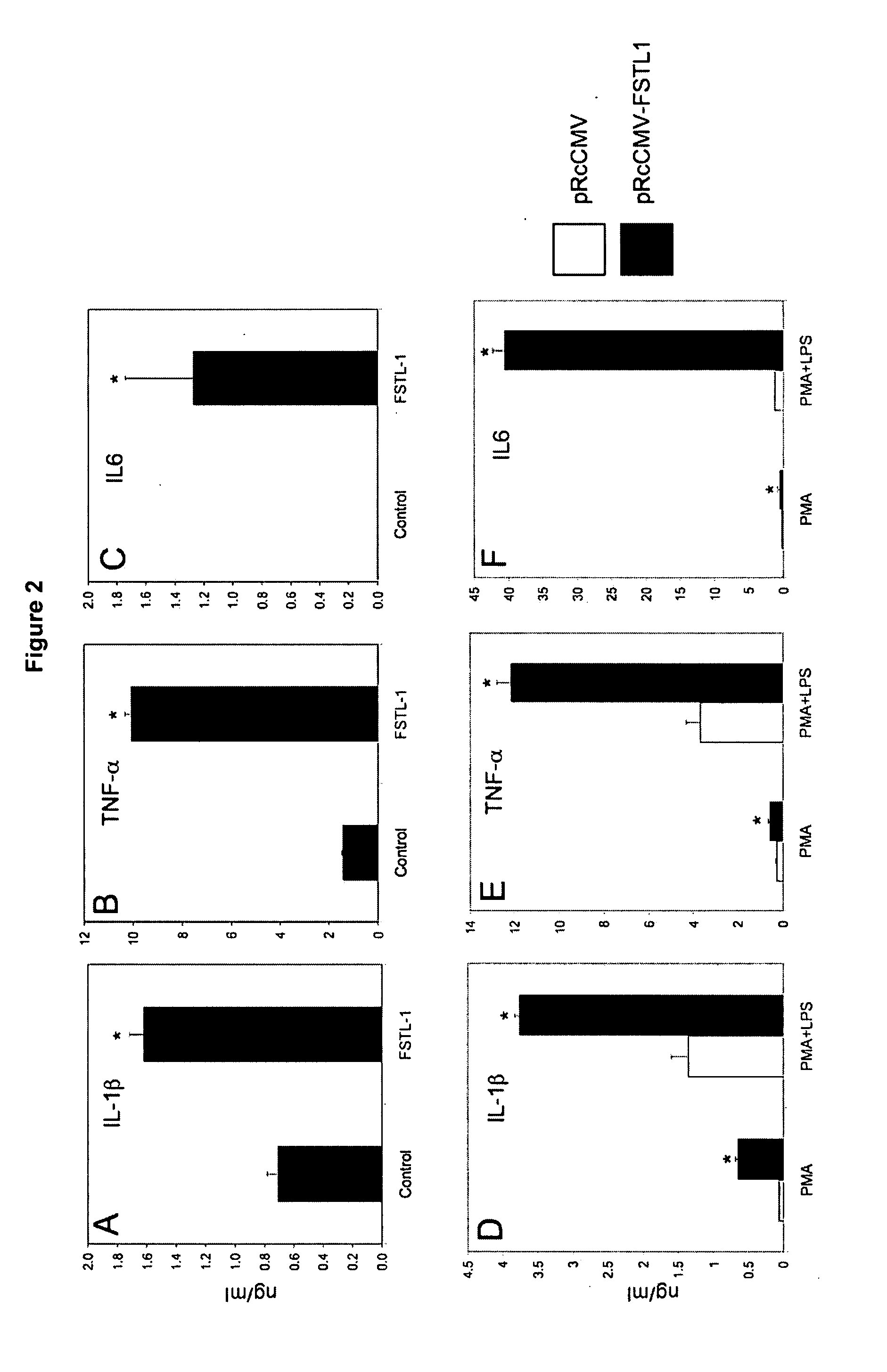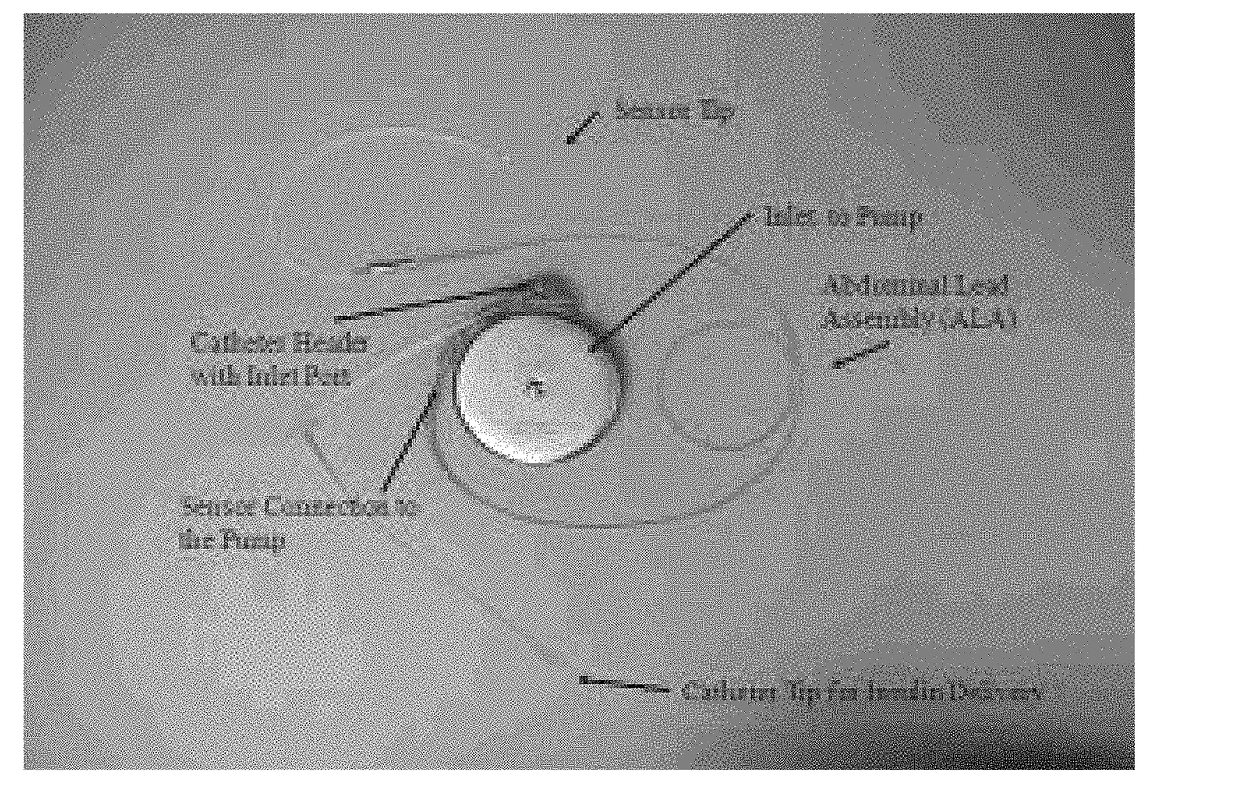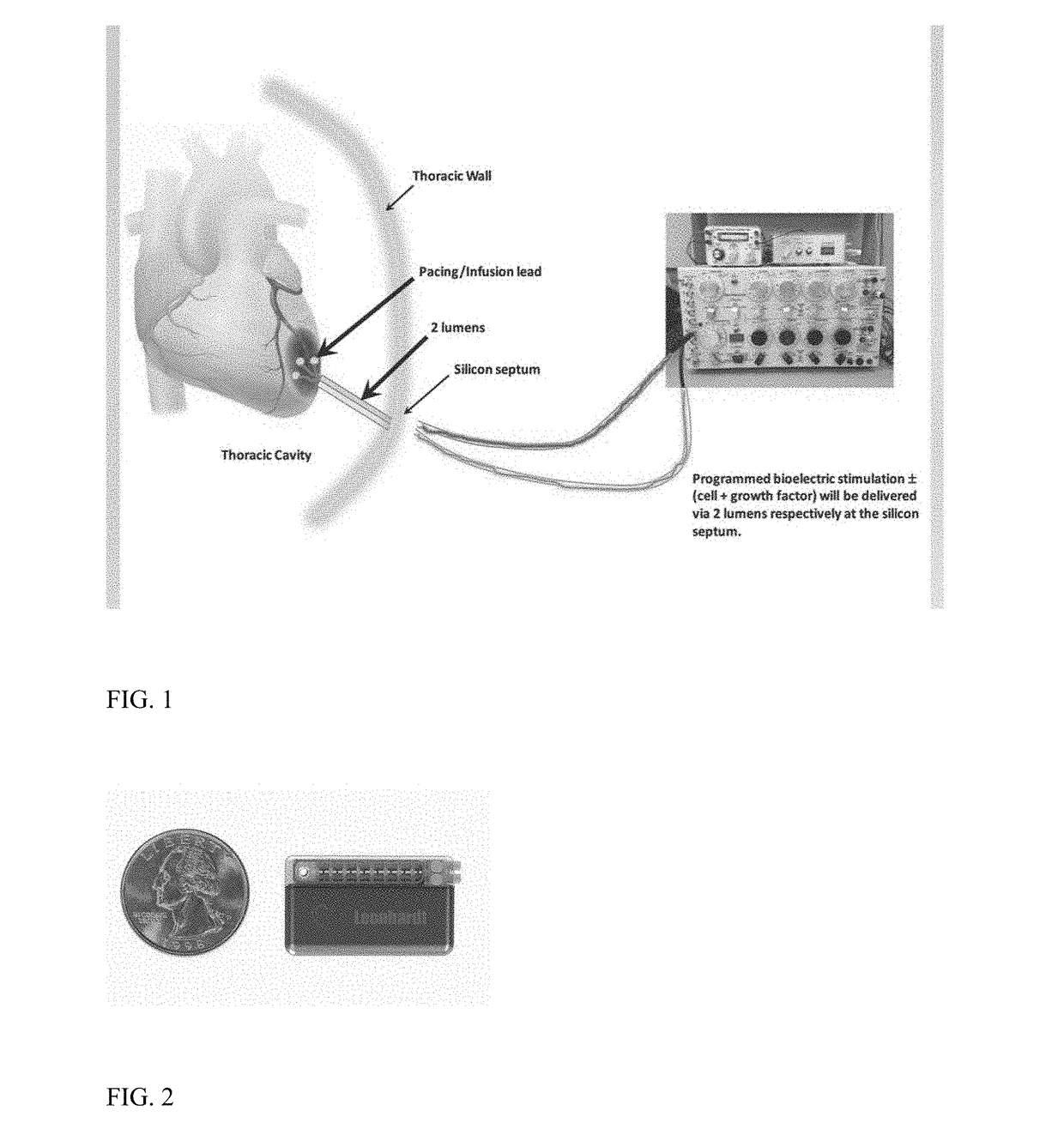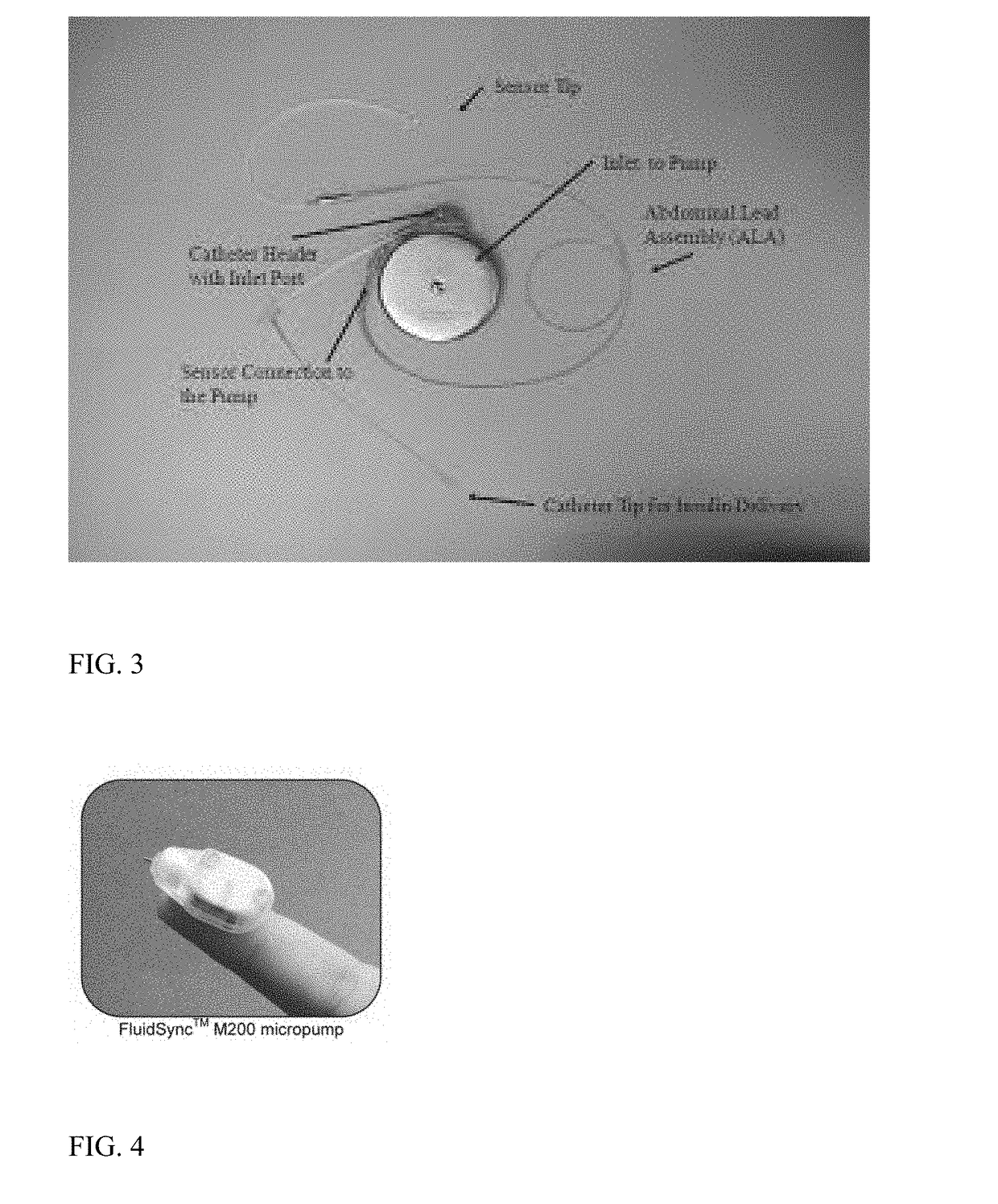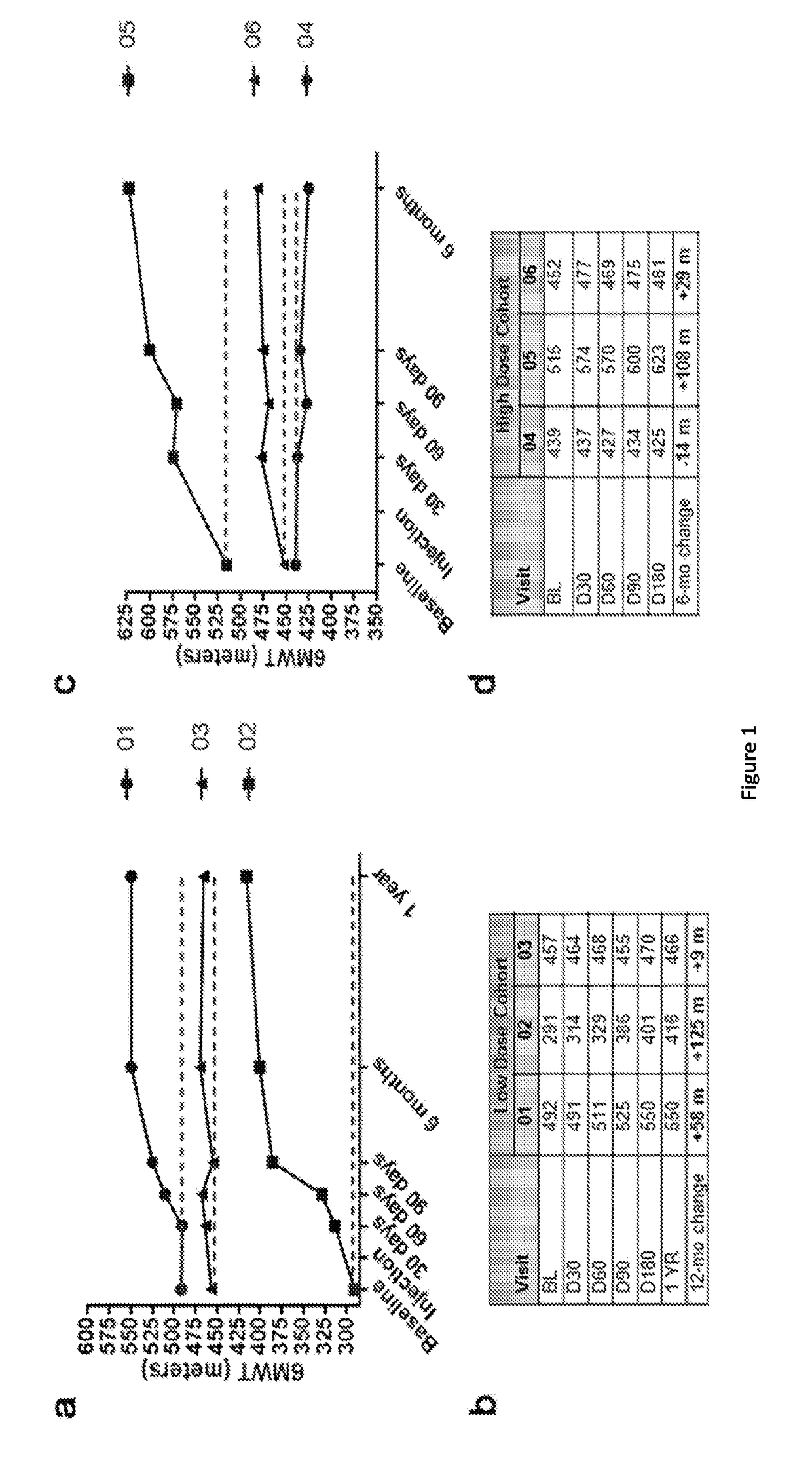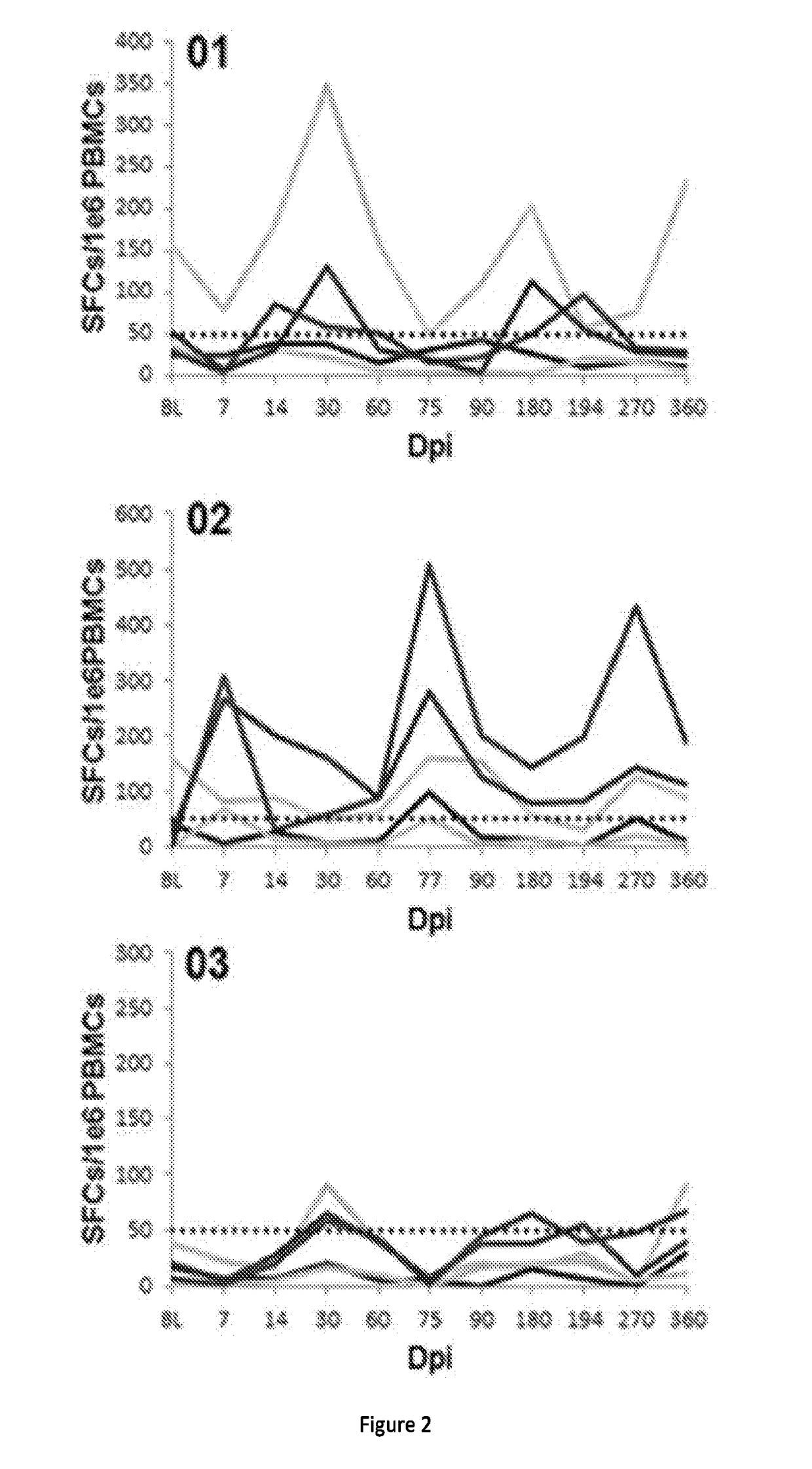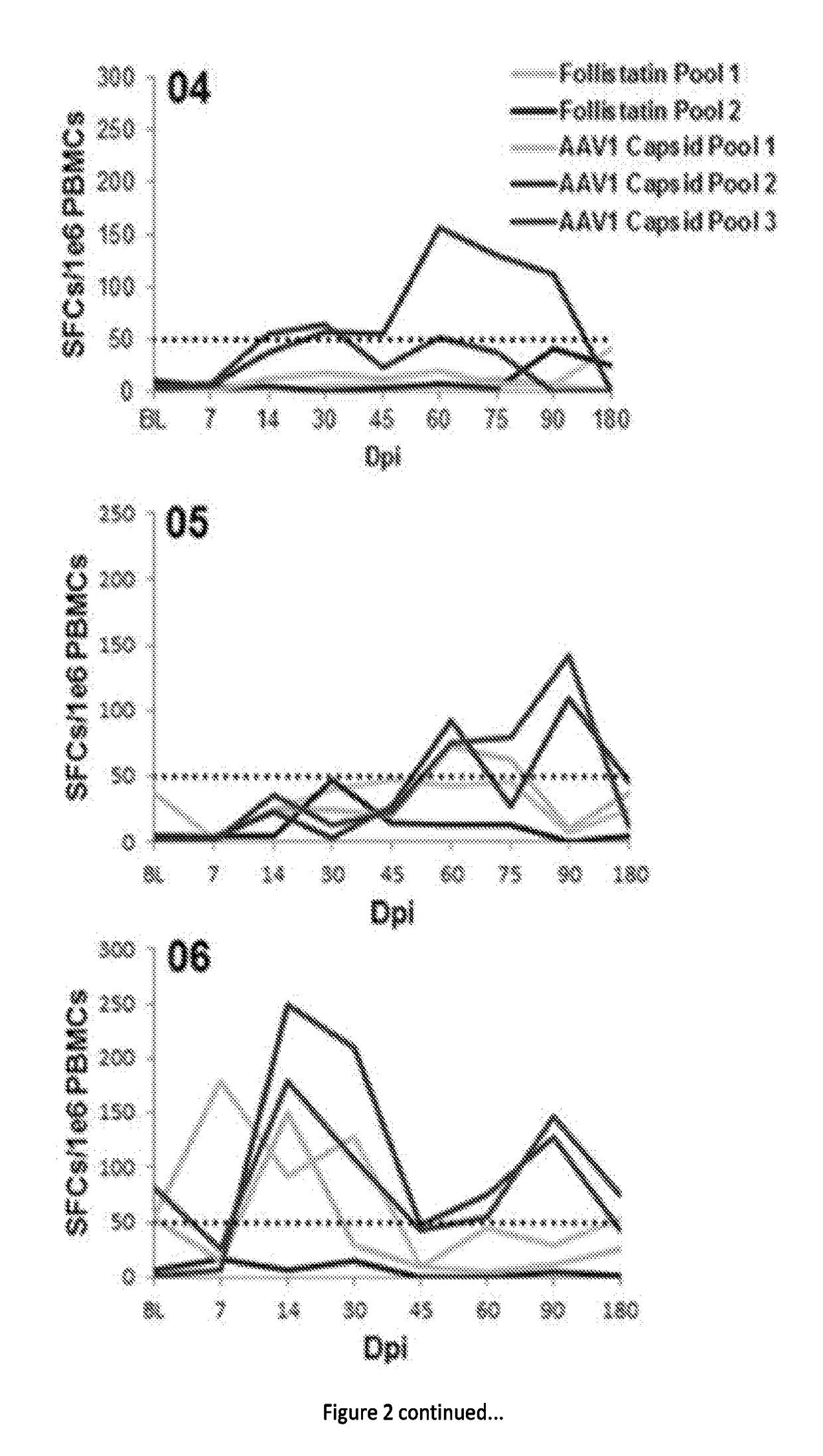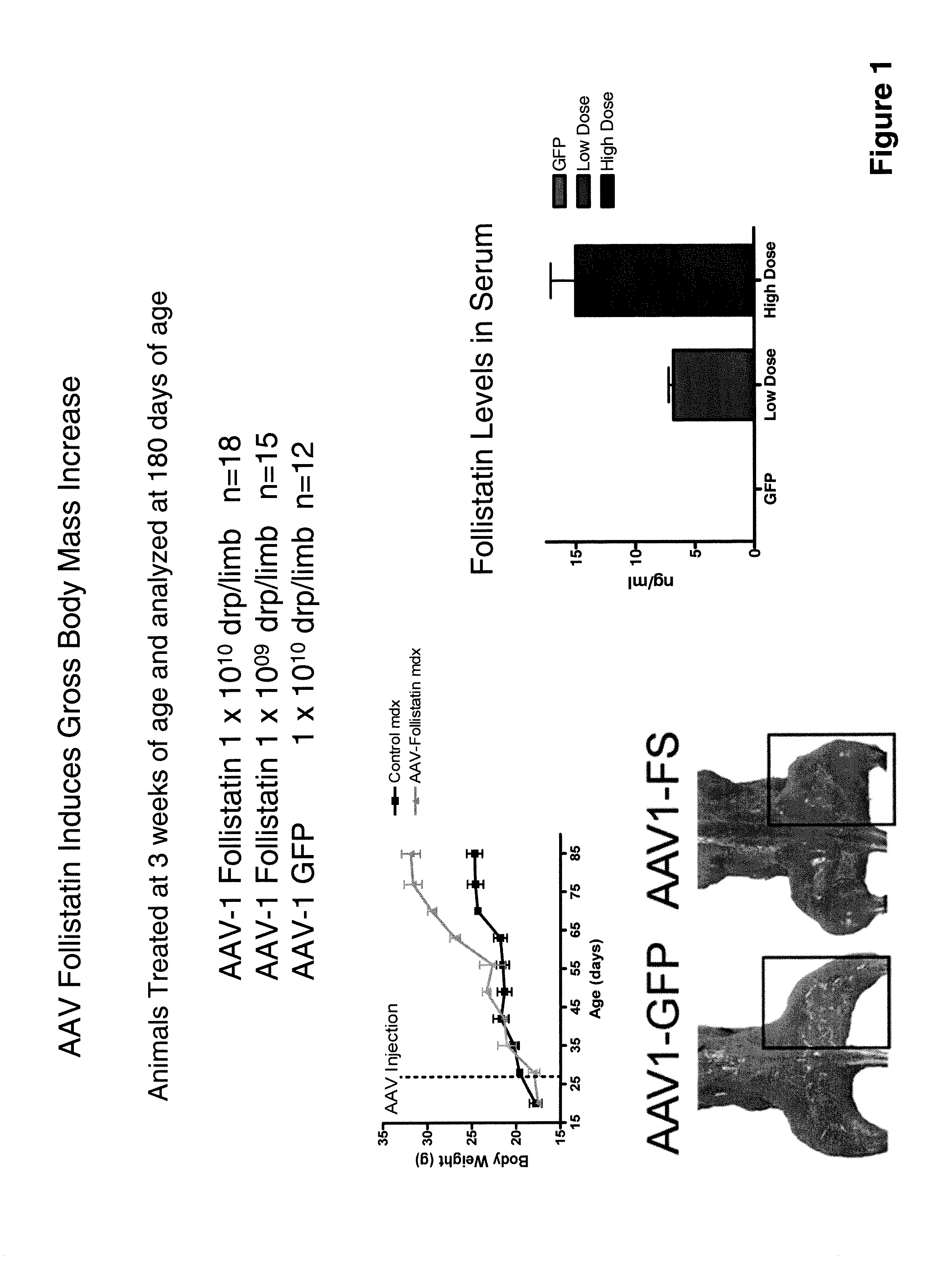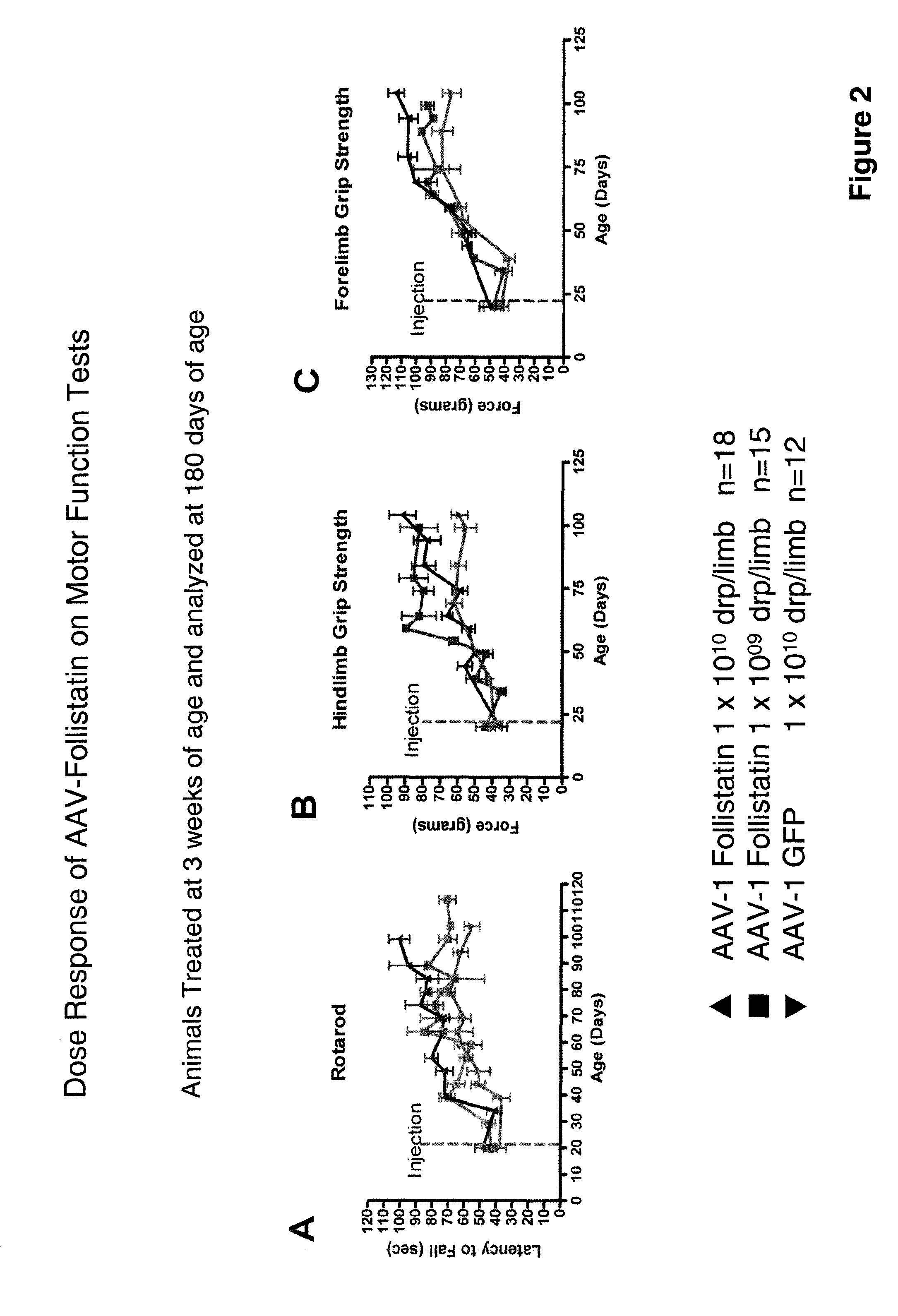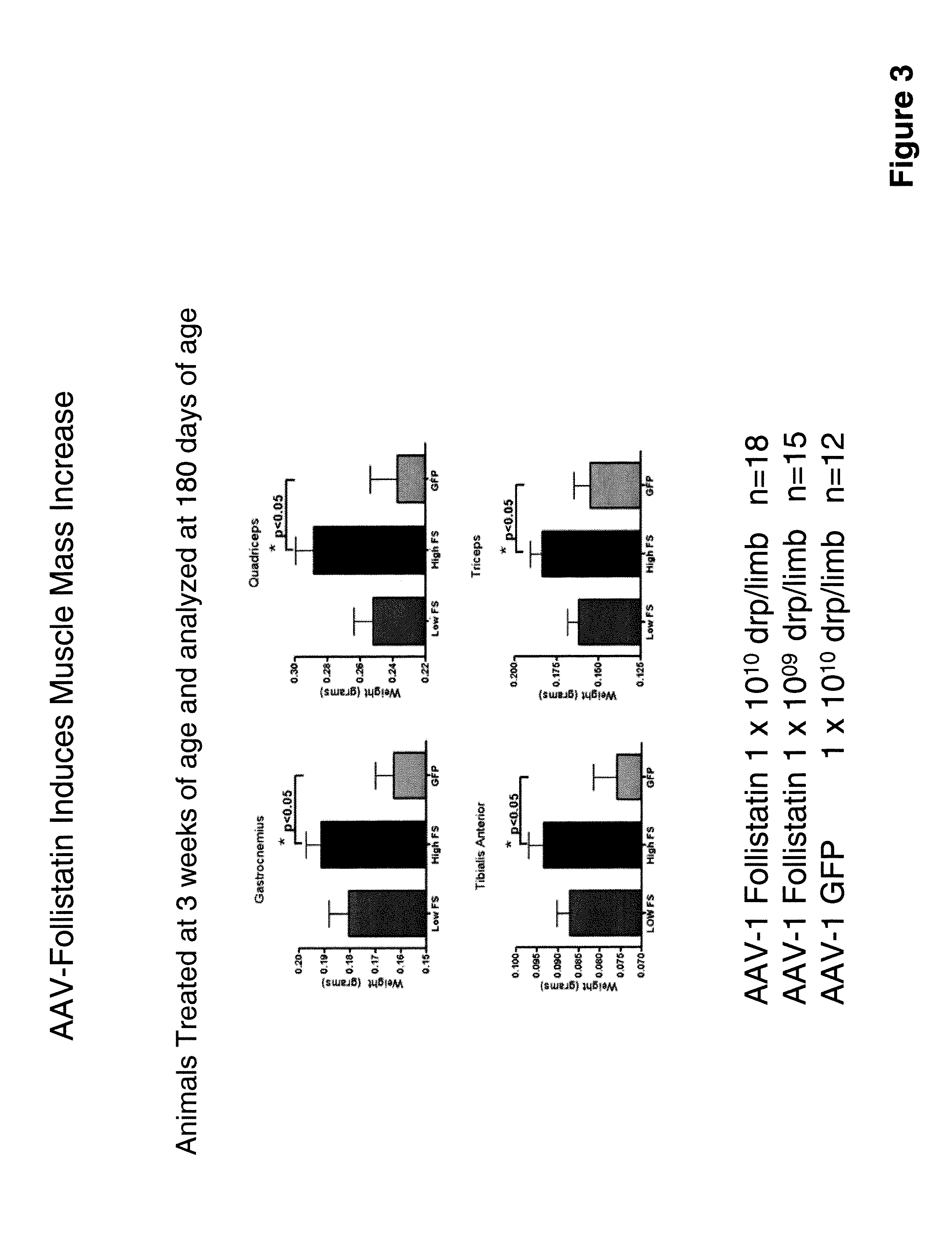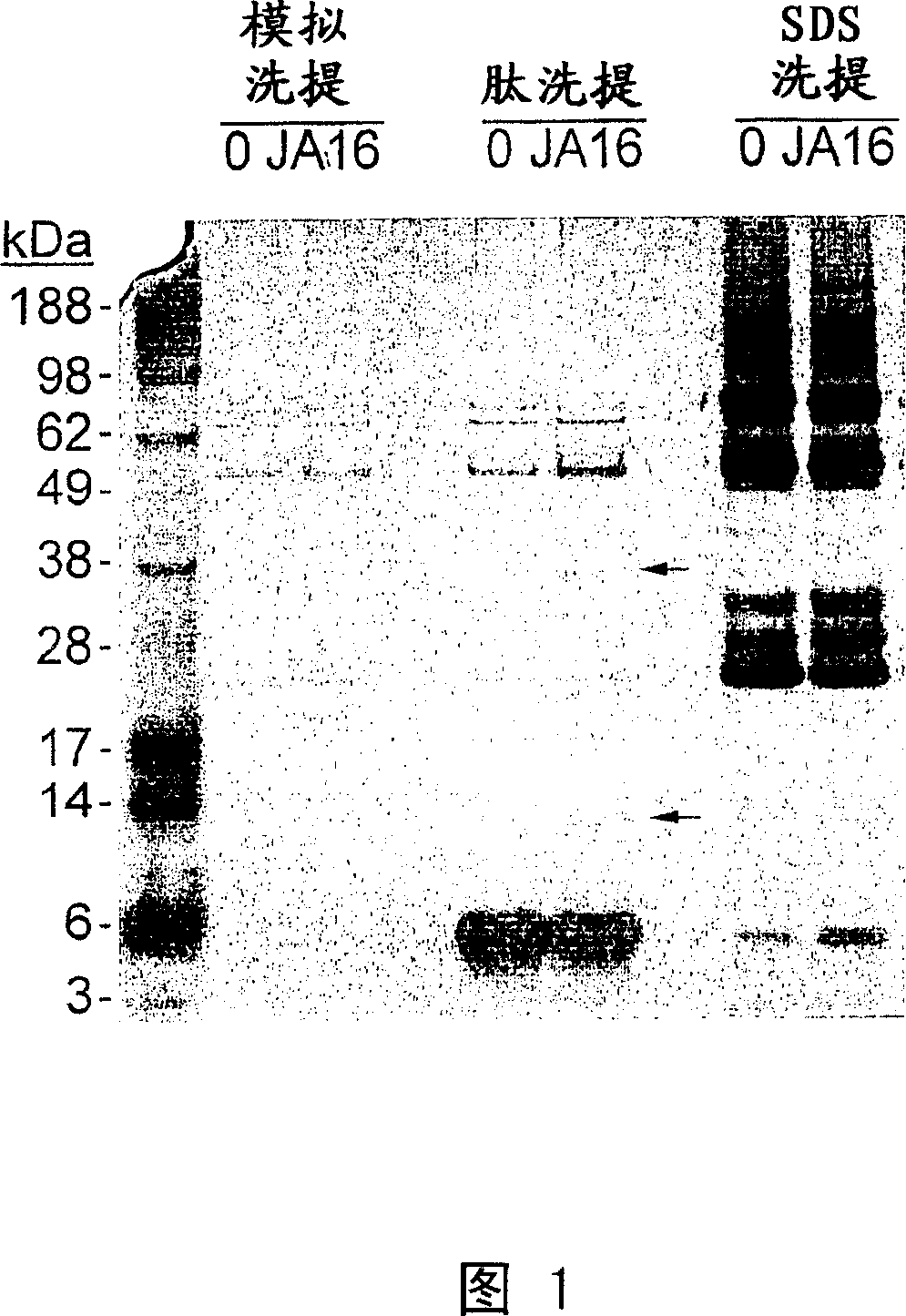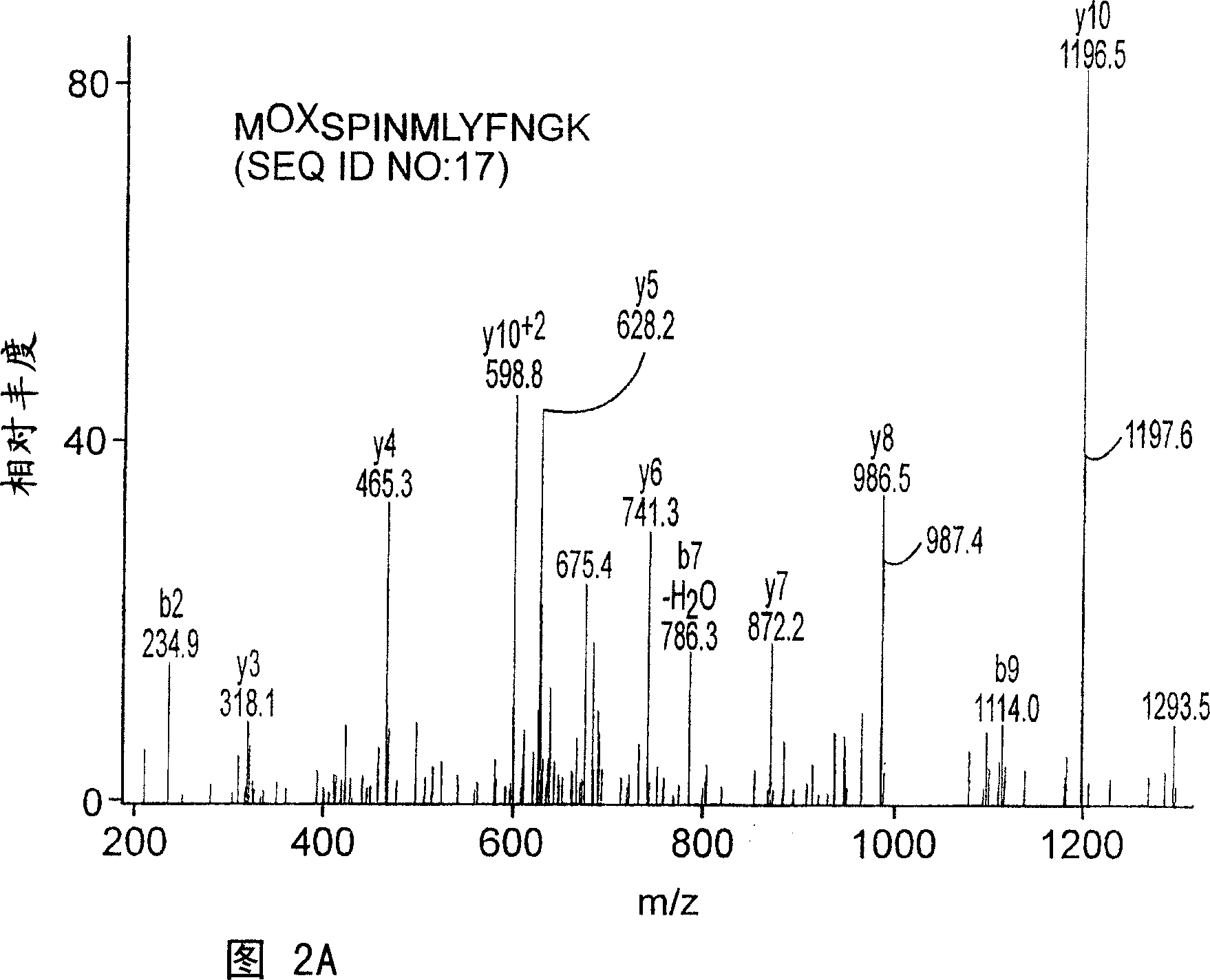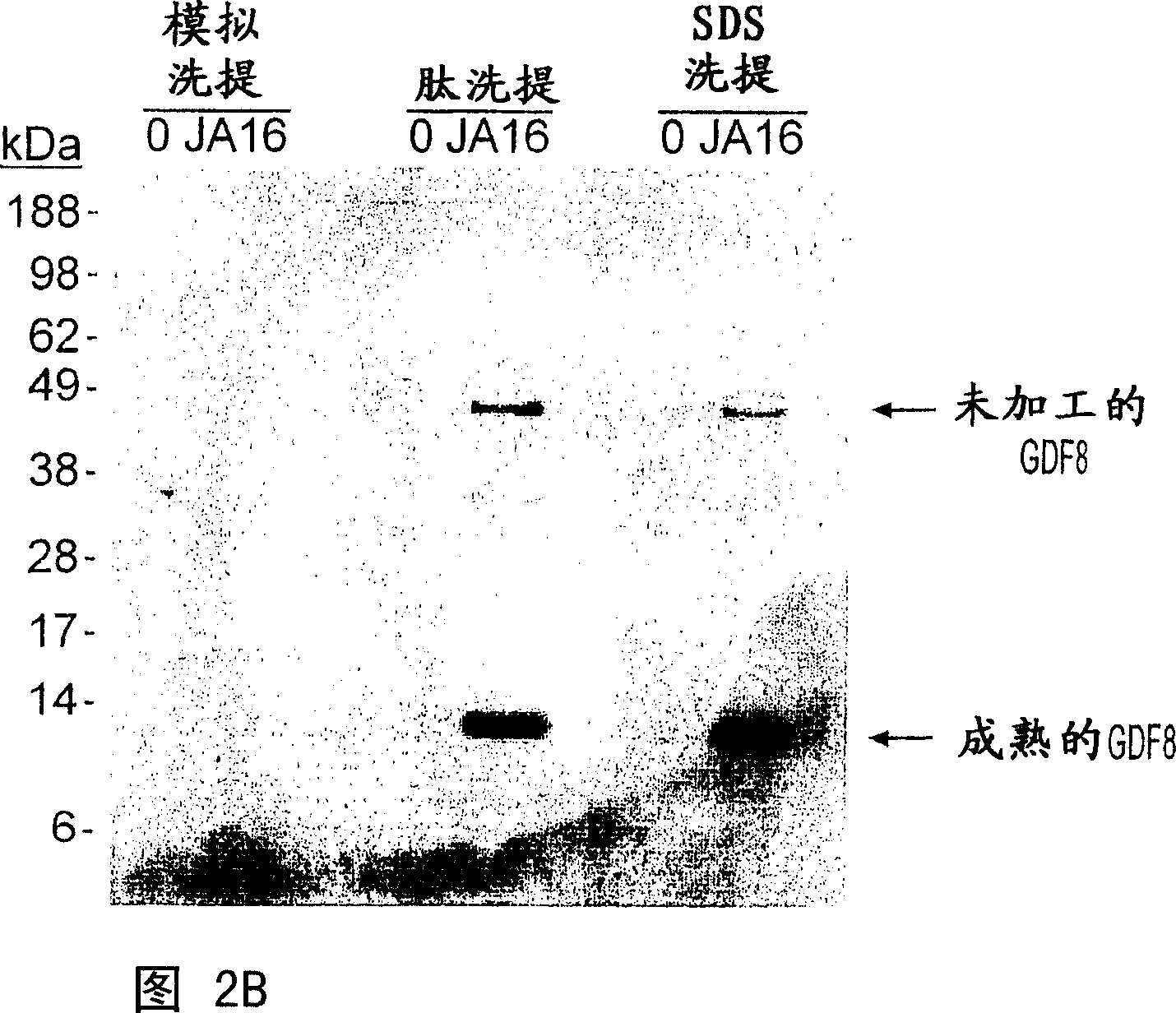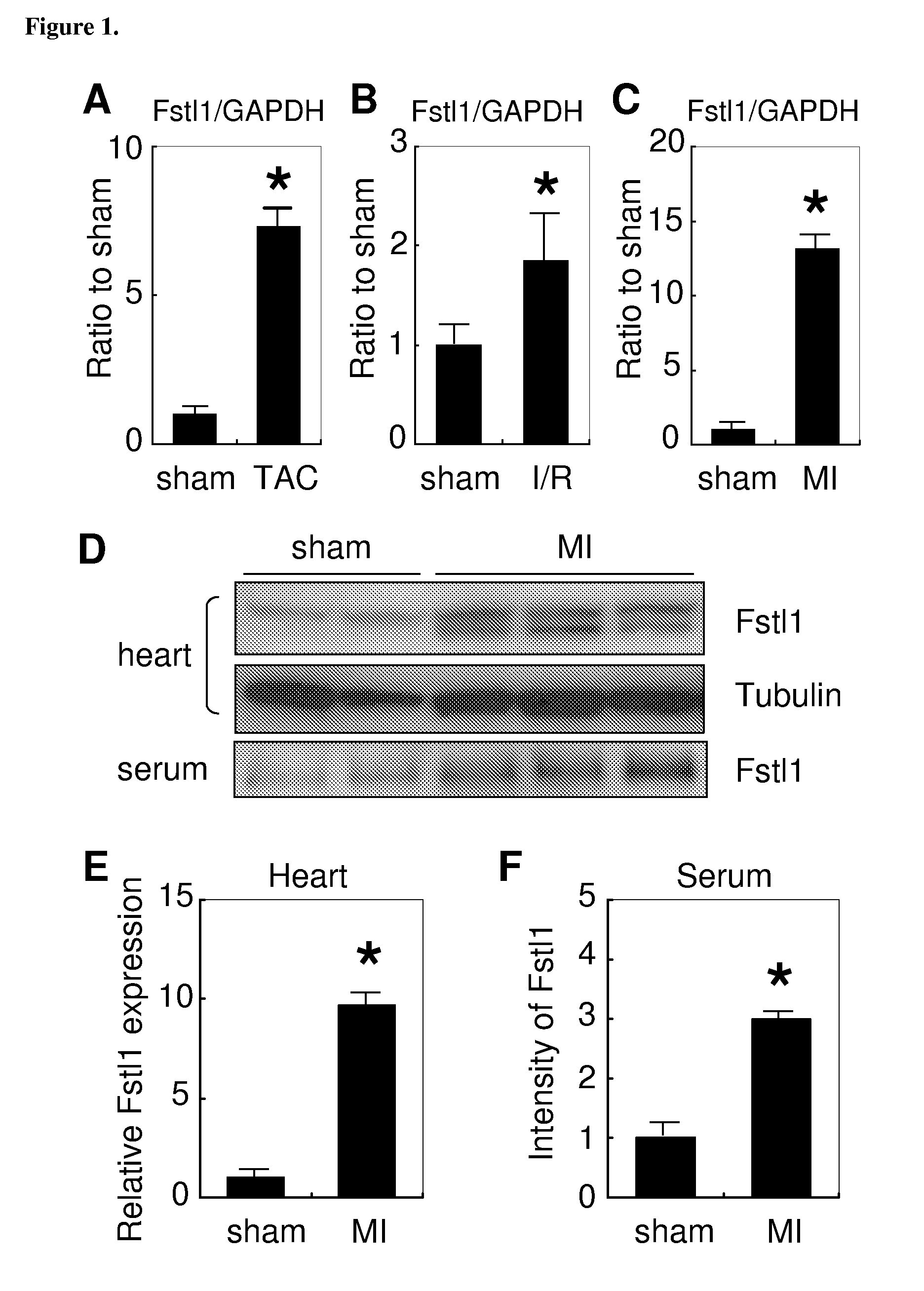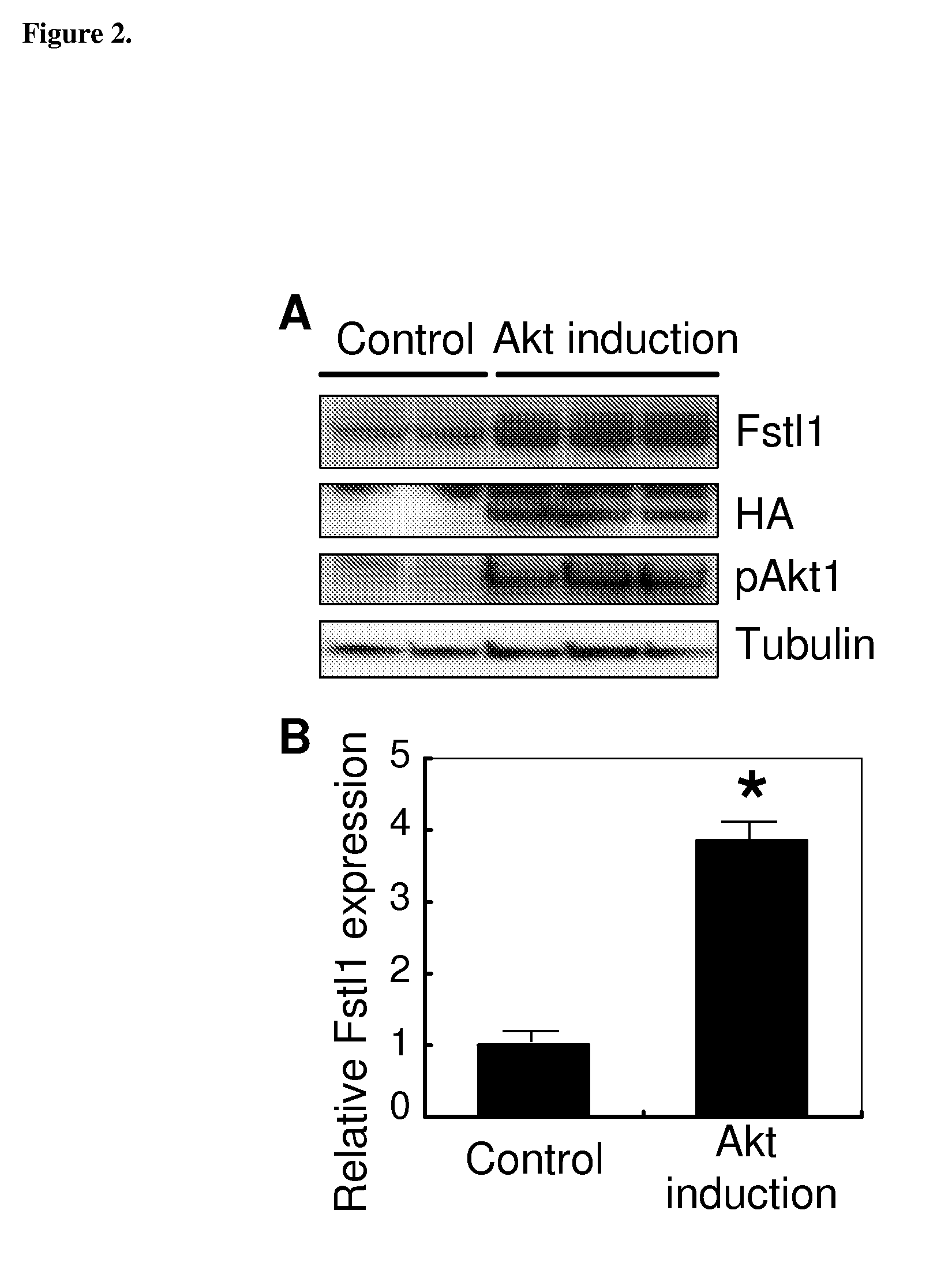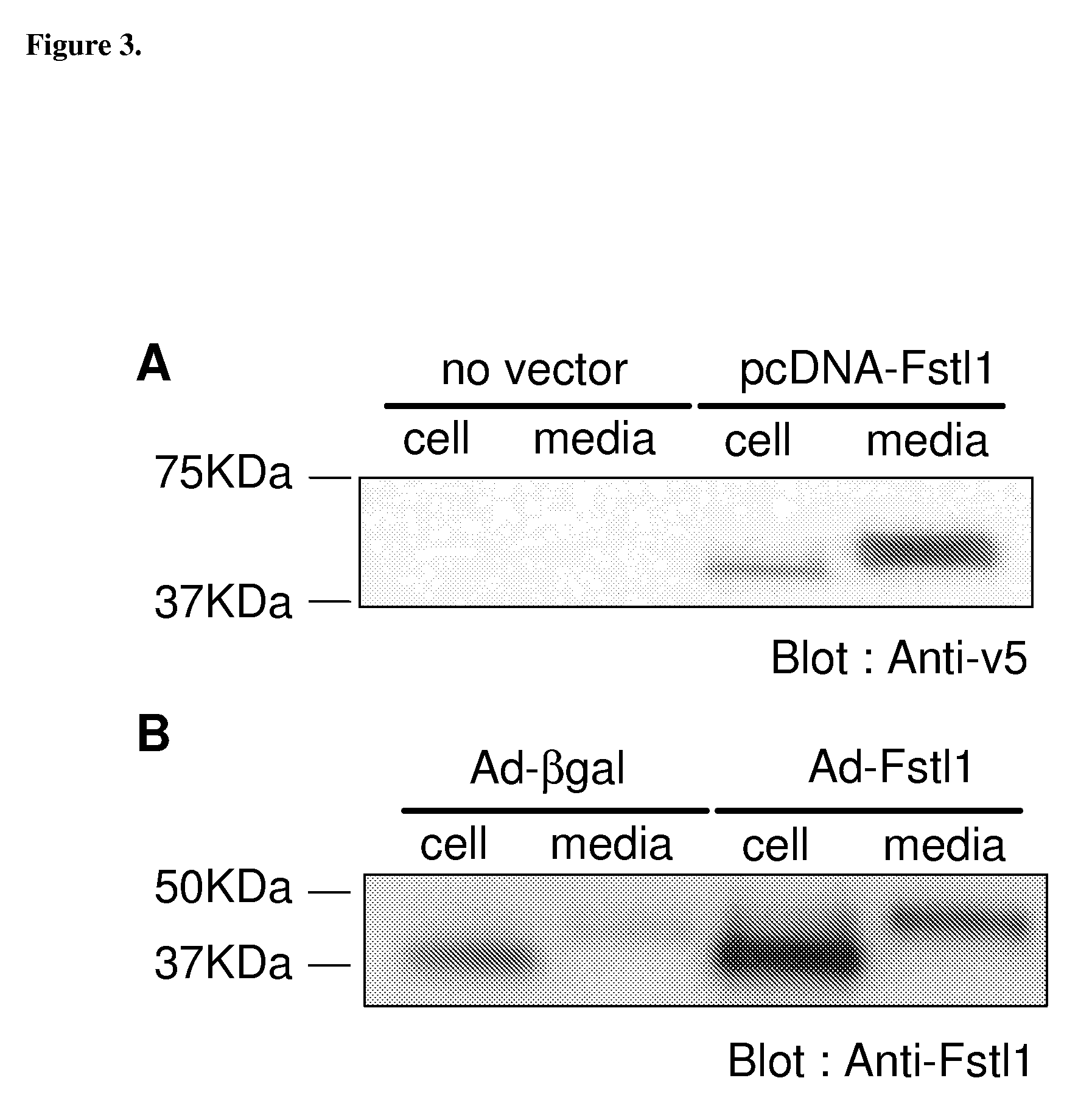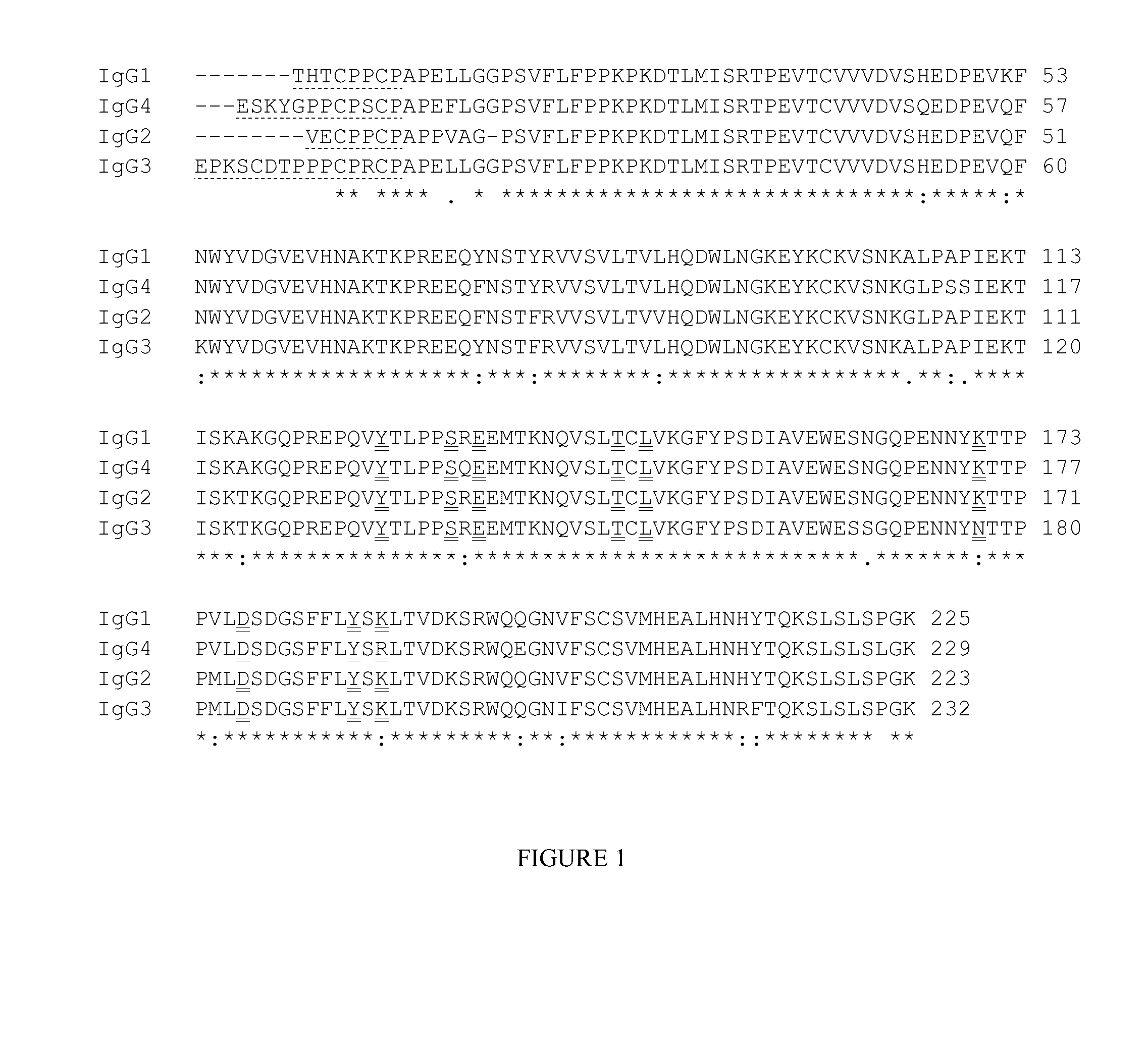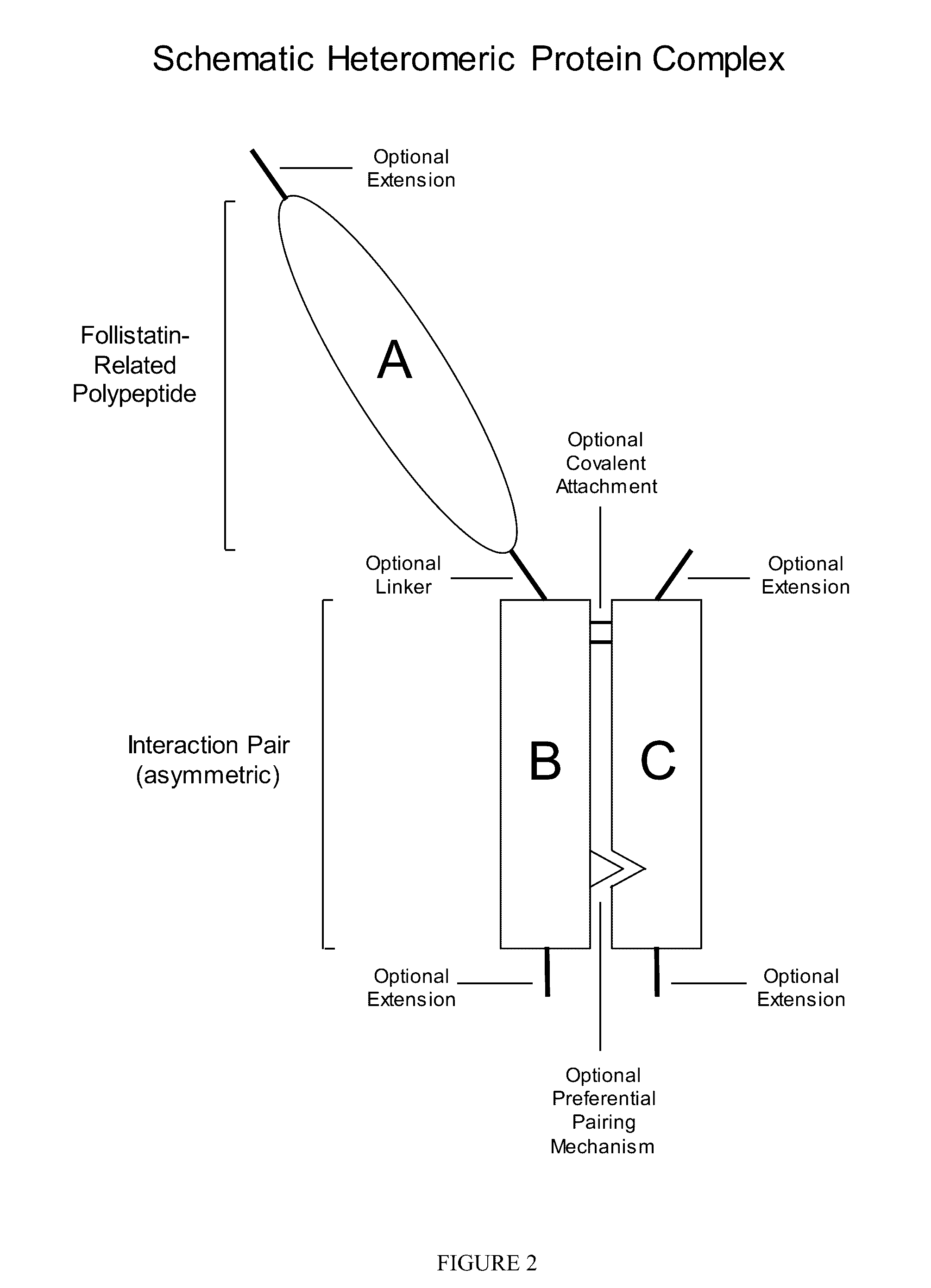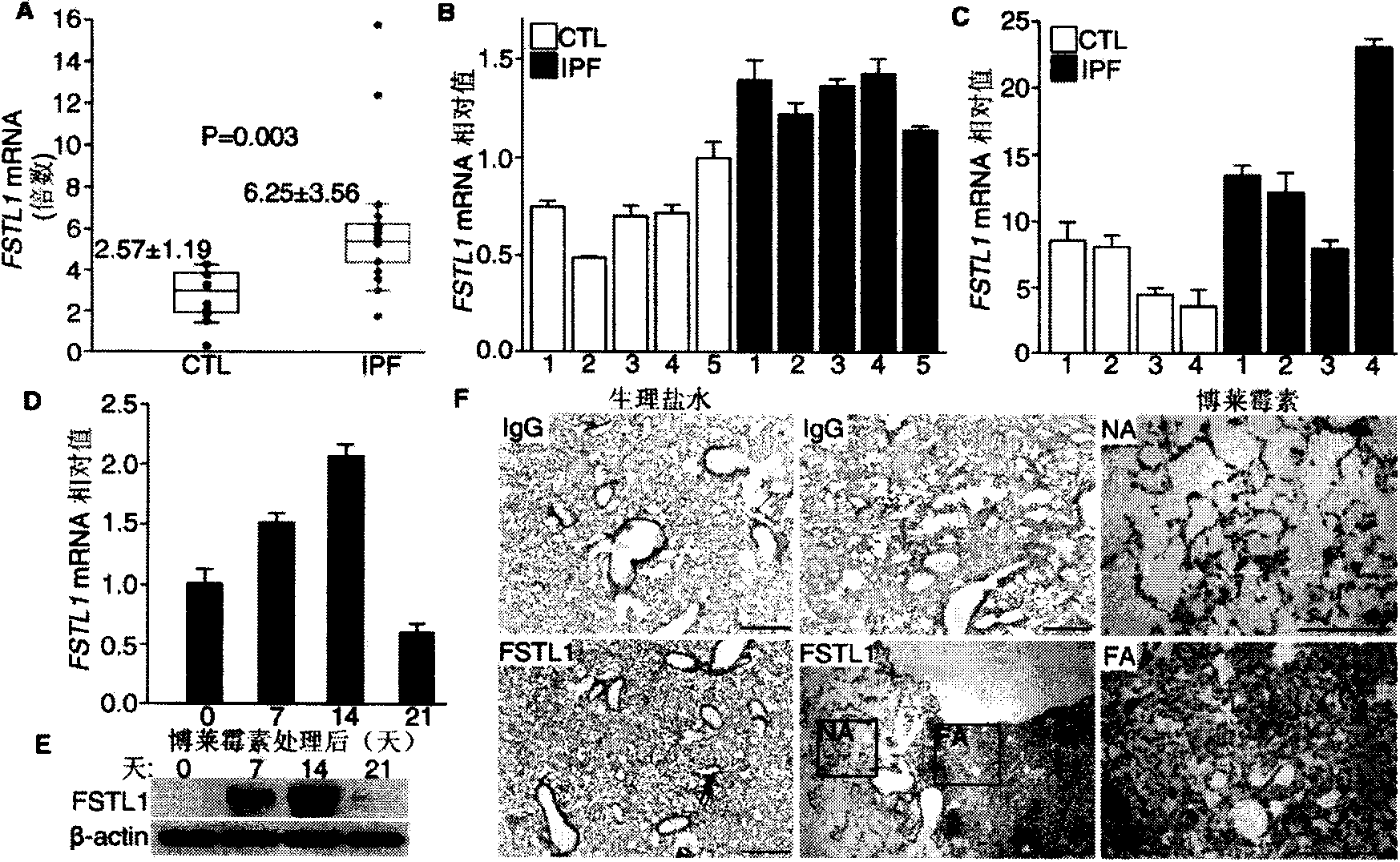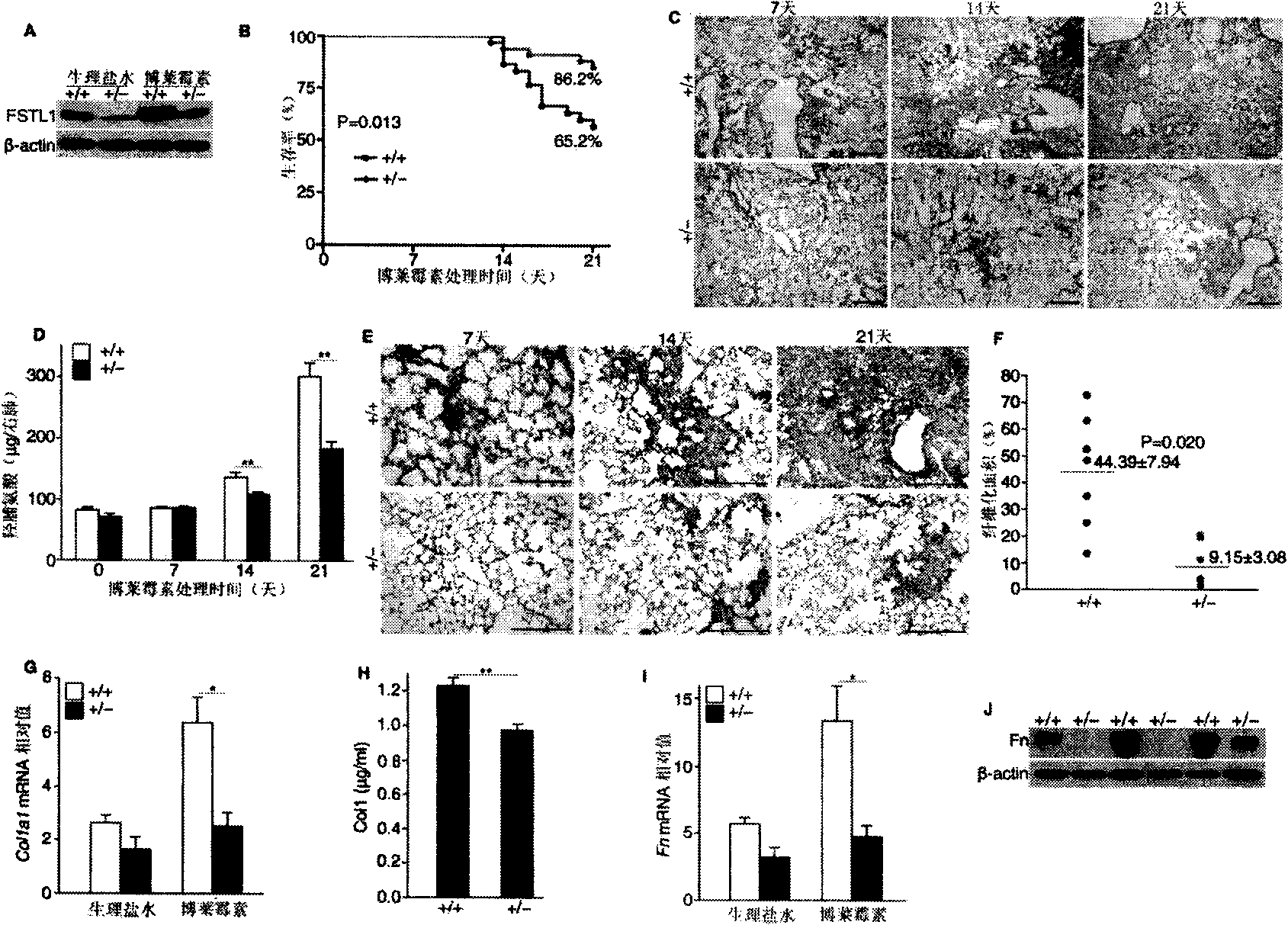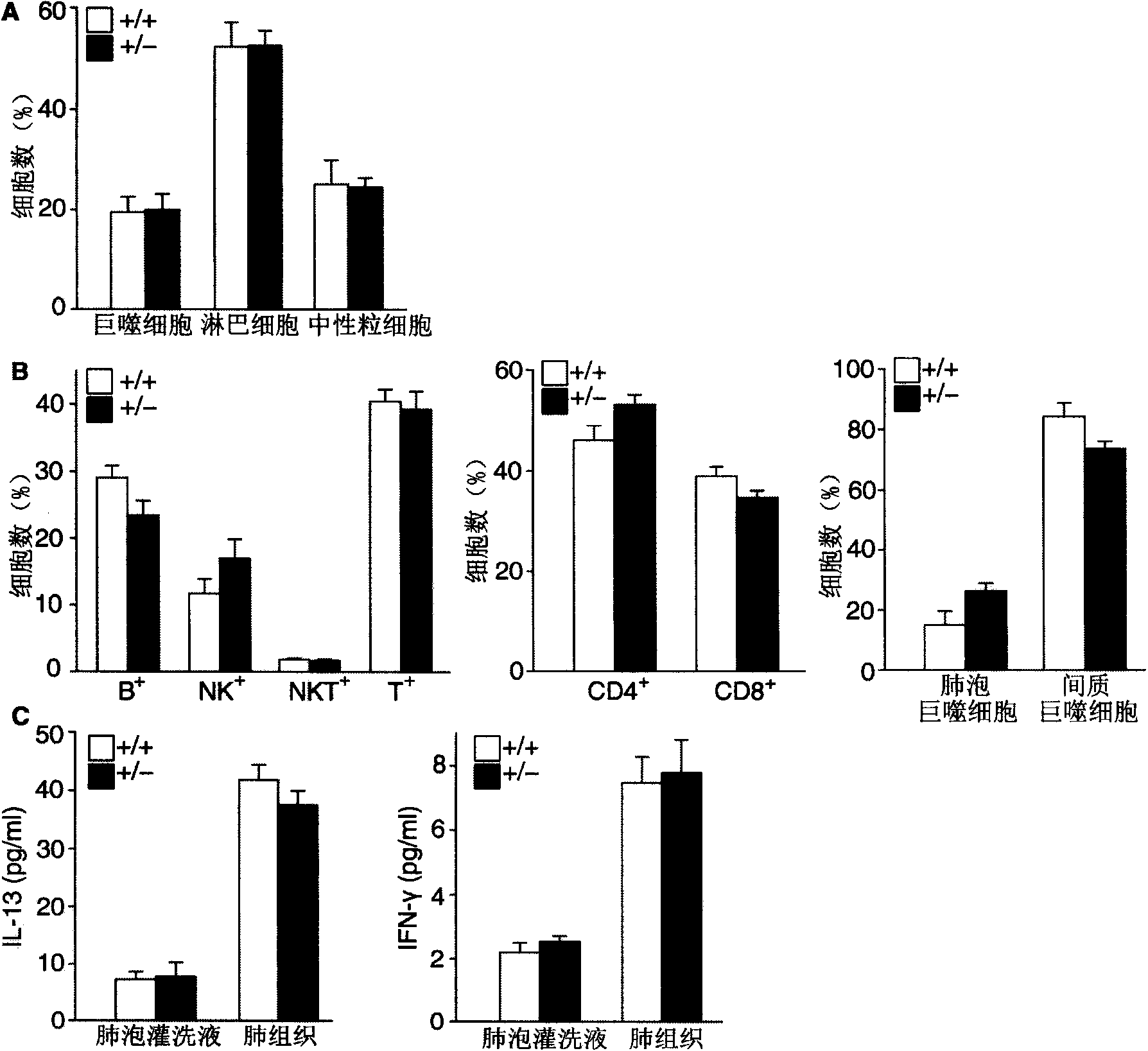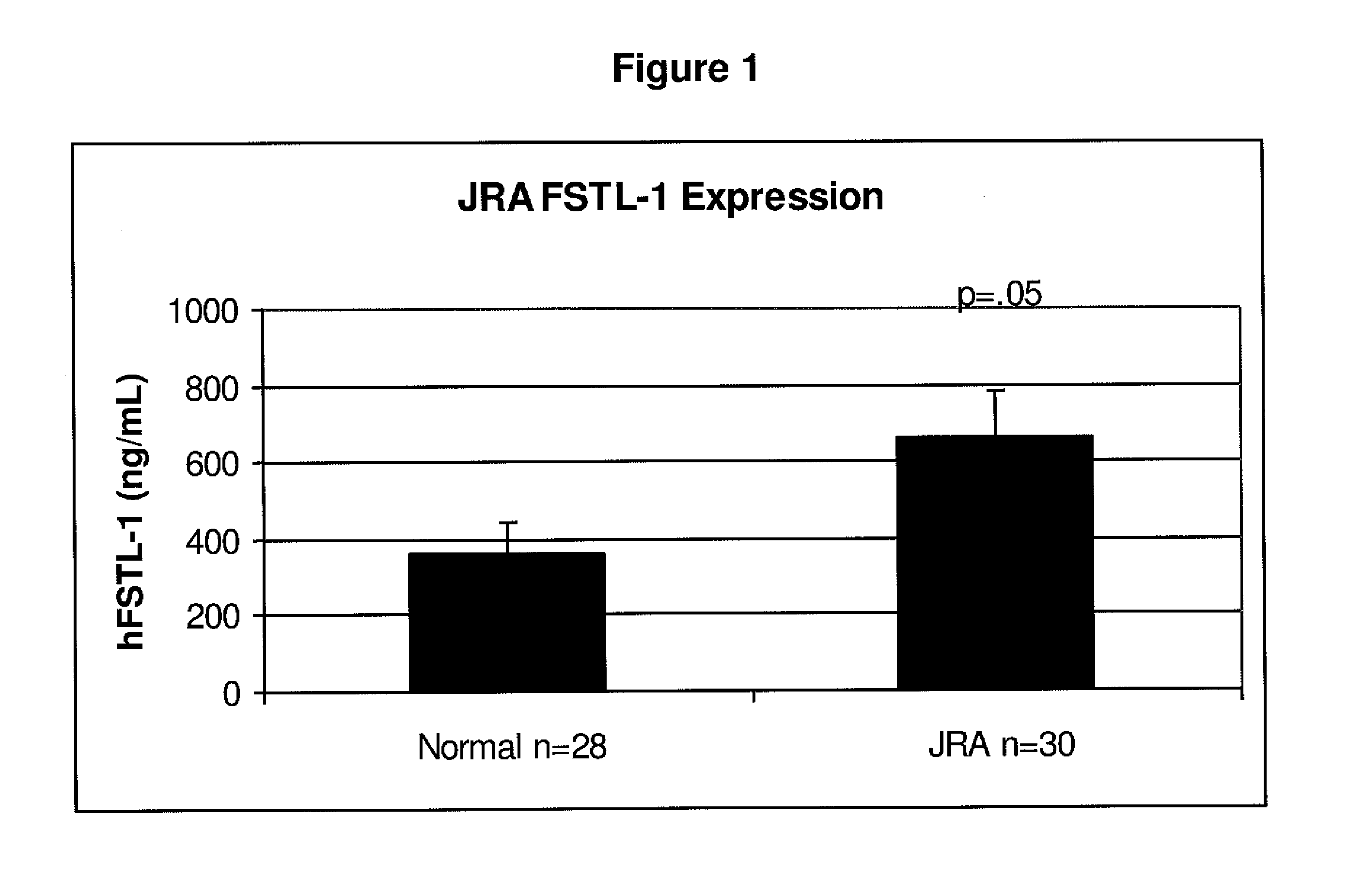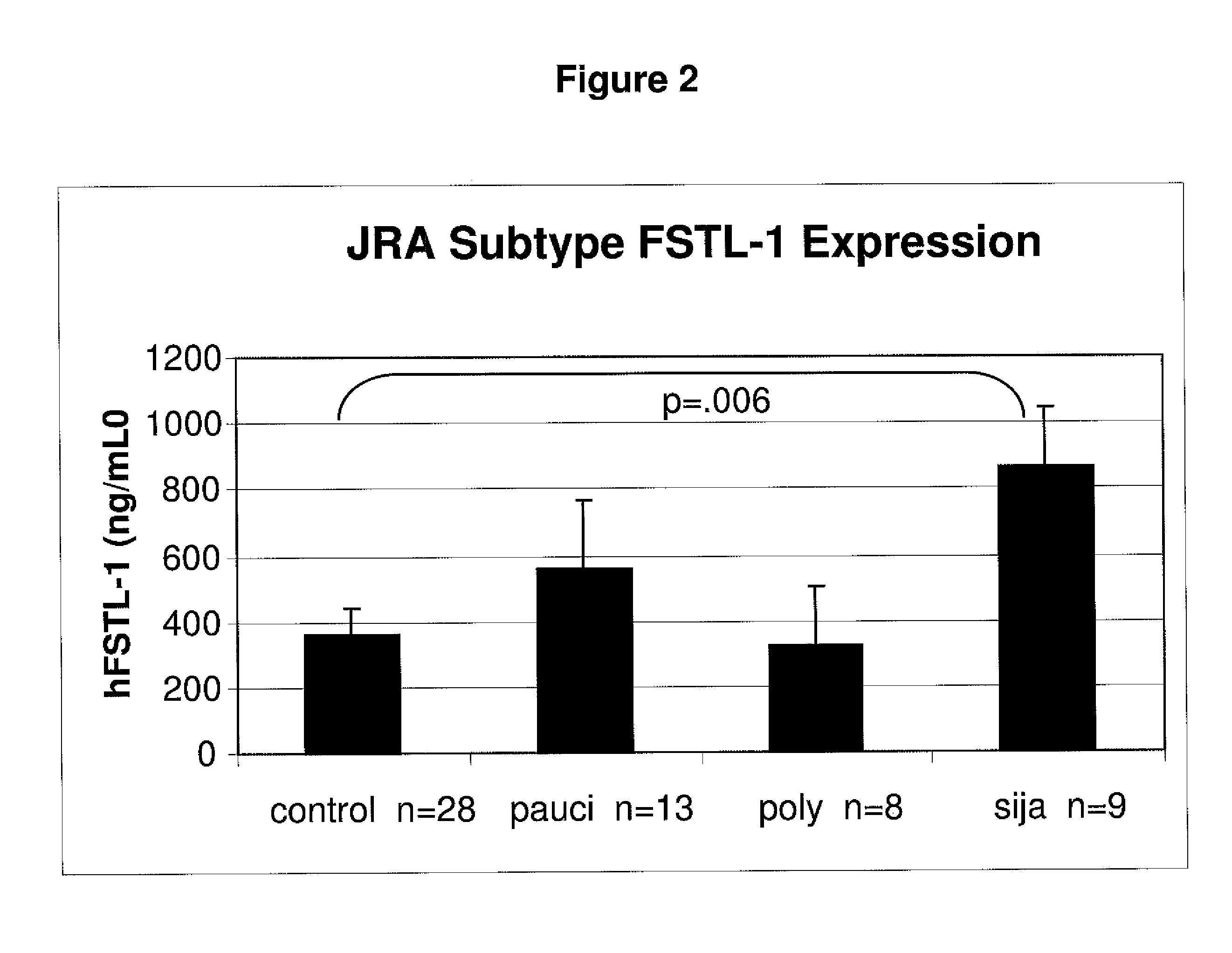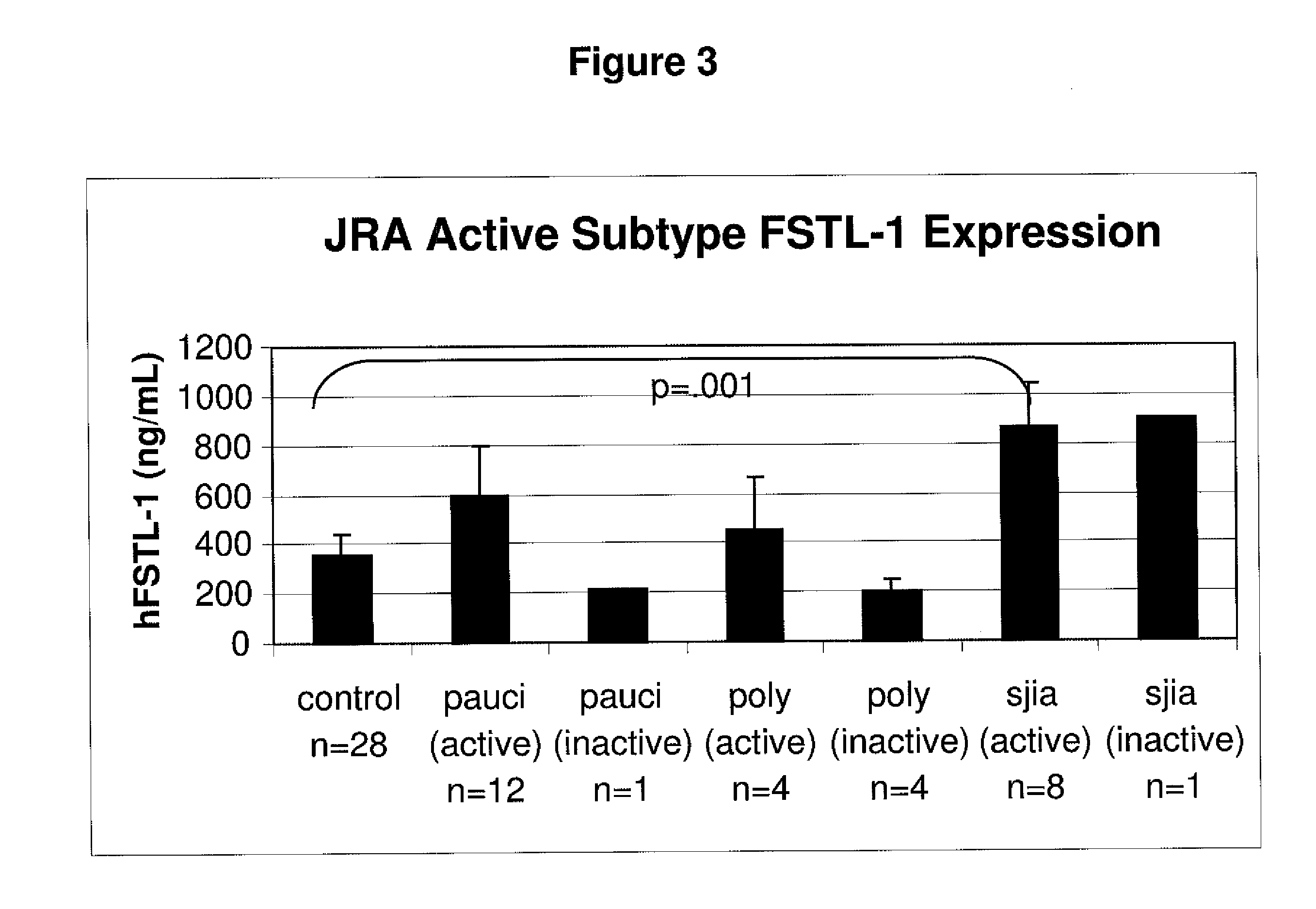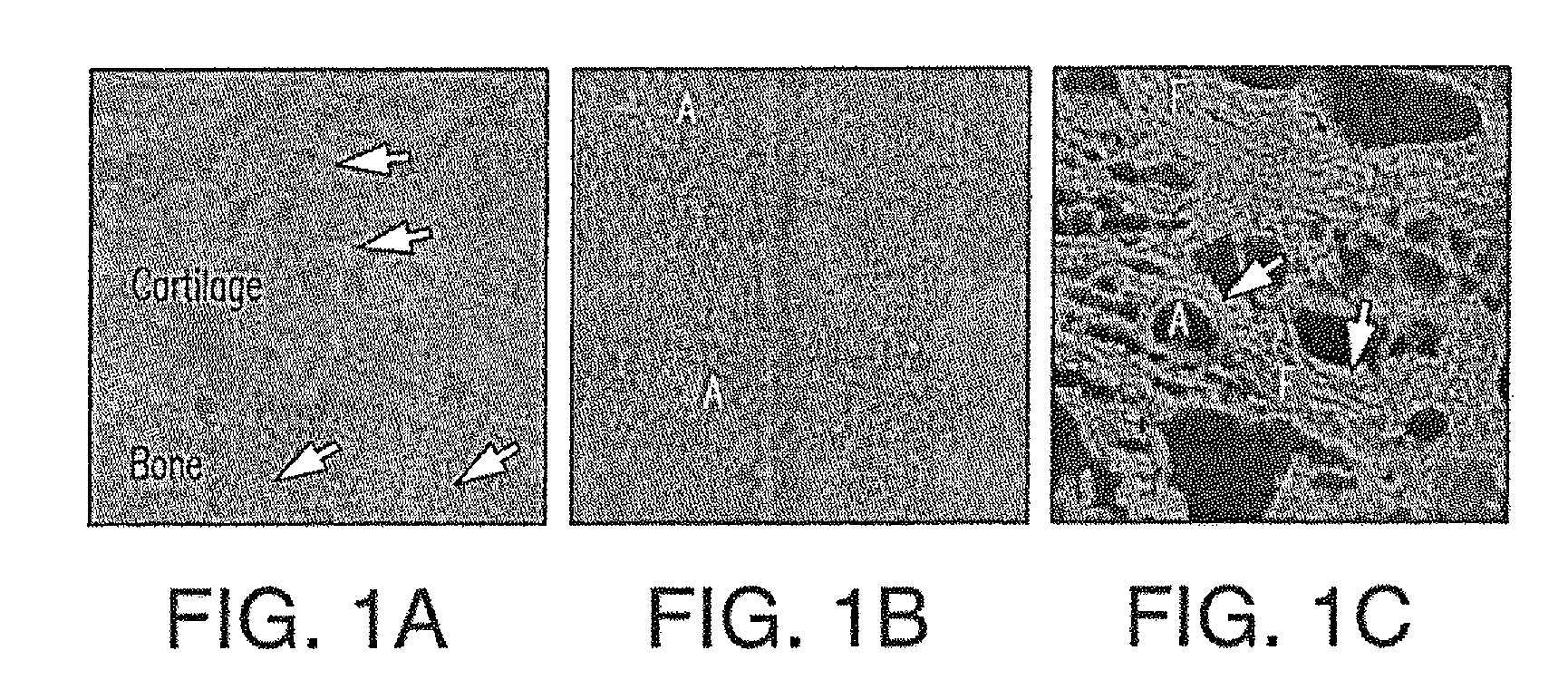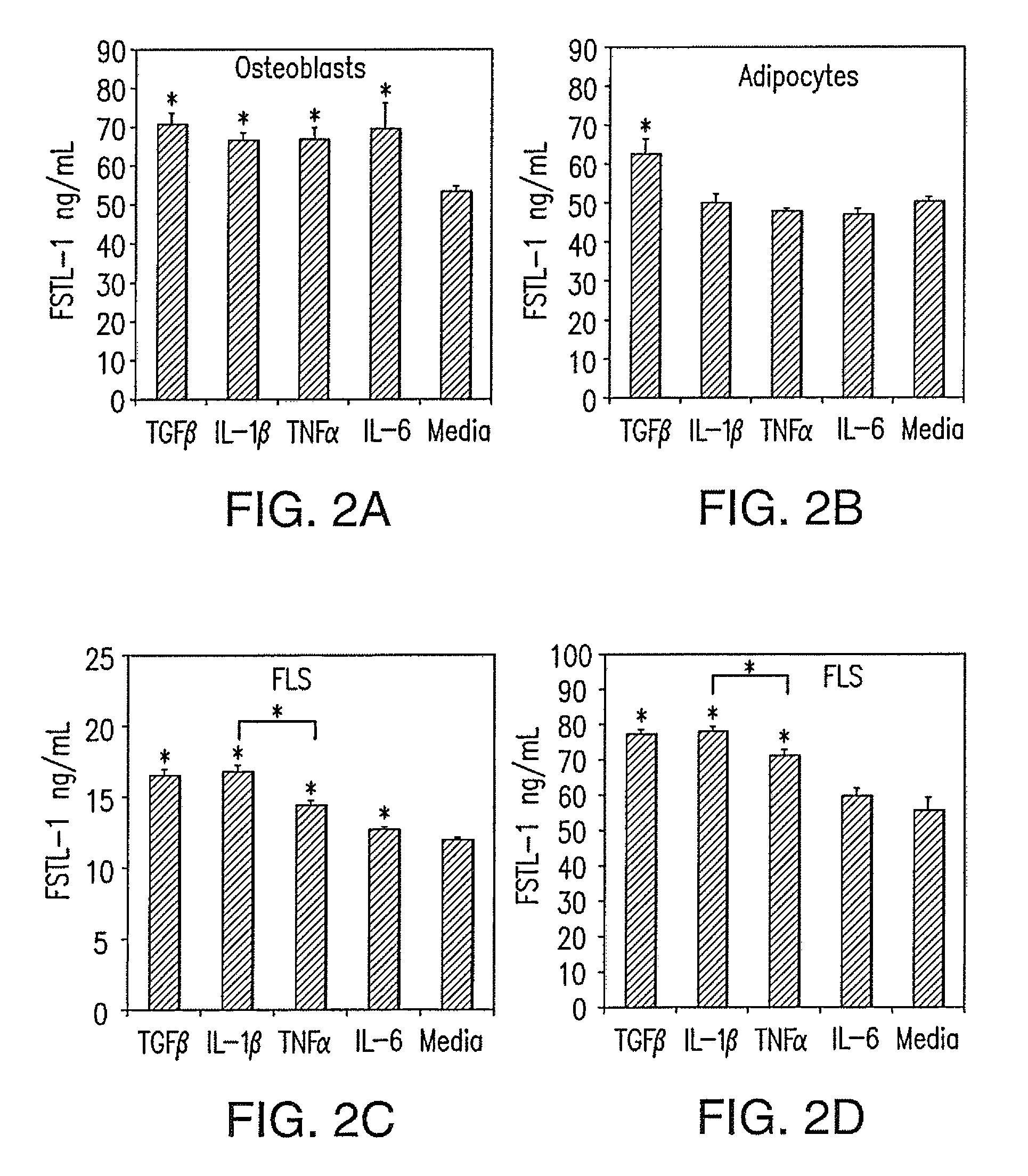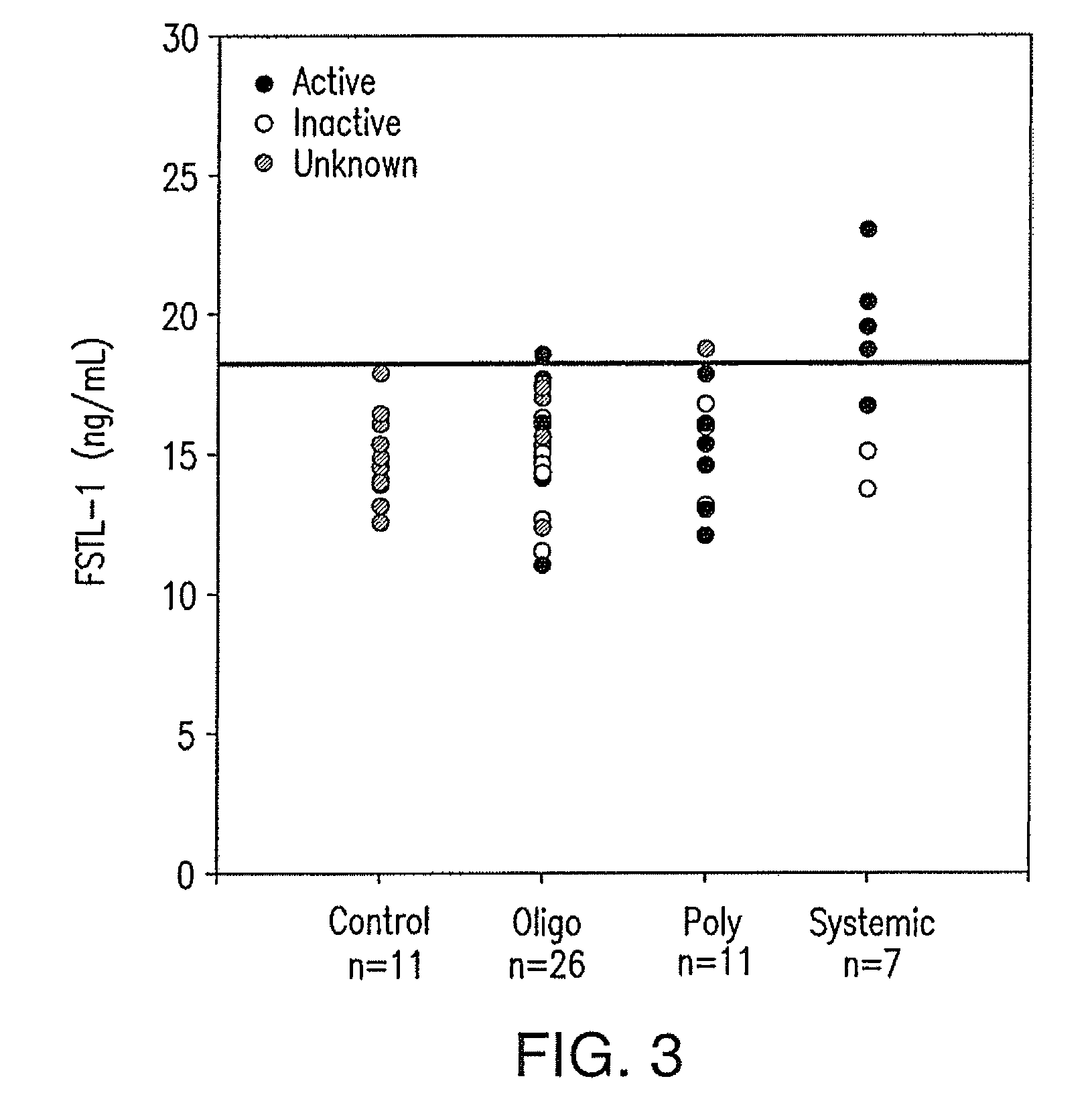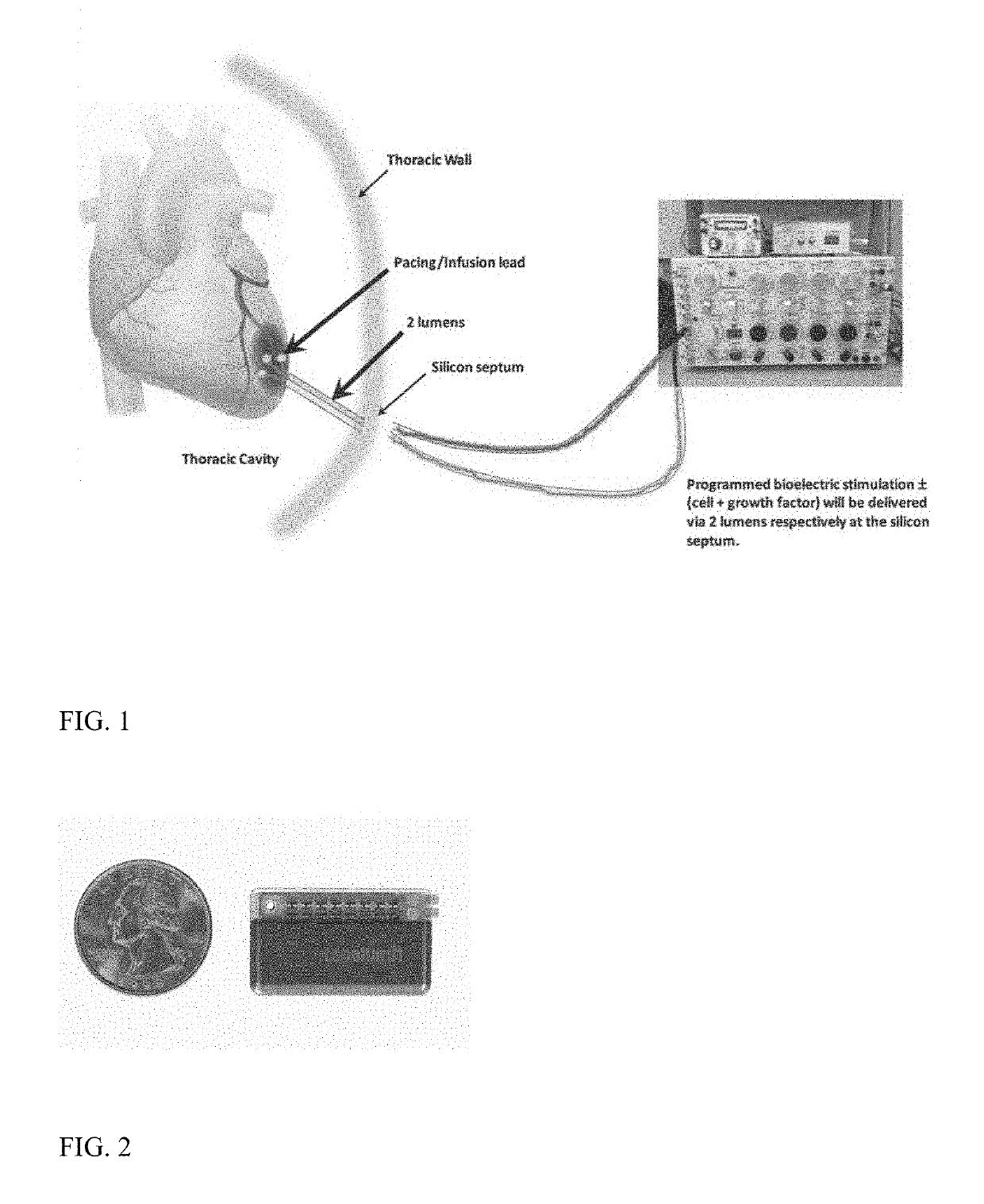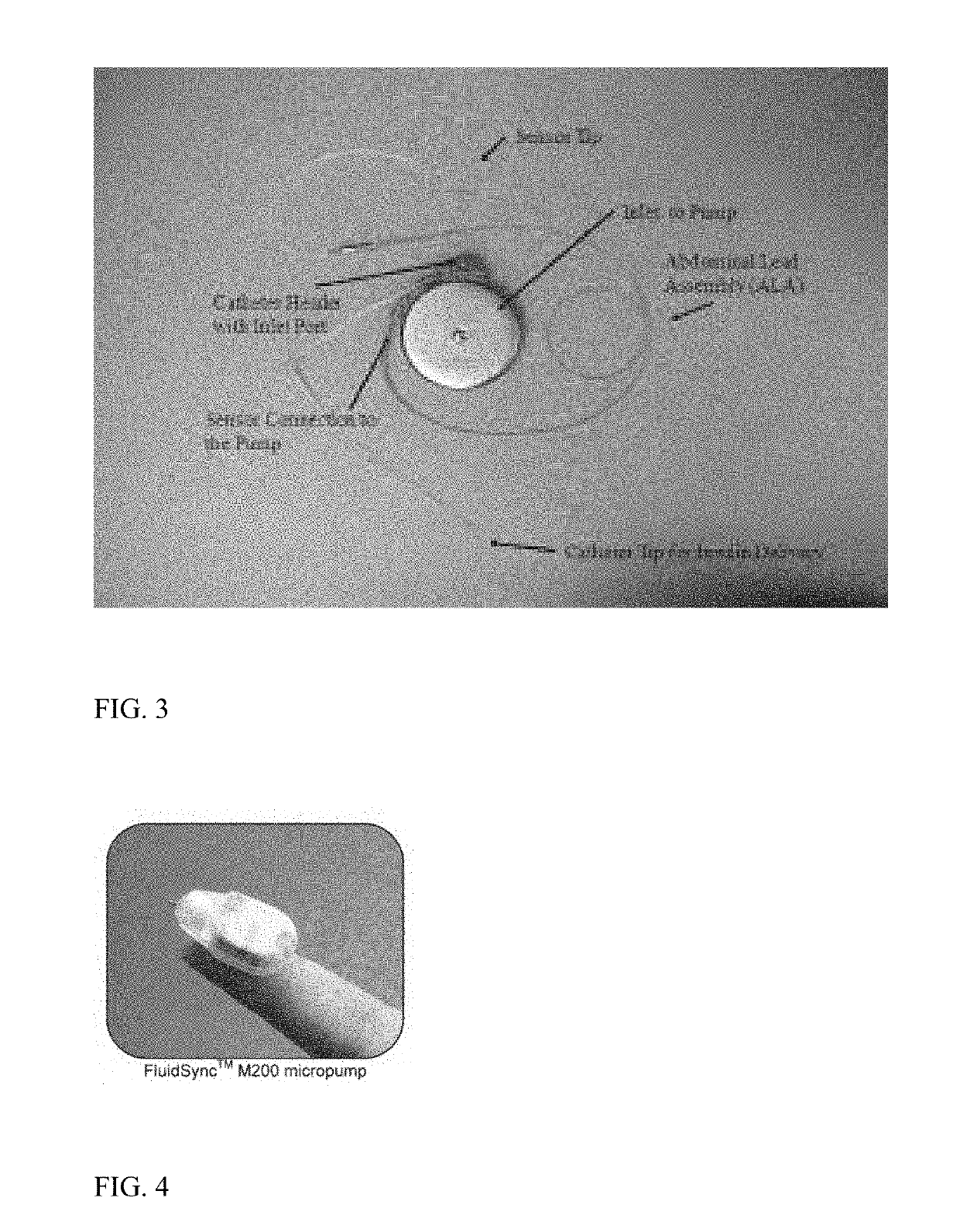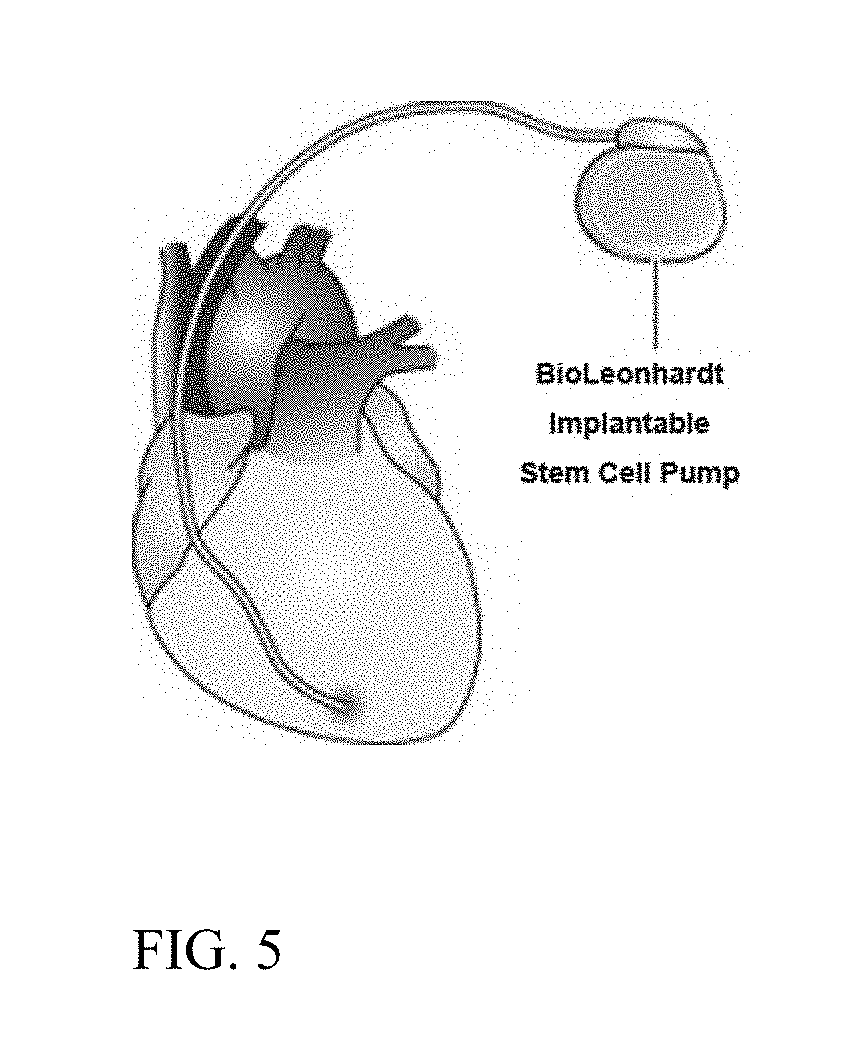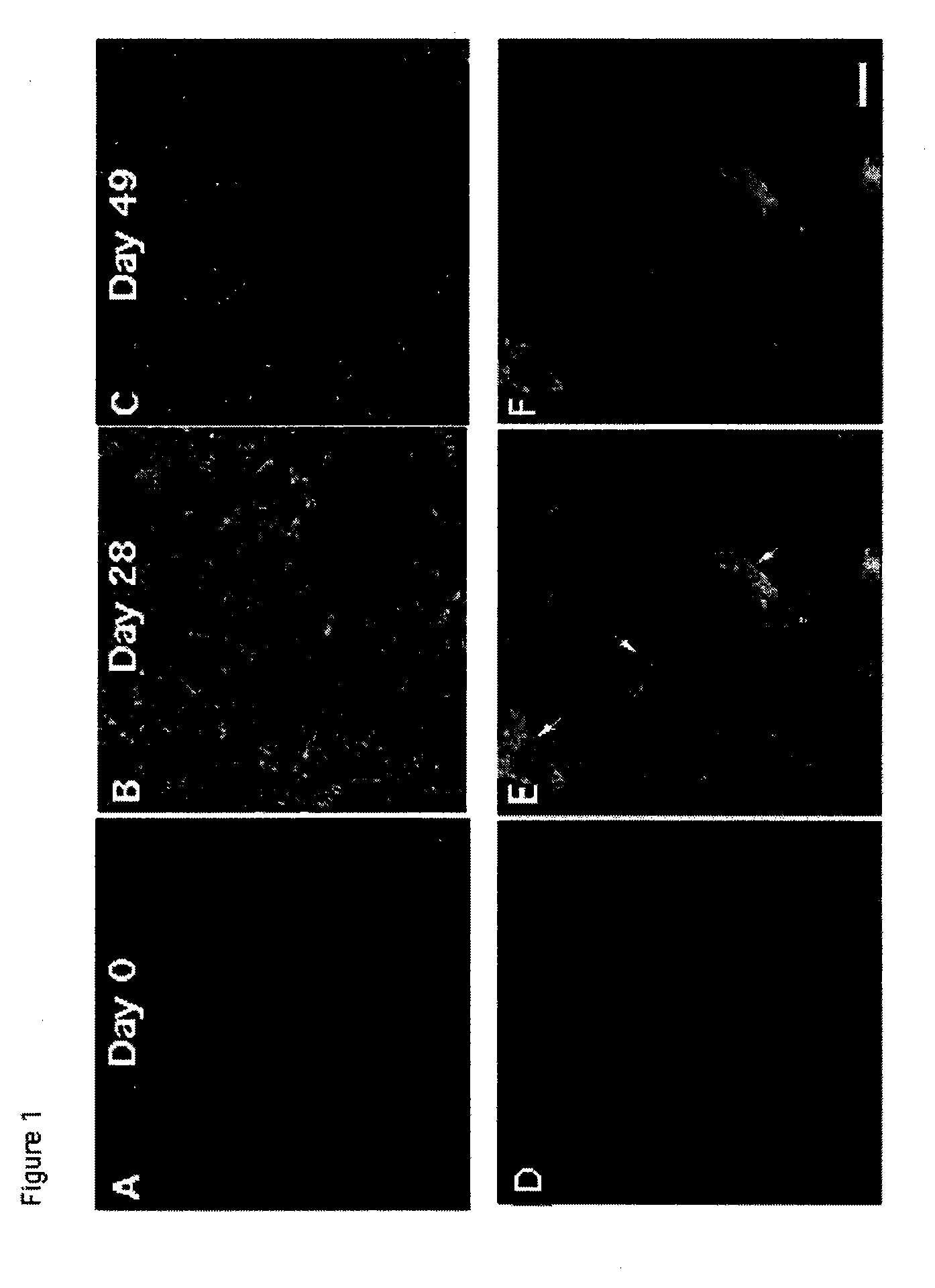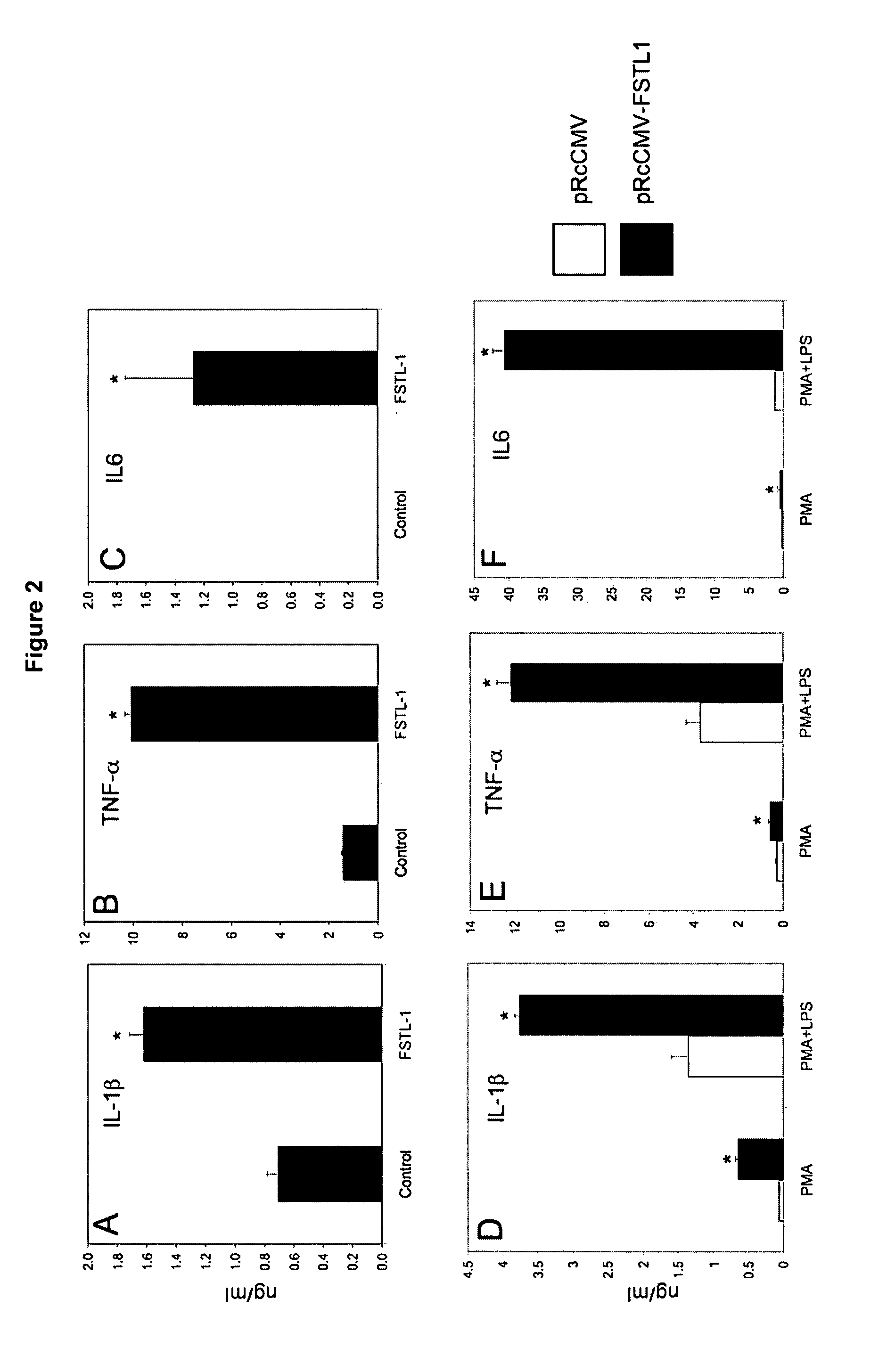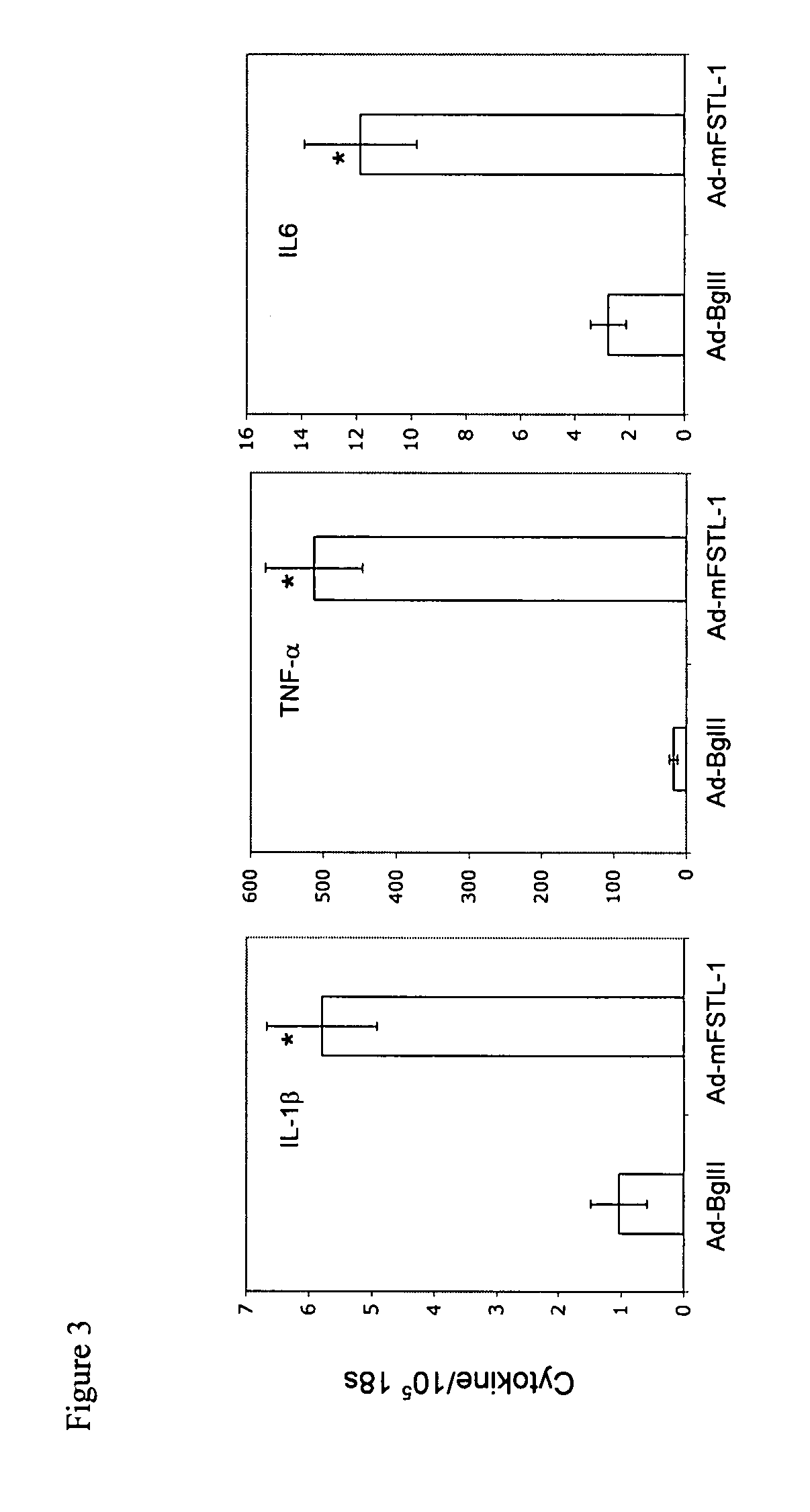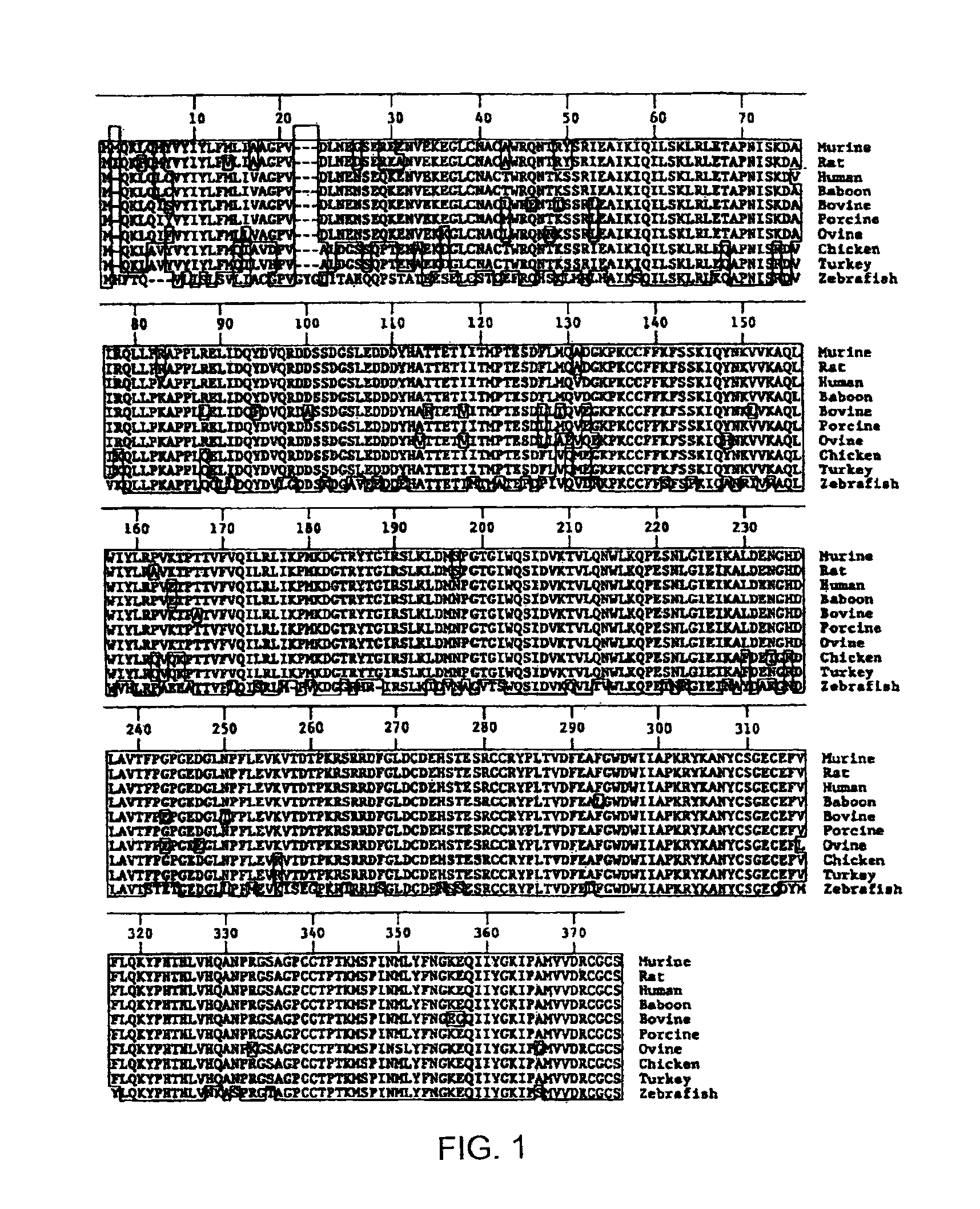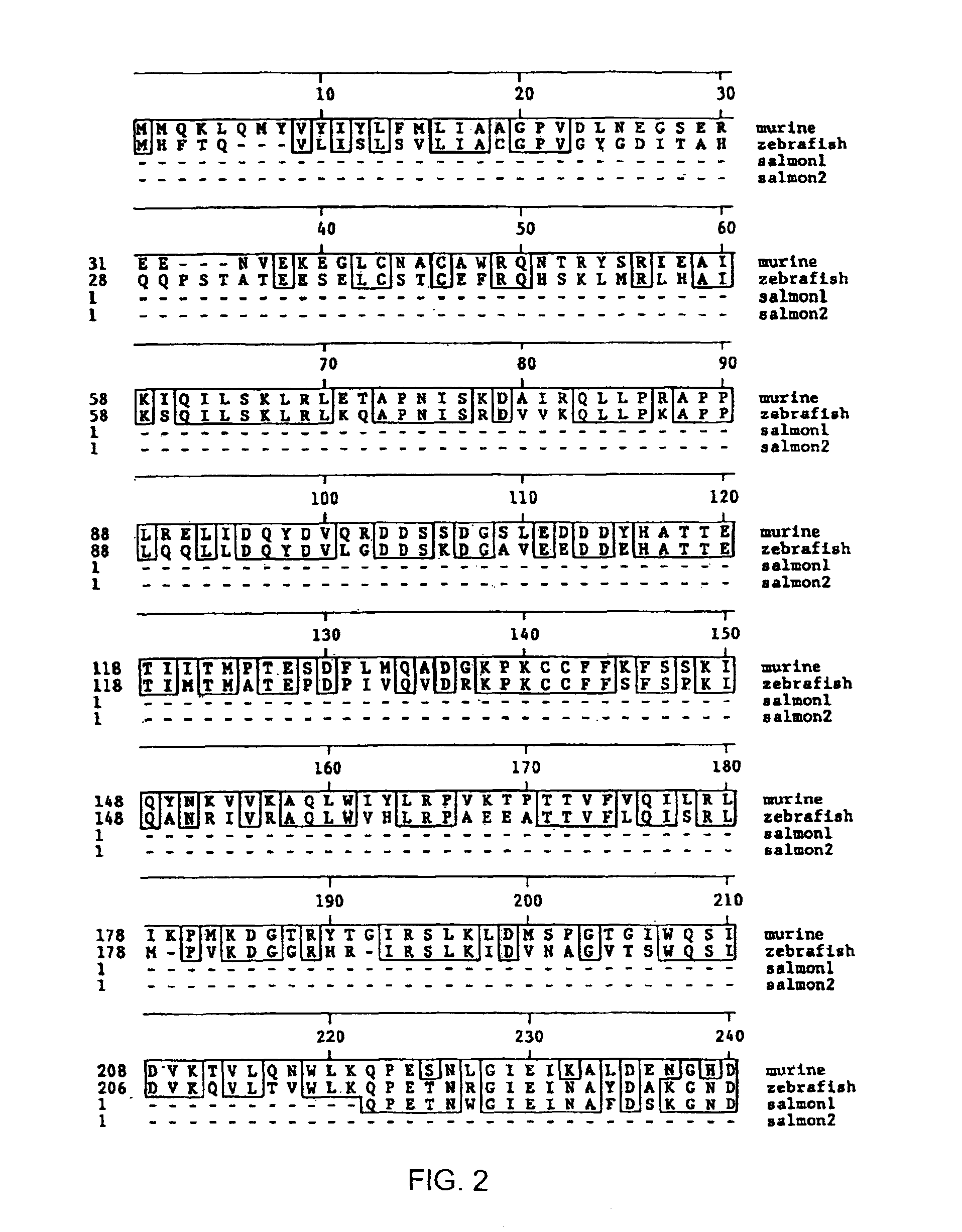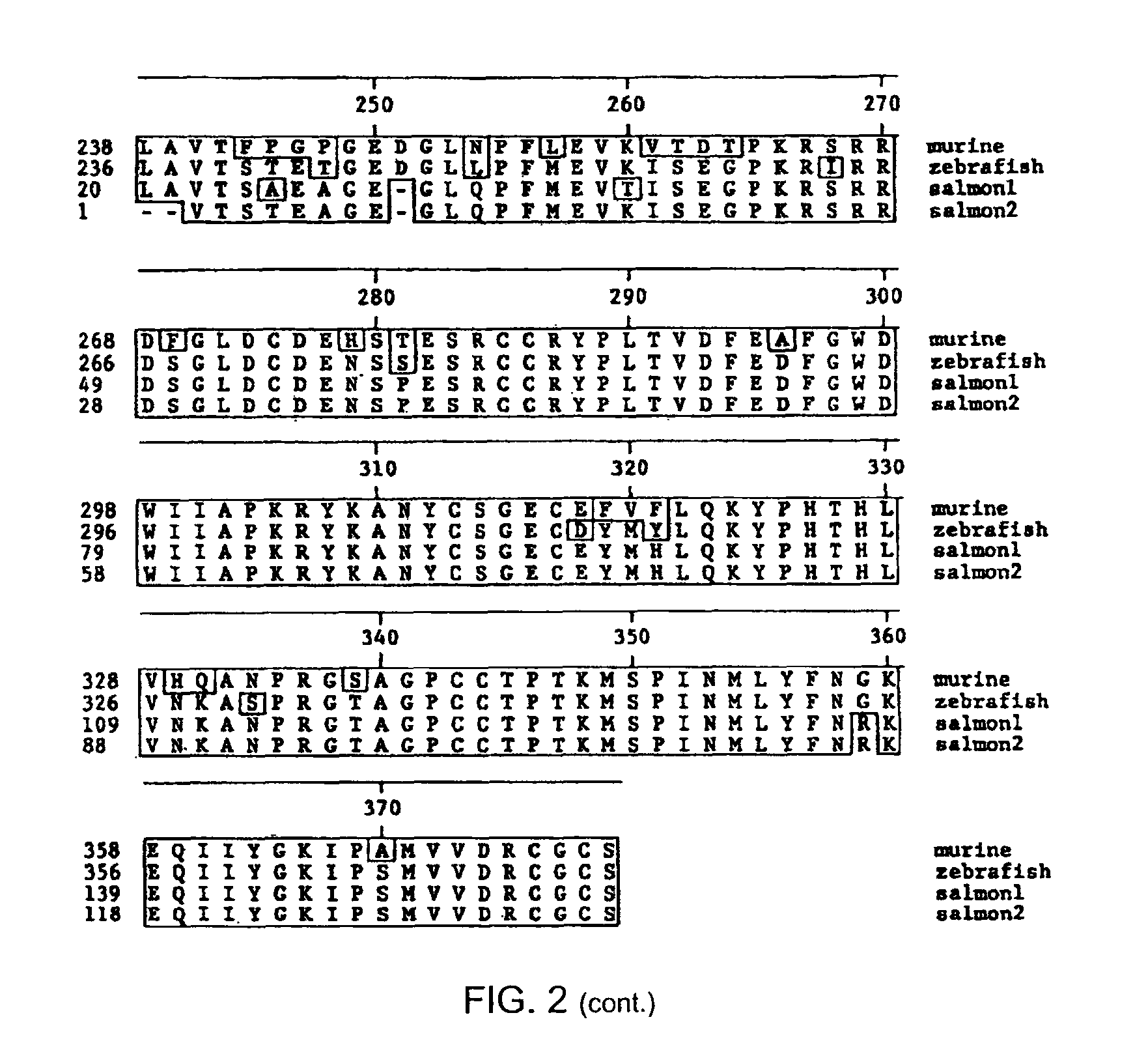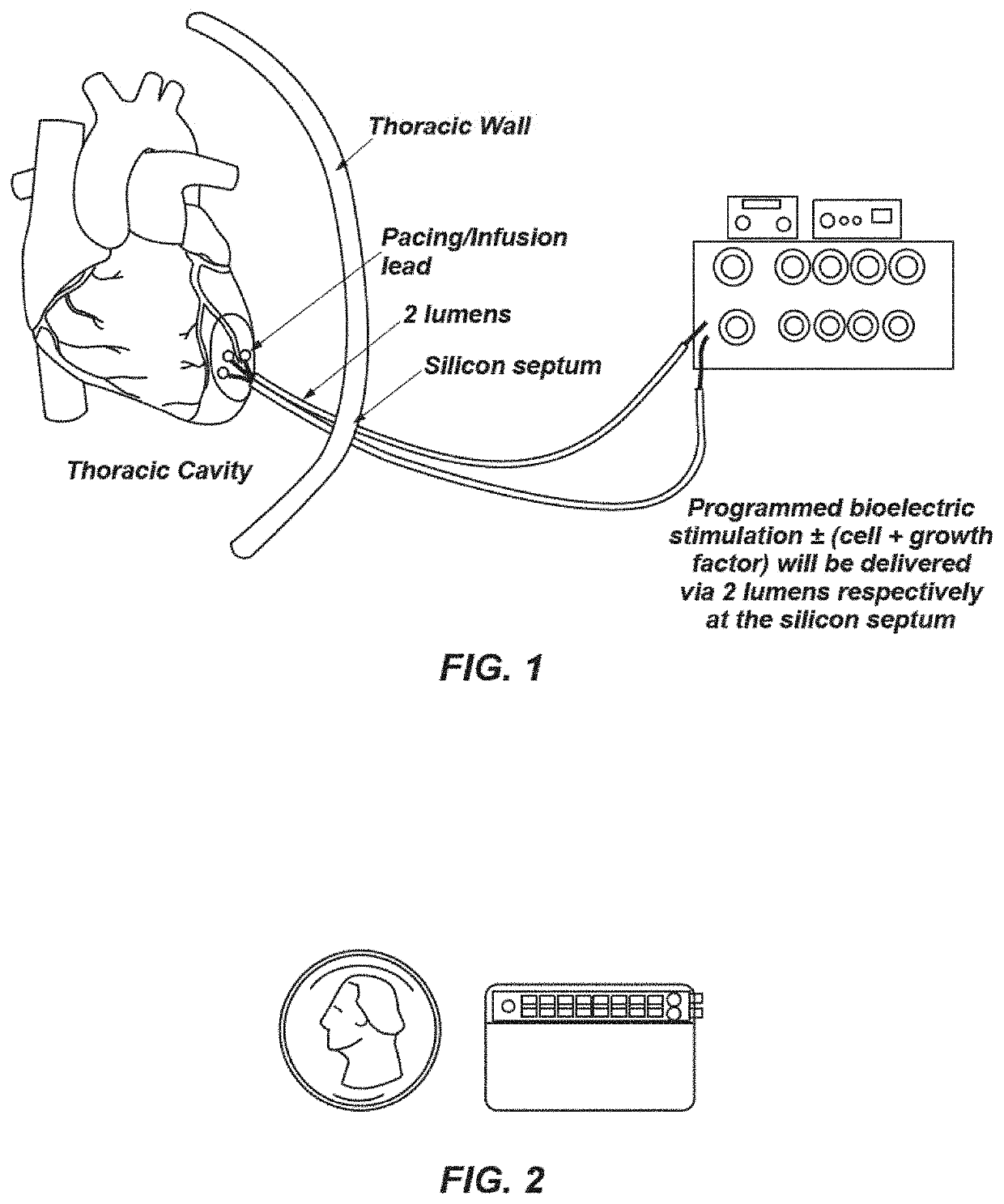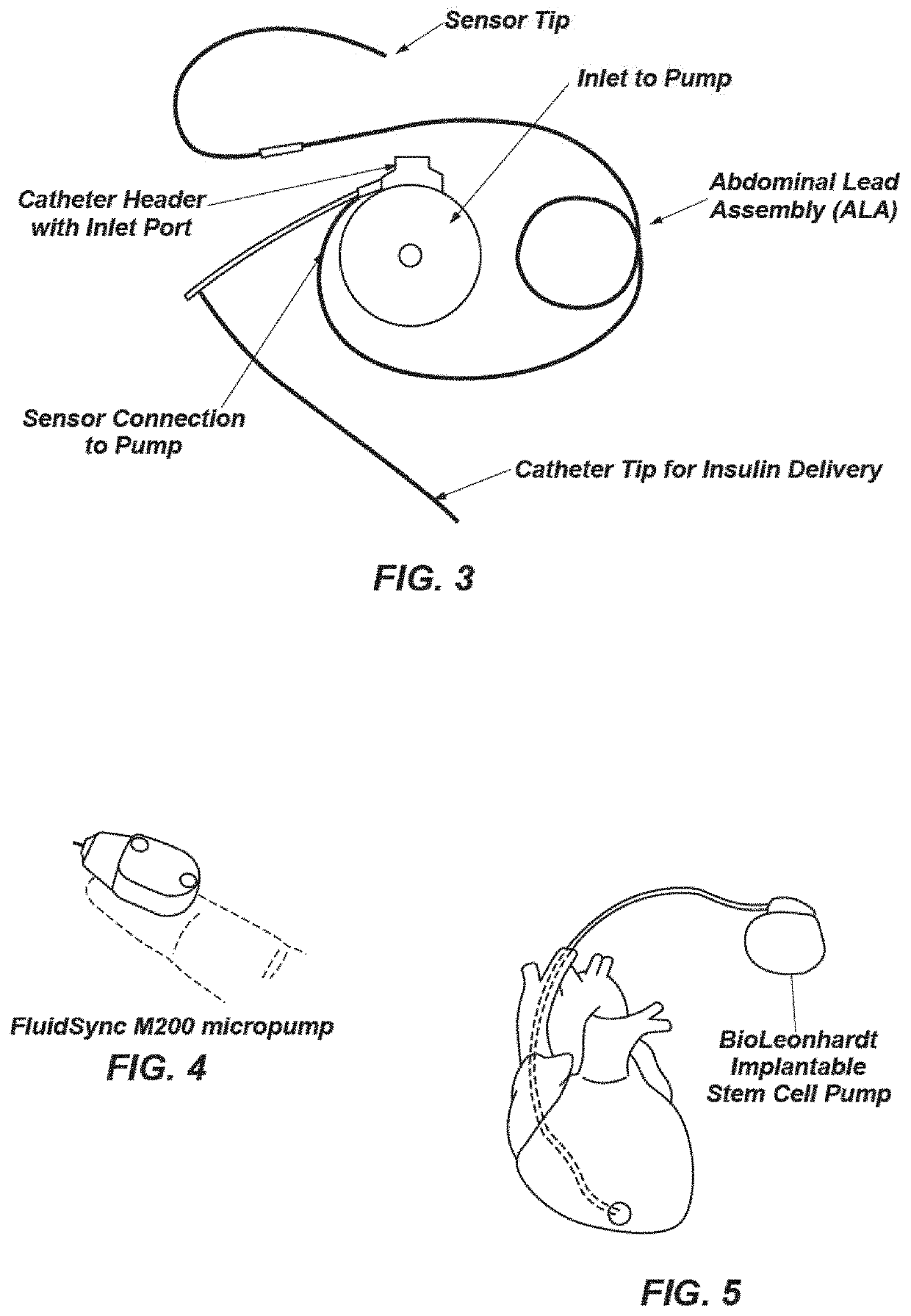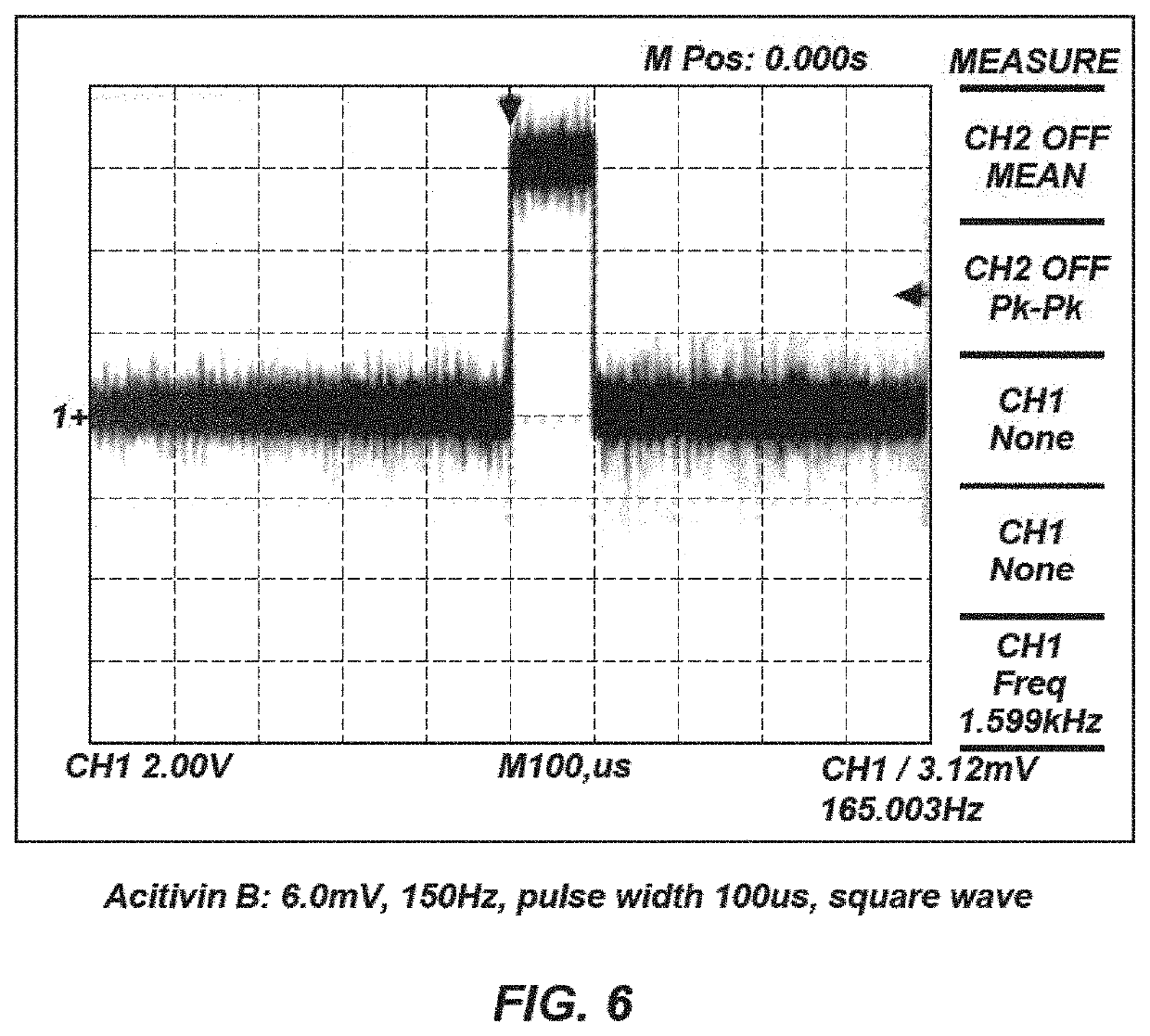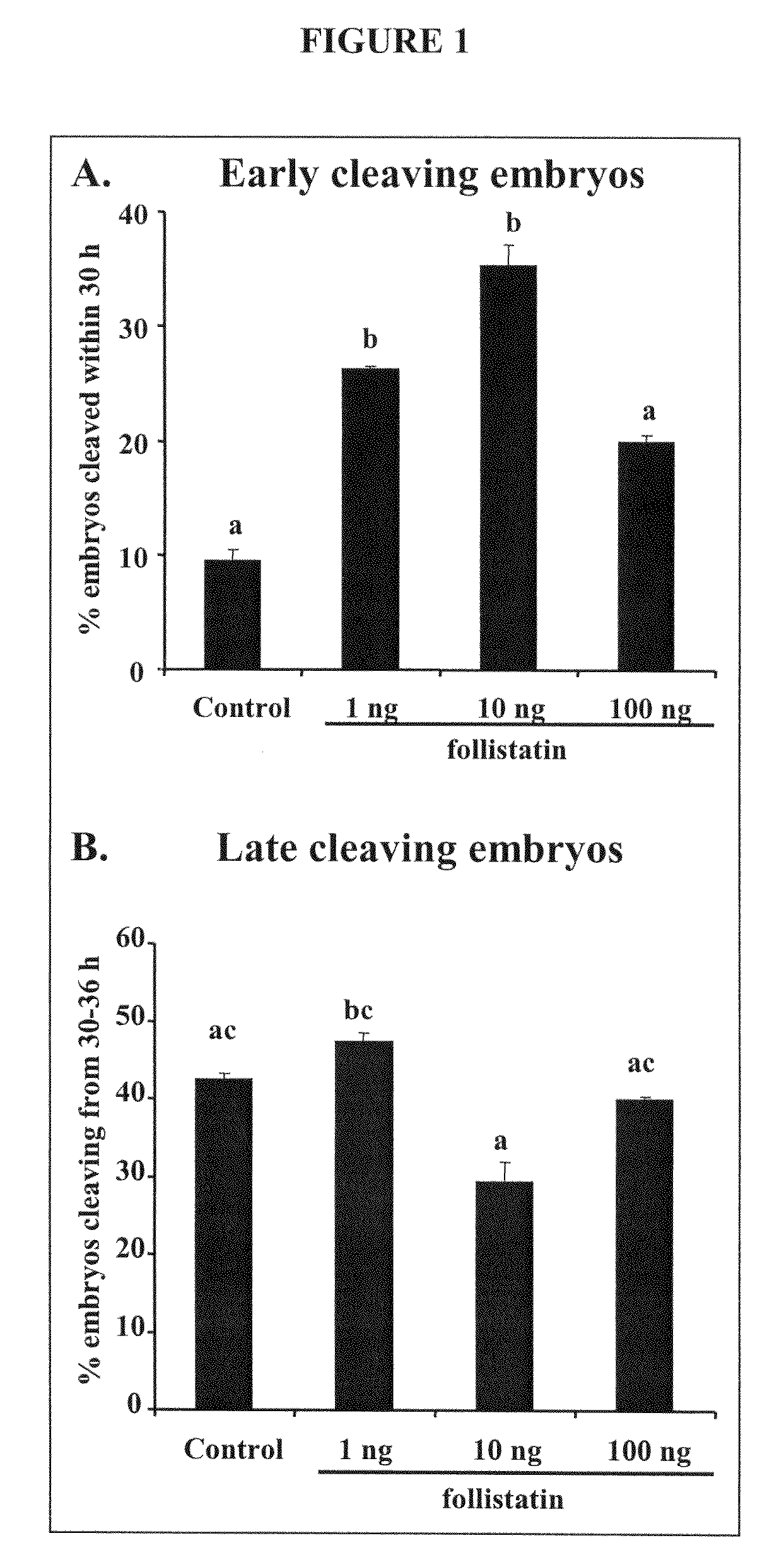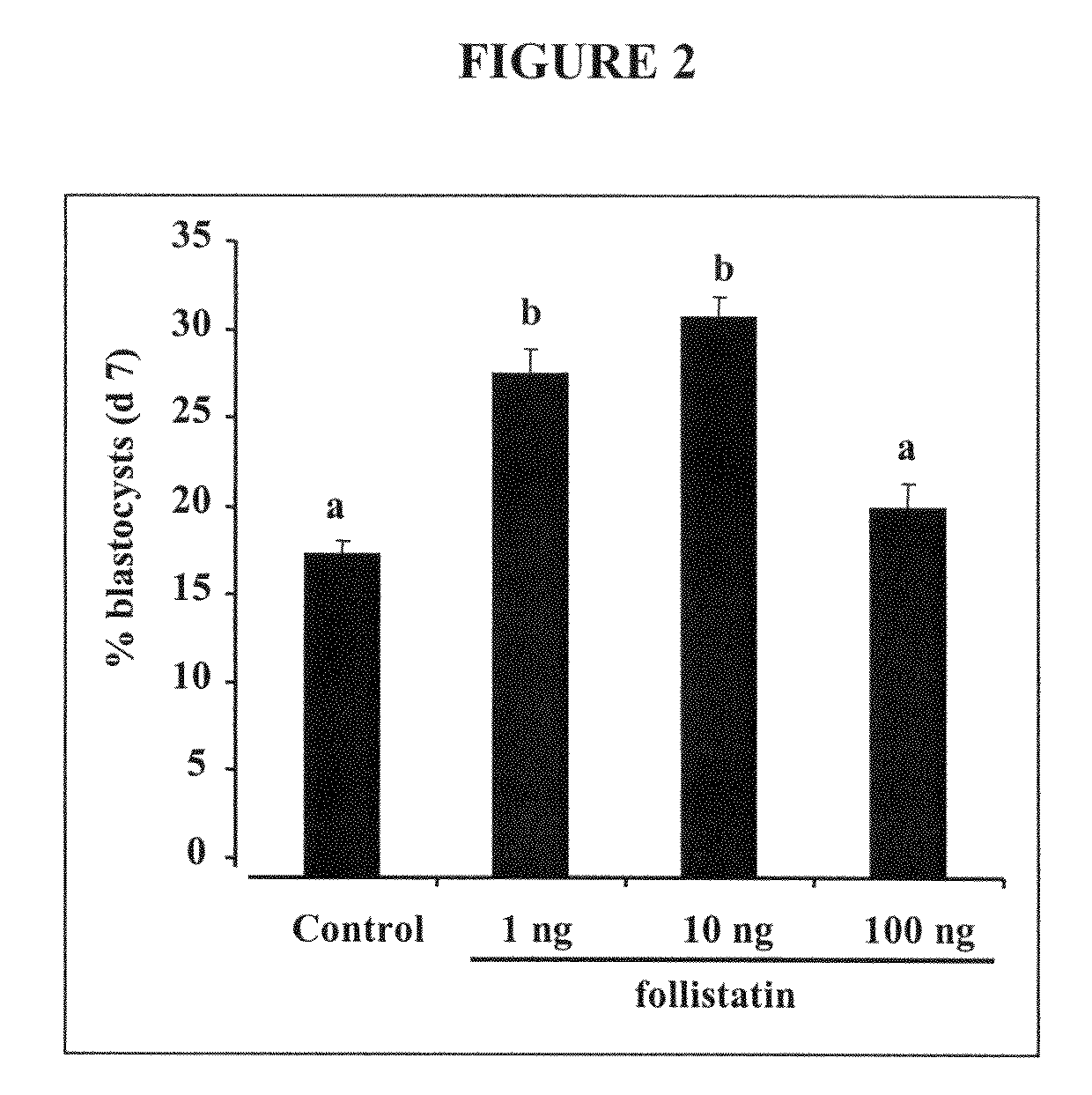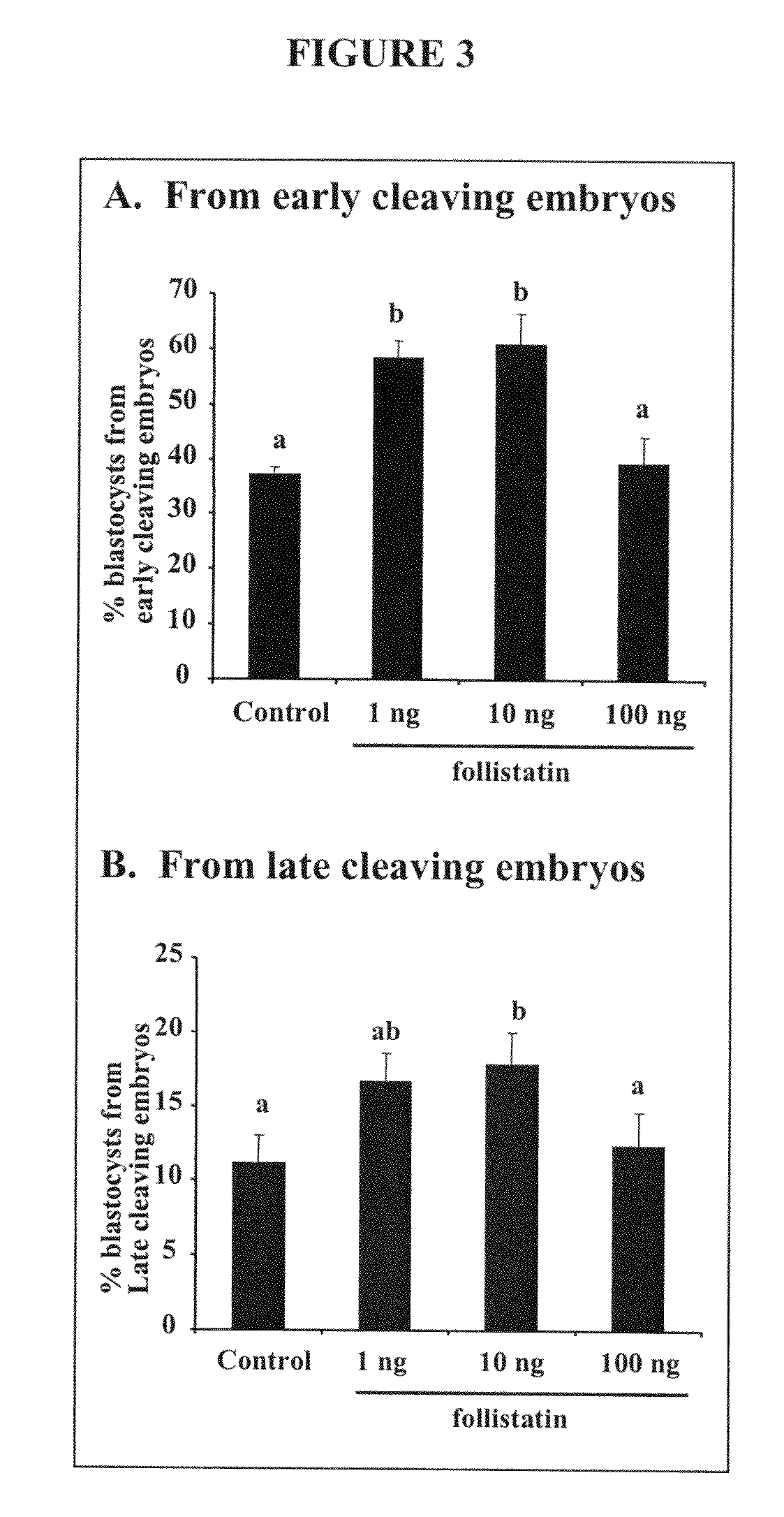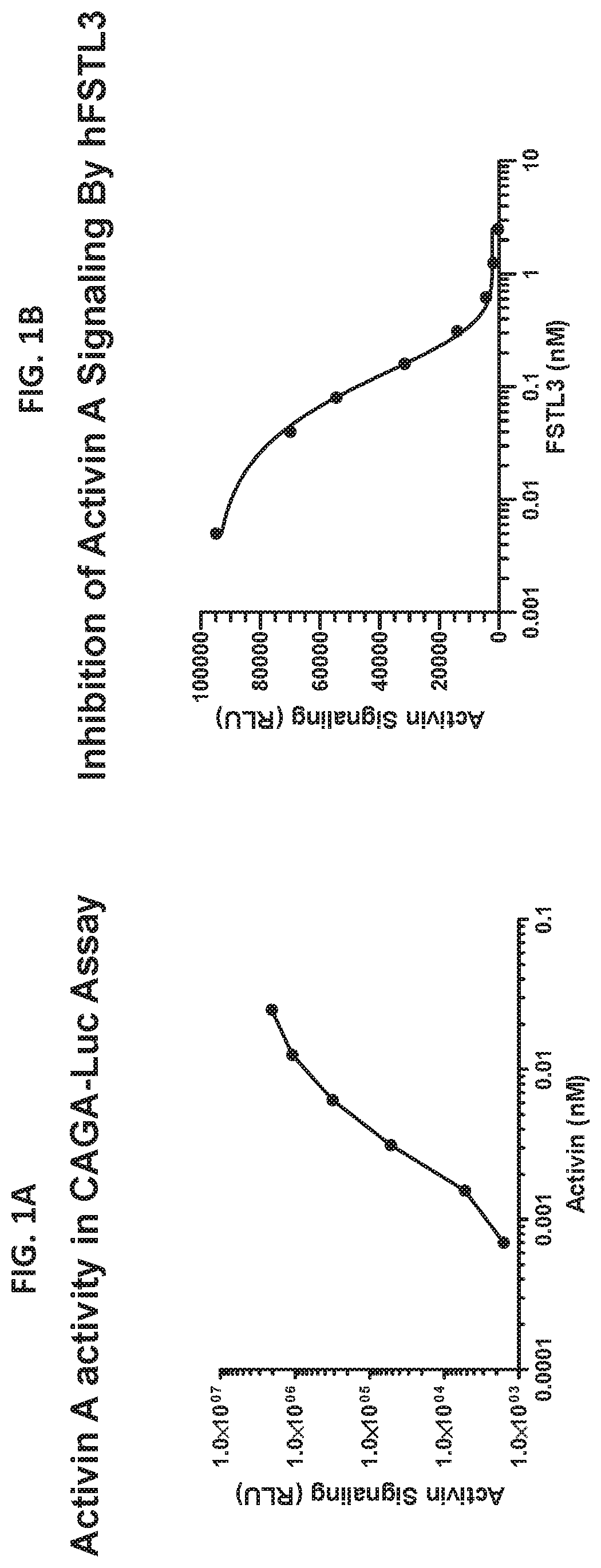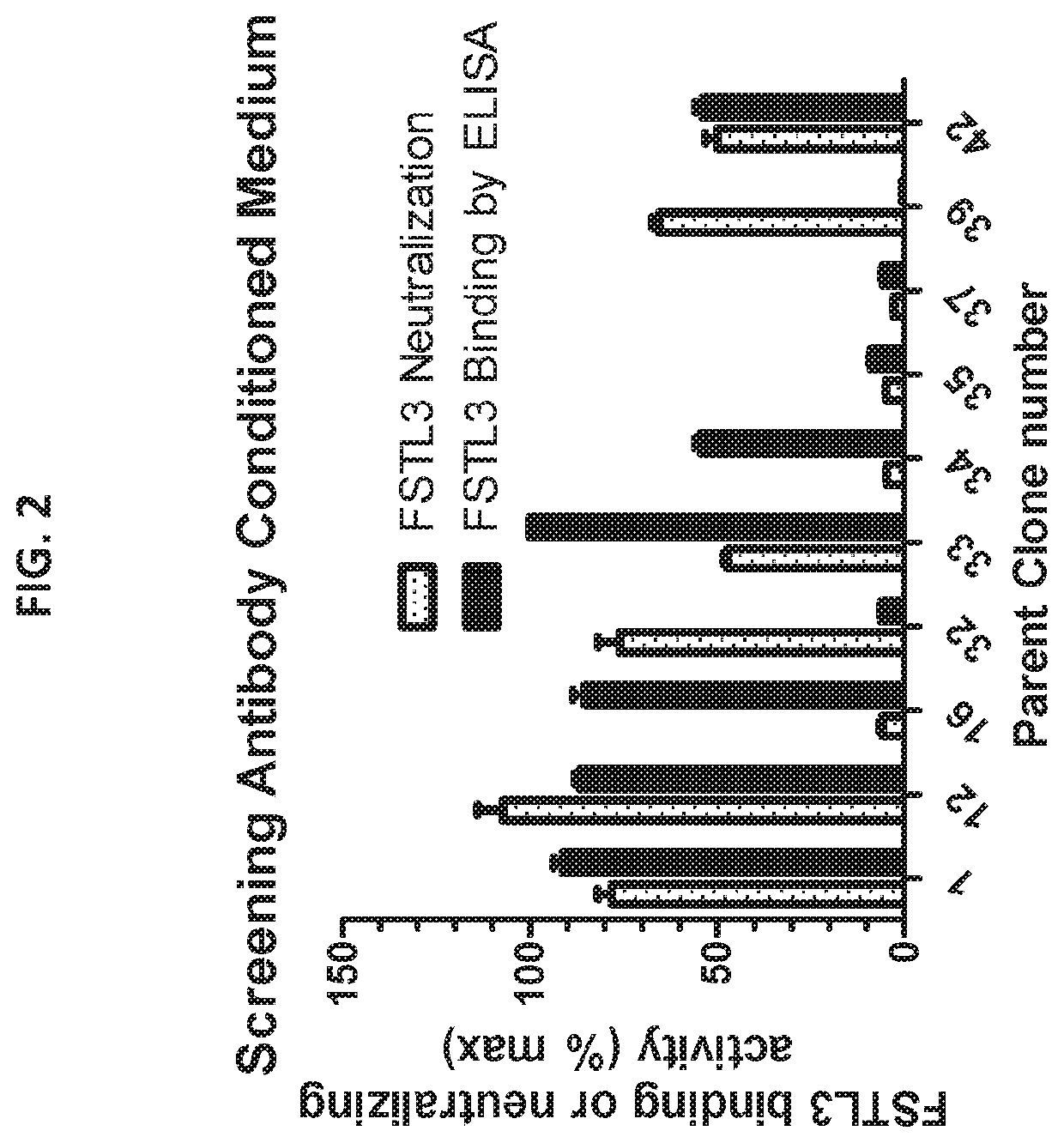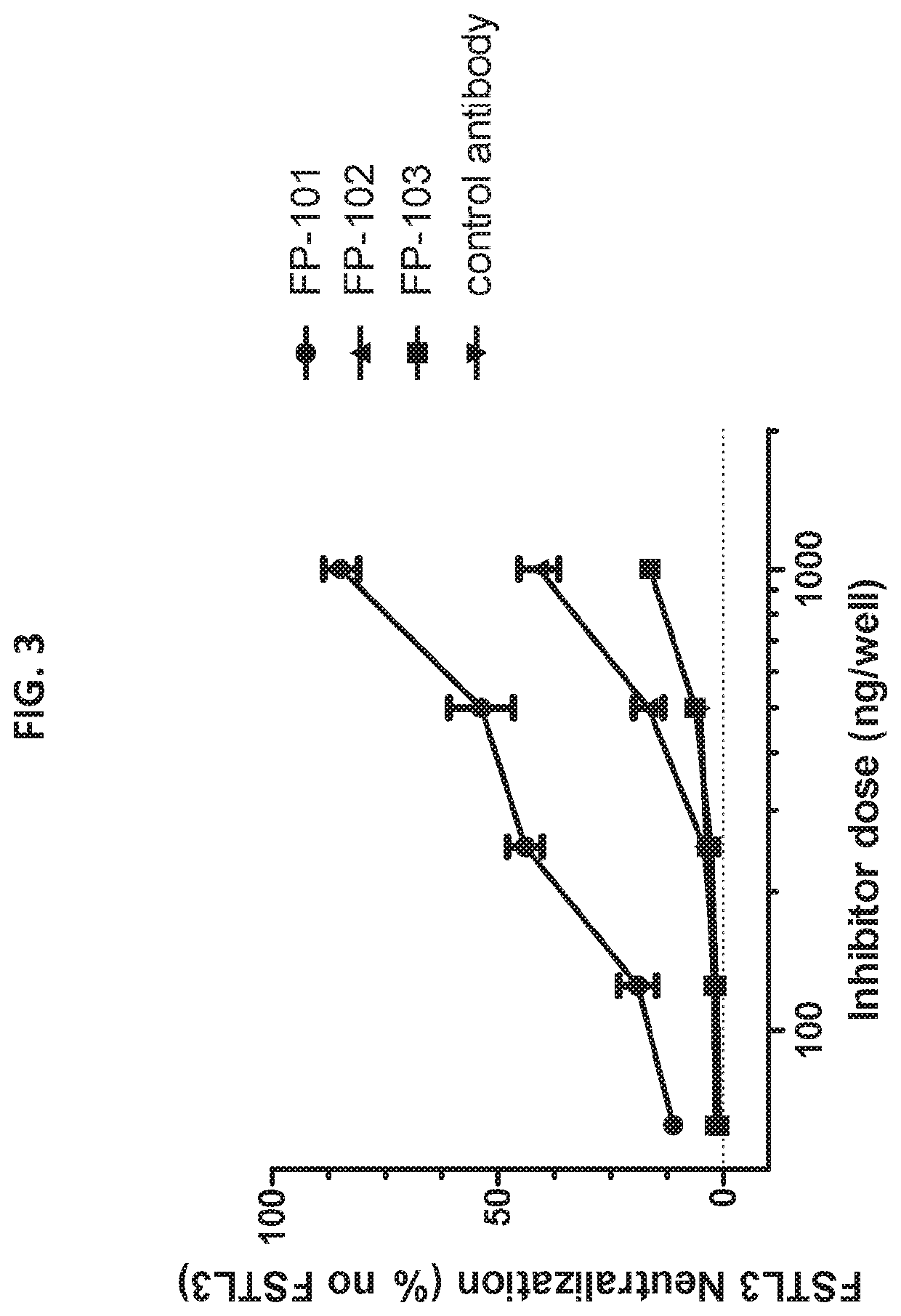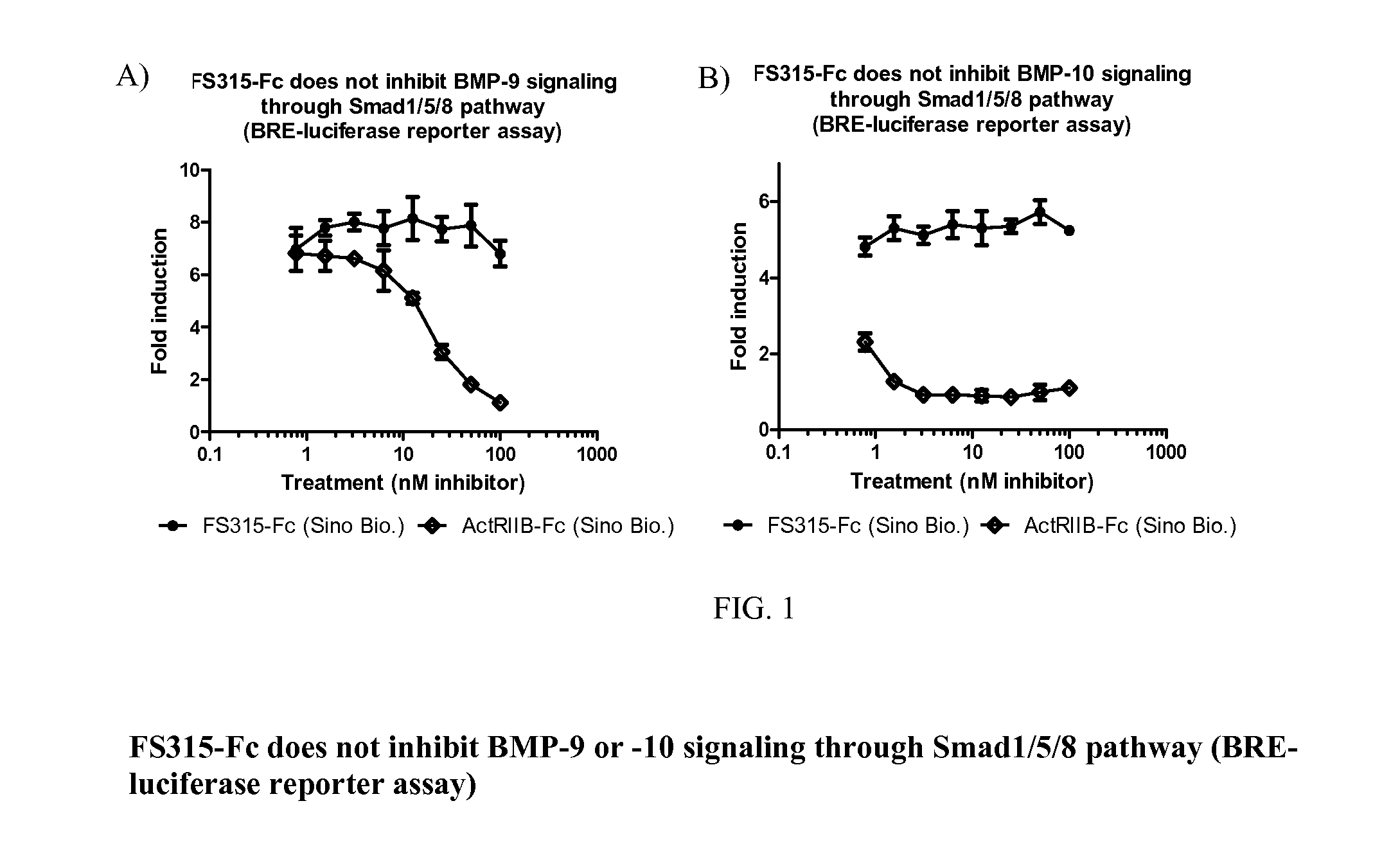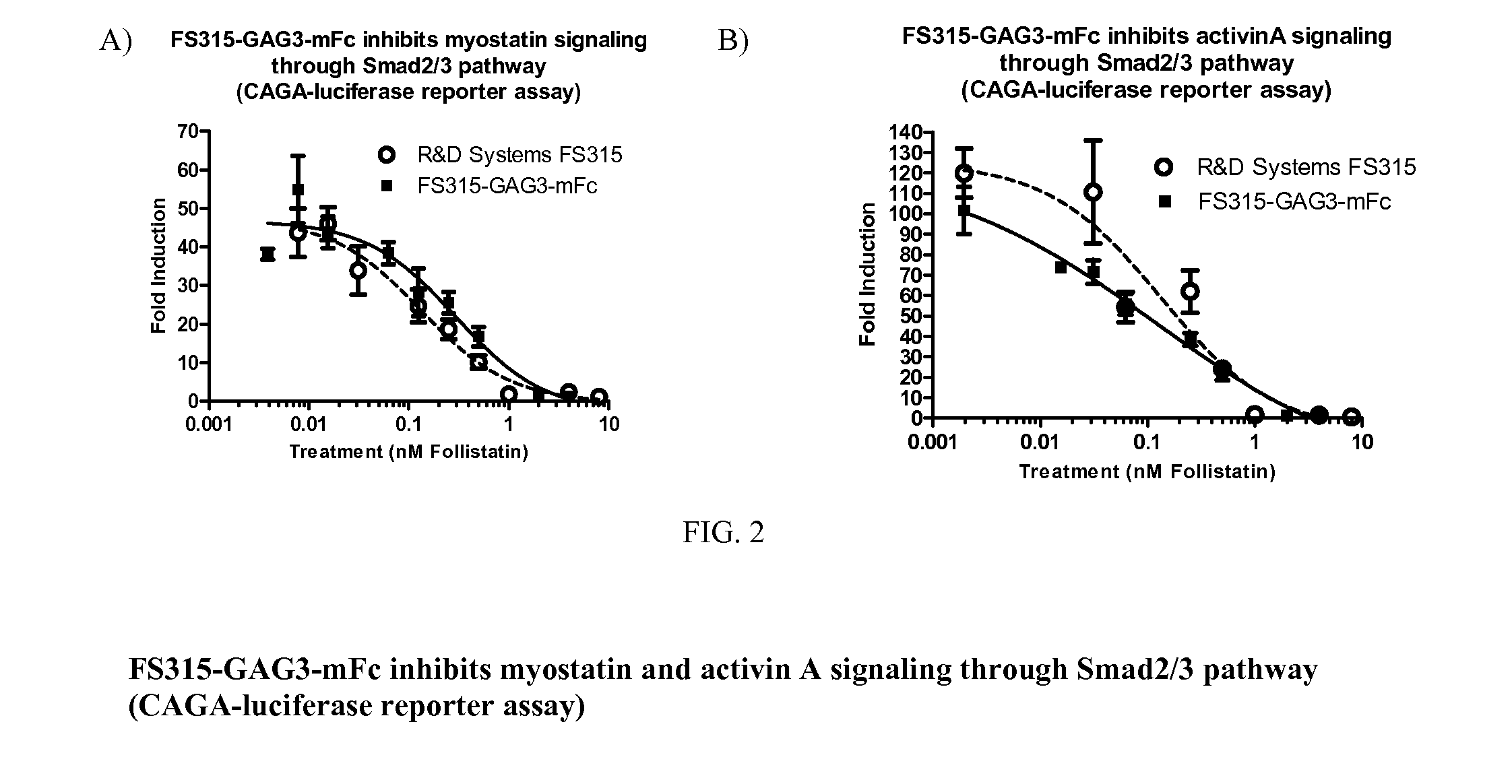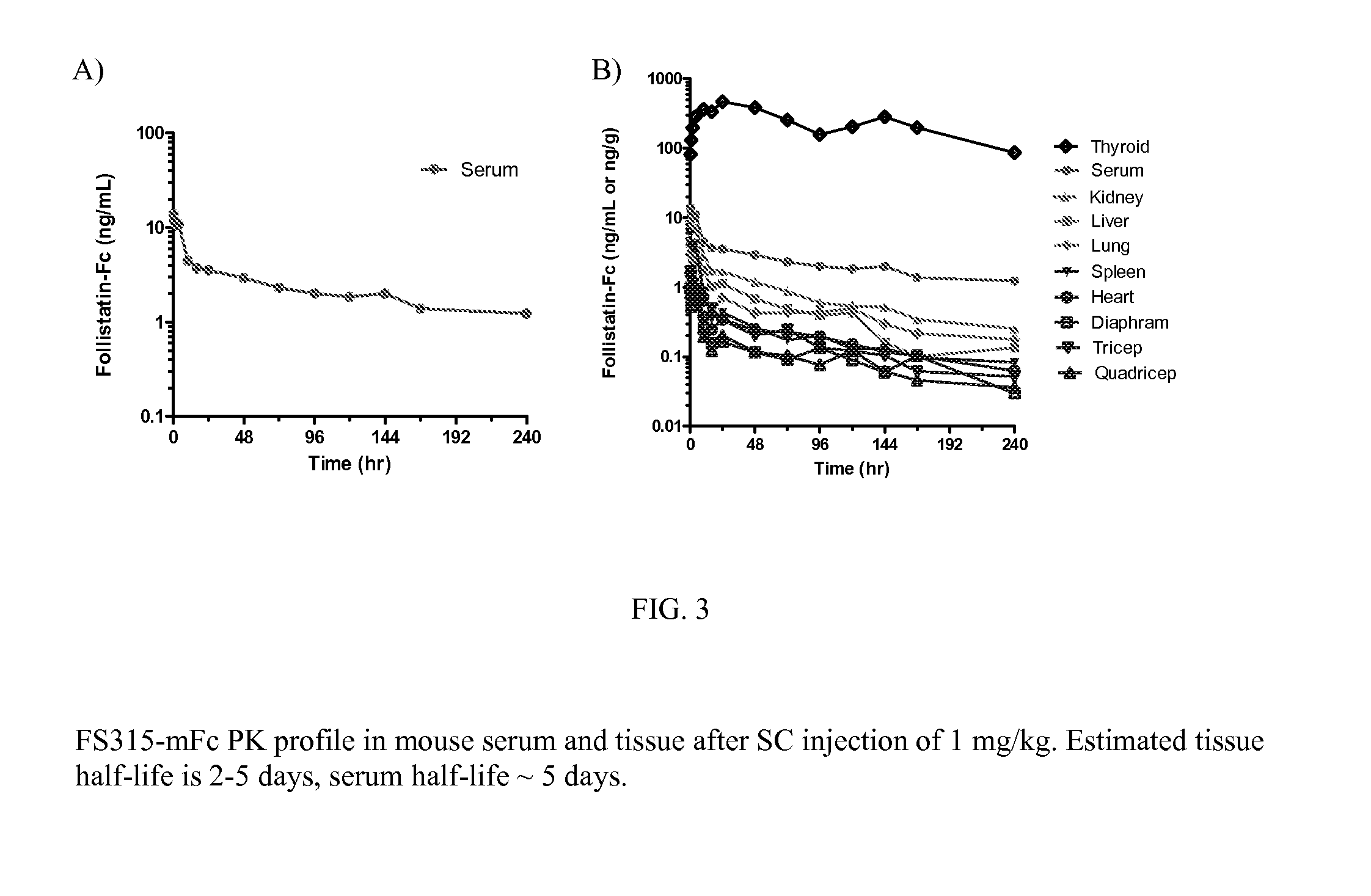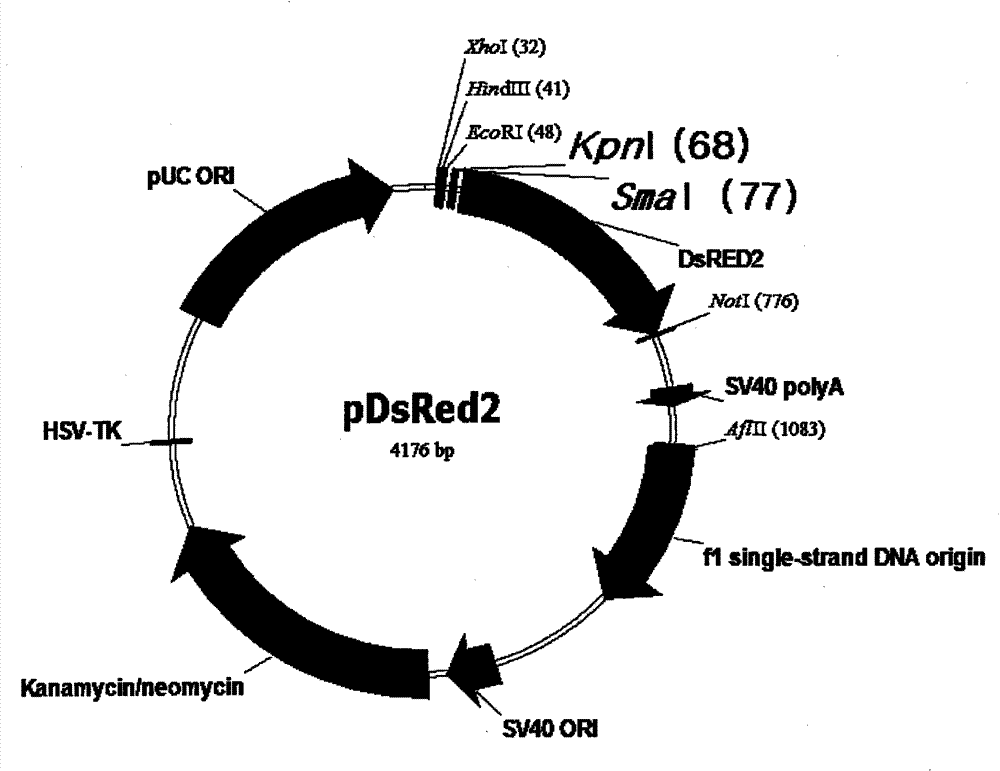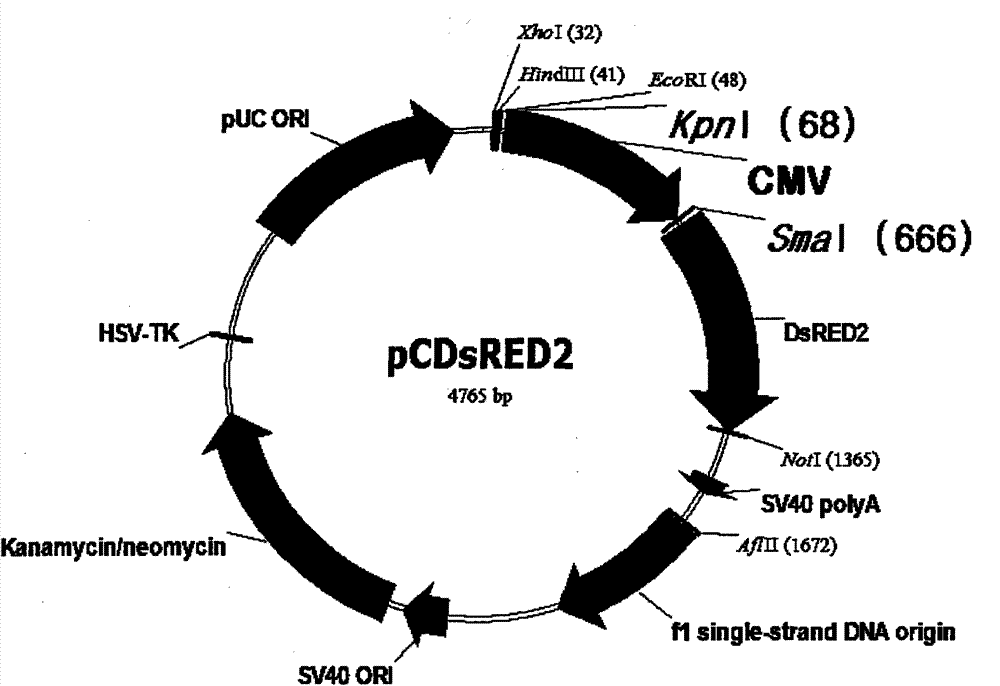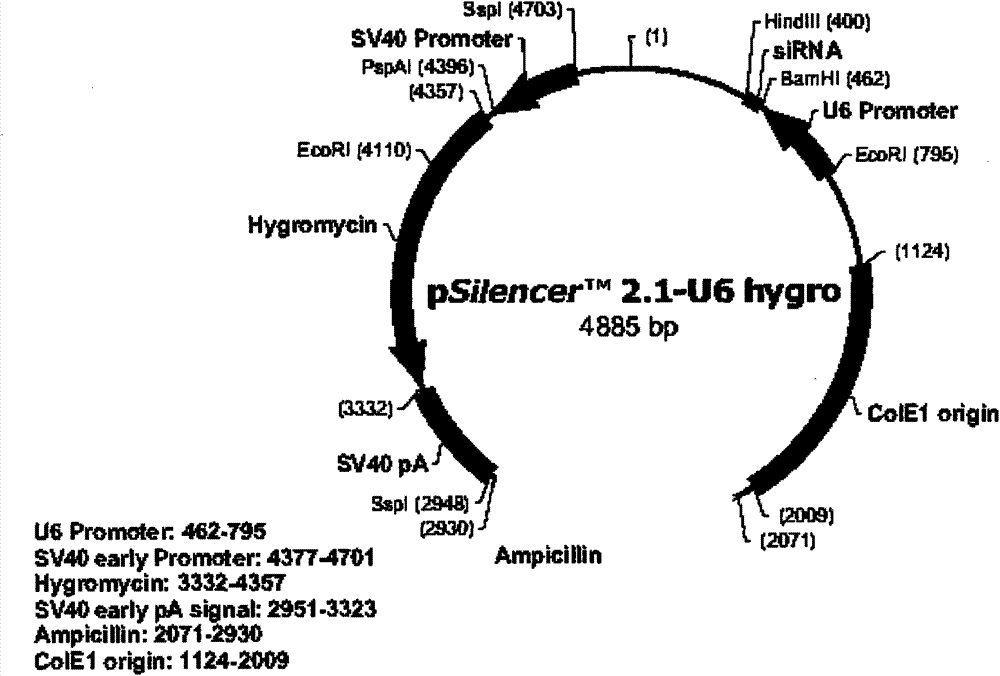Patents
Literature
76 results about "Follistatin" patented technology
Efficacy Topic
Property
Owner
Technical Advancement
Application Domain
Technology Topic
Technology Field Word
Patent Country/Region
Patent Type
Patent Status
Application Year
Inventor
Follistatin also known as activin-binding protein is a protein that in humans is encoded by the FST gene. Follistatin is an autocrine glycoprotein that is expressed in nearly all tissues of higher animals.
GASP1: a follistatin domain containing protein
Owner:WYETH LLC
Avian follistatin product
InactiveUS20070275036A1Prevent muscle wastingAvoid wastingBiocidePeptide/protein ingredientsFowlAnimal science
Described herein are avian follistatin products, and methods for producing such products, in which such products are effective for a variety of conditions, including increasing muscle mass. Avian follistatin products described herein are packaged as dietary supplements or nutritional supplements are useful in muscle regeneration.
Owner:MYOS
Medicament and method for treating renal disease
A medicament for treating a renal disease, comprising a therapeutically effective amount of an activin inhibitor as an active ingredient. Also, a method for treating a renal disease, comprising administering a therapeutically effective amount of an activin inhibitor to a patient suffering from renal disease is disclosed. The activin inhibitor may be follistatin, an anti-activin antibody, an inhibitor to activin receptor or an anti-activin receptor antibody, an inhibitor to signal transduction relating to activin receptor, an activin production inhibitor in kidney, and the like.
Owner:AJINOMOTO CO INC
Method of treating mucus hypersecretion
InactiveUS20140303068A1Reducing airway tissue mucus secretionDownregulating the functional level of activinBiocideOrganic active ingredientsFollistatinMedicine
The present invention relates generally to a method of reducing unwanted airway tissue mucus secretion in a mammal and to agents useful for same. More particularly, the present invention relates to a method of reducing airway tissue mucus hypersecretion in a mammal by downregulating the functional level of activin or upregulating the functional level of follistatin. The method of the present invention is useful, inter alia, in the treatment and / or prophylaxis of conditions characterised by airway tissue mucus dysfunction, such as overproduction of mucus or decreased mucus clearance, and where a reduction in mucus secretion levels would thereby alleviate the condition.
Owner:PARANTA BIOSCI
GASP1: a follistatin domain containing protein
The present invention relates to the use of a protein, GASP1, comprising at least one follistatin domain to modulate the level or activity of growth and differentiation factor-8 (GDF-8). More particularly, the invention relates to the use of GASP1 for treating disorders that are related to modulation of the level or activity of GDF-8. The invention is useful for treating muscular diseases and disorders, particularly those in which an increase in muscle tissue would be therapeutically beneficial. The invention is also useful for treating diseases and disorders related to metabolism, adipose tissue, and bone degeneration.
Owner:WYETH LLC
Diagnostic uses of follistatin-like 1
InactiveUS20090326053A1Improve expression levelBioreactor/fermenter combinationsOrganic active ingredientsProper treatmentFollistatin
The present invention generally relates to methods, systems and computer readable media for the diagnosis and / or prognosis of a cardiac stress and / or skeletal muscle stress in a subject. In particular, in one embodiment, the methods, systems and computer readable media detect a level of Fstl expression, such as Fstl1 polypeptide or mRNA expression in a biological sample obtained from a subject, where a high level relative to a reference Fstl expression level is indicative of a subject having, or is at risk of cardiac stress and / or skeletal muscle stress. In such embodiments, the method futher comprises administering or undertaking an appropriate therapy in a subject identified to have or be at risk of cardiac stress and / or skeletal muscle stress. Another aspect of the present invention relates to the methods, systems and computer readable media detect a level of Fstl expression, such as Fstl1 polypeptide or mRNA expression in a biological sample obtained from a subject where a low level relative to a reference Fstl expression level is indicative of a subject having, or is at risk of diabetes and / or metabolic dysfunction. In such embodiments, the method futher comprises administering or undertaking an appropriate therapy in a subject identified to have or be at risk of diabetes and / or metabolic dysfunction.
Owner:TRUSTEES OF BOSTON UNIV
Bioelectric stimulator
ActiveUS20180064935A1Quality improvementExpansion quantityElectrotherapyMedical devicesDiseaseControl release
Described is a low voltage, pulsed electrical stimulation device for controlling expression of, for example, follistatin, a muscle formation promotion protein, by tissues. Epicardial stimulation is especially useful for heart treatment. Follistatin controlled release is also useful for treating other ailments, such as erectile dysfunction, aortic aneurysm, and failing heart valves.
Owner:LEONHARDT VENTURES LLC
Transdifferentiation of epidermal basal cells into neural progenitor cells, neuronal cells and/or glial cells
Disclosed is a method of transdifferentiating an epidermal basal cell into a cell having one or more morphological, physiological and / or immunological features of a neural progenitor, neuronal, or glial cell by culturing a proliferating epidermal basal cell population derived from the skin of a mammalian subject; exposing the epidermal basal cell(s) to an antagonist of bone morphogenetic protein (BMP), such as fetuin, noggin, chordin, gremlin, or follistatin; and growing the cell(s) in the presence of at least one antisense oligonucleotide comprising a segment of a human MSX1 gene and / or a segment of a human HES1 gene, or homologous non-human counterpart of either of these. Also disclosed is a transdifferentiated cell of epidermal origin and cell cultures derived therefrom. In addition, methods of using the inventive transdifferentiated cell(s) and cell cultures to identify a novel nerve growth factor or to screen a potential chemotherapeutic agent by detecting the presence or absence of an effect, in vitro, on a morphological, physiological and / or molecular biological property of the transdifferentiated cell(s) are described, as is a method of using the transdifferentiated cell(s) and cell cultures to screen a potential chemotherapeutic agent to treat a nervous system disorder of genetic origin. A kit useful for practicing the methods is disclosed
Owner:CEDARS SINAI MEDICAL CENT
Immunomodulation of inflammatory conditions utilizing follistatin-like protein-1 and agents that bind thereto
ActiveUS20070253962A1High expressionDecrease in proinflammatory effectNervous disorderPeptide/protein ingredientsAutoimmune conditionAntibody fragments
Follistatin-like protein (FSTL-1) is a secreted glycoprotein of unknown function, first isolated from mouse osteoblastic cells as a transforming growth factor-β1-inducible gene. The inventors have discovered that FSTL-1 is a proinflammatory mediator. As such, the invention provides for composition and methods of using agents that bind to FSTL-1 to modulate various types of inflammation (e.g., autoimmune diseases). Inhibitors and antagonists of FSTL-1, particularly antibodies or antibody fragments, may be used to treat conditions related to inflammation, such as arthritis. In addition, the inventors have discovered that FSTL-1 has a role in the Th17 pathway. Accordingly, the invention provides for compositions and methods of using agents which bind to FSTL-1 to modulate the generation of Th17 cells. Such agents are useful for delaying development of and treating diseases associated with undesired production of Th17 cells, such as autoimmune diseases. Furthermore, since FSTL-1 is a proinflammatory mediator with a role in cancer, the invention provides for compositions and methods of using a pharmaceutical composition of FSTL-1 to delay development of or treat cancer.
Owner:UNIVERSITY OF PITTSBURGH
Stimulator, pump & composition
Described is a low voltage, pulsed electrical stimulation device for controlling expression of, for example, follistatin, a muscle formation promotion protein, by tissues. Epicardial stimulation is especially useful for heart treatment. Follistatin controlled release is also useful for treating other ailments, such as erectile dysfunction, aortic aneurysm, and failing heart valves.
Owner:LEONHARDT VENTURES LLC
Guided injections for aav gene transfer to muscle
ActiveUS20170246322A1Increased muscle healthImprove muscle functionSugar derivativesPeptide/protein ingredientsDiseaseFollistatin
The disclosure relates to methods for treating subjects with musculoskeletal diseases or with muscle wasting not associated with a musculoskeletal disease by gene transfer with recombinant adeno-associated viruses (rAAV) encoding myostatin inhibitors such as follistatin-344. The rAAV are administered prior to development of diffuse muscle fibrosis in a subject, or the rAAV administration avoids regions of muscle fibrosis in a subject.
Owner:RES INST AT NATIONWIDE CHILDRENS HOSPITAL
Myostatin inhibition for enhancing muscle and/or improving muscle function
ActiveUS8895309B2Muscle strengtheningIncrease the number ofBiocidePowder deliveryMyostatinEccentric hypertrophy
The present invention relates to methods for inhibiting myostatin, a regulator of muscle mass, for muscle enhancement (including inducing hypertrophy and / or hyperplasia) as well as improving muscle function (including decreasing atrophy and / or increasing endurance, force and / or strength). Some of the methods involve delivering genes to cells using viral vectors such as a recombinant Adeno-associated virus (rAAV), lentivirus or equine-associated virus, or using other delivery techniques known in the art in order to inhibit myostatin. Examples of genes to be delivered are genes encoding proteins such as Follistatin, Follistatin-related gene-1 (FLRG-1), growth differentiation factor associated protein-1 (GASP-1) and myostatin precursor propeptide. In other methods of the invention, expression of proteins such as activin IIb and myostatin is inhibited by oligonucleotide techniques to effect muscle enhancement. All the methods have applications in the treatment of musculoskeletal and neurodegenerative disorders among others, as well as enhancing muscle in livestock.
Owner:NATIONWIDE CHILDRENS HOSPITAL
Follistatin domain containing proteins
The present invention relates to the use of proteins comprising at least one follistatin domain to modulate the level or activity of growth and differentiation factor-8 (GDF-8). More particularly, the invention relates to the use of proteins comprising at least one follistatin domain, excluding follistatin itself, for treating disorders that are related to modulation of the level or activity of GDF-8. The invention is useful for treating muscular diseases and disorders, particularly those in which an increase in muscle tissue would be therapeutically beneficial. The invention is also useful for treating diseases and disorders related to metabolism, adipose tissue, and bone degeneration.
Owner:WYETH LLC
Metabolic and cardioprotection by the myokine follistatin-like 1 polypeptide
ActiveUS20100227817A1Protects myocardiumAvoid damagePeptide/protein ingredientsMetabolism disorderFollistatinDisease
Described herein are methods and compositions related to the discovery that the Follistatin-like 1 protein (Fstl-1) has metabolic and cardioprotective effects in vivo. Fstl-1 and portions and derivatives or variants thereof can be used to treat or prevent metabolic diseases or disorders and to treat or prevent cardiac damage caused by interrupted cardiac muscle blood supply.
Owner:TRUSTEES OF BOSTON UNIV
Follistatin-related fusion proteins and uses thereof
ActiveUS20160311874A1High affinity bindingHigh inhibitionPeptide/protein ingredientsAntibody mimetics/scaffoldsDiseaseFollistatin
In certain aspects, the present disclosure provides compositions and methods for inhibiting activity of TGFβ superfamily ligands, particularly ligands such as GDF8, GDF11, activin A, activin B, activin C and activin E, in vertebrates, including rodents and primates, and particularly in humans. In some embodiments, the compositions of the disclosure may be used to treat or prevent diseases or disorders that are associated with abnormal activity of a follistatin-related polypeptide and / or a follistatin ligand.
Owner:ACCELERON PHARMA INC
Monoclonal antibody of follistatin-like protein l and application thereof
InactiveCN104232590AAlleviate or improve fibrotic lung diseaseRelieve or improve symptomsImmunoglobulins against animals/humansMicroorganism based processesFollistatinMonoclonal antibody
The invention relates to a function of follistatin-like protein l (FSTL1) for promoting the process of pulmonary fibrosis disease in vivo, and use of an anti-FSTL1 antibody in treatment, alleviation or improvement of the pulmonary fibrosis disease or symptom.
Owner:NANKAI UNIV
Fstl-1 as a biomaker of inflammation
The invention provides methods and kits for diagnosing severity of particular types of inflammatory diseases, such as rheumatic diseases, by assessing protein levels of follistatin-like protein 1 (FSTL-1). The level of FSTL-1 protein present in the serum or synovial fluid of individuals suspected of having certain inflammatory disease (e.g, rheumatoid arthritis) is positively correlated with the severity of the disease.
Owner:UNIVERSITY OF PITTSBURGH
Follistatin-like protein-1 as a biomarker for inflammatory disorders
ActiveUS8741584B2Disease diagnosisBiological testingMacrophage activation syndromeGeneralized seizure
The present invention relates to methods and compositions for diagnosis of inflammatory disorders, and in non-limiting embodiments, of inflammatory disorders associated with elevated interleukin-1β (“IL-1β”), based on increased levels of follistatin-like protein 1 (“FSTL-1”). In particular non-limiting embodiments, the invention further provides for methods of identifying subjects with systemic onset juvenile idiopathic arthritis (“SOJIA”) who are at increased risk for developing macrophage activation syndrome (“MAS”) comprising detecting, in said subjects, hyper-increased levels of FSTL-1. In additional non-limiting embodiments, the invention provides for methods of identifying subjects with Kawasaki disease who are at increased risk of developing aortic aneurysms comprising detecting, in said subjects, hyper-increased levels of FSTL-1.
Owner:UNIVERSITY OF PITTSBURGH
Stimulator, pump and composition
Described is a low voltage, pulsed electrical stimulation device for controlling expression of, for example, follistatin, a muscle formation promotion protein, by tissues. Epicardial stimulation is especially useful for heart treatment. Follistatin controlled release is also useful for treating other ailments, such as erectile dysfunction, aortic aneurysm, and failing heart valves.
Owner:LEONHARDT VENTURES LLC
Methods and compositions for diagnosis and prognosis of renal injury and renal failure
InactiveUS20130316370A1Eliminate needEasy to adaptDisease diagnosisBiological testingWhite blood cellPancreatic hormone
The present invention relates to methods and compositions for monitoring, diagnosis, prognosis, and determination of treatment regimens in subjects suffering from or suspected of having a renal injury. In particular, the invention relates to using assays that detect one or more biomarkers selected from the group consisting of Beta-nerve growth factor, Interleukin-17A, Follitropin subunit beta, Collagenase 3, Follistatin, Vitamin D Binding Protein, Islet amyloid polypeptide, Insulin C-peptide, Complement Factor H, Gastric inhibitory polypeptide, Glucagon-like peptide 1, Glucagon, Involucrin, Type II cytoskeletal Keratin-1 / Keratin-10, Type II cytoskeletal Keratin-6A / 6B / 6C, Osteocalcin, Lipopolysaccharide, Pancreatic prohormone, Peptide YY, Agouti-related protein, Ciliary neurotrophic factor, Appetite-regulating hormone, Transthyretin, Insulin receptor substrate 1, and NF-kappa-B inhibitor alpha as diagnostic and prognostic biomarker assays in renal injuries.
Owner:ASTUTE MEDICAL
Immunomodulation of inflammatory conditions utilizing Follistatin-like protein-1 and agents that bind thereto
ActiveUS7972599B2Reduce inductionNervous disorderPeptide/protein ingredientsDiseaseAntibody fragments
Follistatin-like protein (FSTL-1) is a secreted glycoprotein of unknown function, first isolated from mouse osteoblastic cells as a transforming growth factor-β1-inducible gene. The inventors have discovered that FSTL-1 is a proinflammatory mediator. As such, the invention provides for composition and methods of using agents that bind to FSTL-1 to modulate various types of inflammation (e.g., autoimmune diseases). Inhibitors and antagonists of FSTL-1, particularly antibodies or antibody fragments, may be used to treat conditions related to inflammation, such as arthritis. In addition, the inventors have discovered that FSTL-1 has a role in the Th17 pathway. Accordingly, the invention provides for compositions and methods of using agents which bind to FSTL-1 to modulate the generation of Th17 cells. Such agents are useful for delaying development of and treating diseases associated with undesired production of Th17 cells, such as autoimmune diseases. Furthermore, since FSTL-1 is a proinflammatory mediator with a role in cancer, the invention provides for compositions and methods of using a pharmaceutical composition of FSTL-1 to delay development of or treat cancer.
Owner:UNIVERSITY OF PITTSBURGH
Method for promoting sheep in-vitro embryo development by using follistatin
The invention belongs to the technical field of bioengineering, and relates to a method for promoting sheep in-vitro embryo development by using follistatin, which comprises the following steps: (1) acquiring a slaughtered sheep ovary; (2) extracting follicles for later use; (3) culturing selected oocytes in a CO2 incubator, and adding into in-vitro fertilization solution drops; (4) adding the in-vitro fertilization drops, and carrying out co-incubation with the oocytes; (5) taking out the early embryo, transferring into a 10 mu g / L follistatin in-vitro culture solution, washing 3-4 times, and culturing for 24-26 hours; and (6) taking out the embryo, washing with the in-vitro culture solution, calculating the merogenesis rate, and calculating the blastula rate after culturing for 144-168 hours. By using the follistatin to treat the early embryo subjected to sheep oocyte in-vitro fertilization, the method can obviously enhance the in-vitro embryo development blastula rate.
Owner:新疆畜牧科学院生物技术研究所
Methods of increasing muscle mass using follistatin-like related gene (FLRG)
Owner:THE JOHN HOPKINS UNIV SCHOOL OF MEDICINE
Bioelectric stimulator
ActiveUS10960206B2Quality improvementExpansion quantityMedical devicesPressure infusionEngineeringBiology
Described is a low voltage, pulsed electrical stimulation device for controlling expression of, for example, follistatin, a muscle formation promotion protein, by tissues. Epicardial stimulation is especially useful for heart treatment. Follistatin controlled release is also useful for treating other ailments, such as erectile dysfunction, aortic aneurysm, and failing heart valves.
Owner:LEONHARDT VENTURES LLC
Methods and Compositions To Enhance Efficiency Of Nuclear Transfer/Cloning
InactiveUS20090075380A1Increase successImprove survival rateCell culture active agentsEmbryonic cellsFollistatinAssisted fertilization
The present invention provides compositions and methods for increasing the success of assisted reproductive technology (ART). Specifically, the inventions described herein increase the survival rate of manipulated embryos for increasing post implantation numbers of viable offspring. In particular, the present invention provides for compositions and methods for allowing further embryonic development and increasing rates of embryonic maturation, such as increasing cleavage rate, TE numbers, and blastocyte formation of in vitro fertilized and nuclear transfer embryos in media comprising follistatin, thereby providing for increased survival of fertilized and manipulated embryos leading to increased numbers of live offspring from in vitro fertilized and implanted nuclear transfer embryos. Further provided are diagnostic kits for determining transplantation potential.
Owner:MICHIGAN STATE UNIV OFFICE OF INTPROP +1
Anti-FSTL3 Antibodies And Uses Thereof
ActiveUS20200190171A1Minimal cross-reactivityReduce harmful effectsMetabolism disorderAntibody ingredientsAntiendomysial antibodiesFollistatin
The present invention provides antibodies and antigen binding fragments thereof that bind to human Follistatin-Like-3 (FSTL3) protein, compositions comprising such antibodies, and methods of making and using such antibodies.
Owner:BROWN ELISSA
Methods for treating Parkinson's disease
InactiveUS20050192225A1Prevents and delays deathHigh activityHormone peptidesNervous disorderFollistatinParkinson's disease
Methods for treating Parkinson's disease include administration of agents that increase or regulate blood or tissue levels, production, function, or activity of inhibins or follistatin, or that decrease or regulate blood or tissue levels, production, function, or activity of activins.
Owner:VOYAGER PHARMA CORP
Follistatin in treating duchenne muscular dystrophy
InactiveUS20160083440A1Effective muscle growthReduced muscle fibrosisNervous disorderAntibody mimetics/scaffoldsFollistatinMedicine
The present invention provides, among other things, methods and compositions for treating muscular dystrophy, in particular, Duchenne muscular dystrophy (DMD). In some embodiments, a method according to the present invention includes administering to an individual who is suffering from or susceptible to DMD an effective amount of a recombinant follistatin protein such that at least one symptom or feature of DMD is reduced in intensity, severity, or frequency, or has delayed onset.
Owner:TAKEDA PHARMA CO LTD
Bicistronic co-expression gene transfer bodyand preparation method
InactiveCN104195153AEnhanced knockdownVector-based foreign material introductionMyostatinFollistatin
The invention discloses a bicistronic co-expression gene transfer body and a preparation method. The gene sequence of the gene transfer body is SEQ ID NO: 17. The gene transfer body comprises bovine matrix attachment regions (MARs), an RNA polymerase promoter III (U6), short hairpin RNA (shRAN) targeting the third exon of bovine myostatin (MSTN), a CMV promoter, a bovine follistatin (FSTN) and an SV40polyA signal region from the five prime end to the three prime end in order. The gene transfer body provided by the invention doesn't contain a vector backbone sequence and is a clean and safe gene transfer; and the gene transfer body combines the MAR with a knock-down vector for the first time and can effectively enhance the knock-down effect of the vector. Besides, the gene transfer body achieves the purpose of conducting knock-down and over-expression simultaneously by independently starting double promoters, and provides new ideas and paths for improving the characteristics (such as economic characteristics) of double-gene / multi-gene control.
Owner:INNER MONGOLIA UNIVERSITY
Method for purifying recombinant human follistatin protein
InactiveCN106496321AHigh yieldSimple production processPeptide preparation methodsAnimals/human peptidesInclusion bodiesPurification methods
The invention relates to an efficient method for purifying a new genetic engineering medicine, namely recombinant human follistatin protein. The method for purifying the recombinant human follistatin protein comprises the following steps: (1) performing ultrasonic pyrolysis on thallus, washing an inclusion body, and performing hydrotropy with 6M guanidine hydrochloride; (2) performing nickel column affinity chromatography by using a 6His label; and (3) performing DEAE Sepharose FF anion exchange chromatography, thereby obtaining the high-purity recombinant human follistatin protein. According to the method, the purified protein yield is high and the protein purity is high, and the method has the characteristics of simple steps, economy and practicability and convenience in large-scale production and purification.
Owner:德清知诺同丰生物科技有限公司
Features
- R&D
- Intellectual Property
- Life Sciences
- Materials
- Tech Scout
Why Patsnap Eureka
- Unparalleled Data Quality
- Higher Quality Content
- 60% Fewer Hallucinations
Social media
Patsnap Eureka Blog
Learn More Browse by: Latest US Patents, China's latest patents, Technical Efficacy Thesaurus, Application Domain, Technology Topic, Popular Technical Reports.
© 2025 PatSnap. All rights reserved.Legal|Privacy policy|Modern Slavery Act Transparency Statement|Sitemap|About US| Contact US: help@patsnap.com
